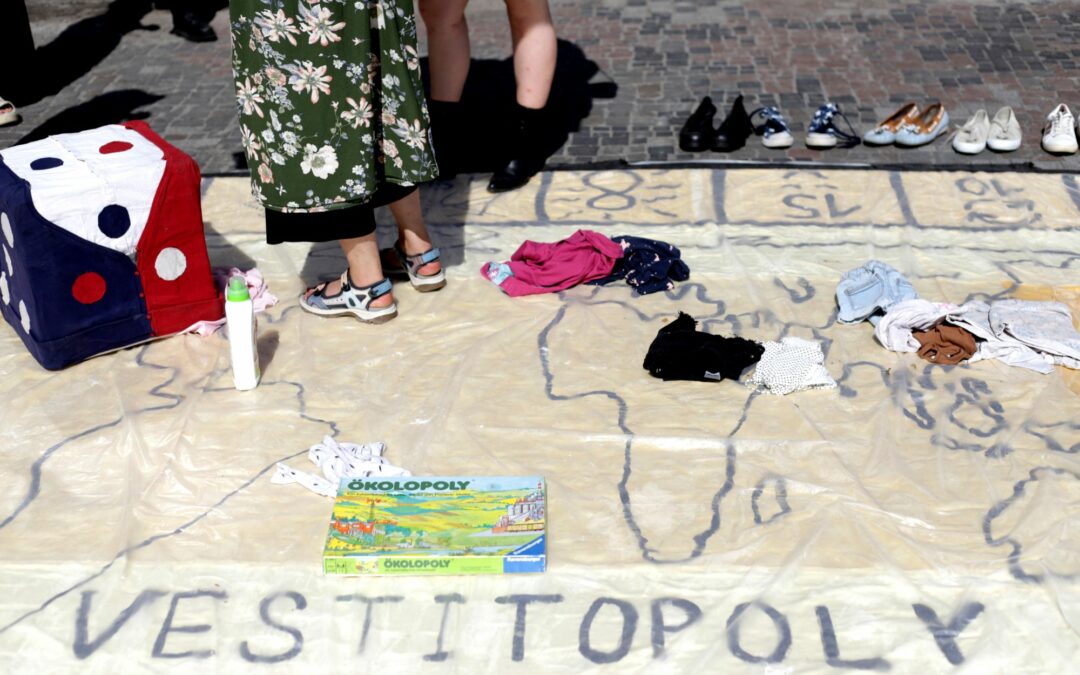
VESTITOPLOY
VESTITOPLOY
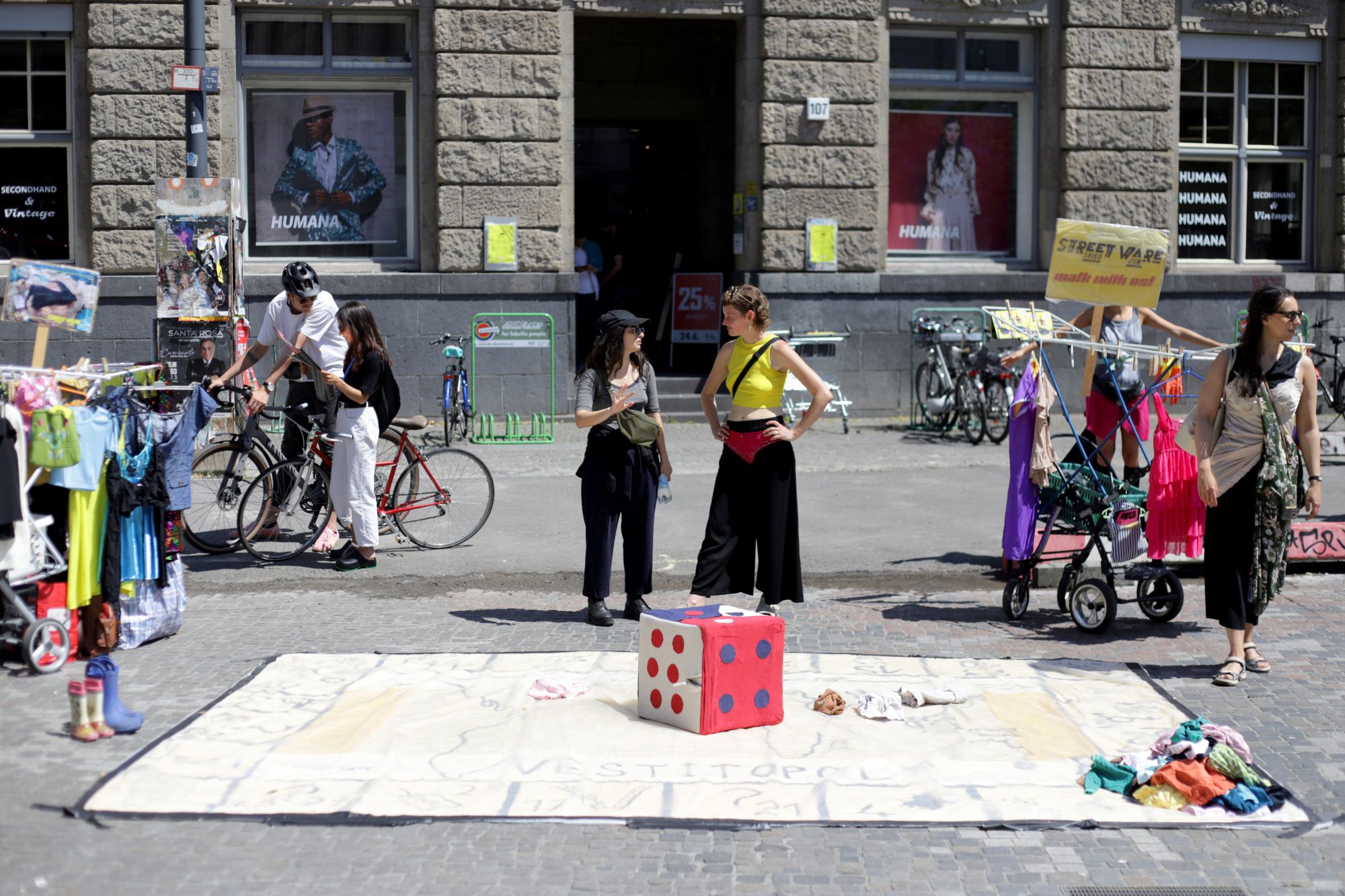
VESTITOPOLY @ 48 Stunden Neukölln, Saturday, 24th June 2023
In front of a branch of a well-known second hand store chain. The planet is burning under the midday sun. The pouring rain from the evening before has disappeared, the air is hot and the streets are filling up. On Alfred-Scholz-Platz, the VESTITOPOLY playing field is already spread out, the rolling clotheshorses ready in their starting blocks and the oversized dice made from used clothing is attracting the first players.
Es berichtet die kritsche Modeforscherin Aïcha Abbadi
Es kommen: Nachbar*innen jeden Alters, Tourist*innen, Feiernde und Aktivist*innen, Juror*innen und Freund*innen auf Abifahrt: alle bereiten sie sich erwartungsvoll vor auf ihre erste Runde. Im bunten Gewusel erhaschen wir Blicke auf bunte selbst gehäkelte Tops und selbstgemachten Schmuck, Crop Tops und Cargohosen, Seidenröcke und Stickereien – auch ein Turban ist dabei. Inspiriert von der Hitze wird eine Spielerin zum spontanen Kleidertausch verleitet: ein luftiges STREETWARE-Kleid für das eigene Outfit, für die nächste Person am Spielfeldrand gelassen. Mit Sonnenschirmen in der Hand wir die Umrundung der Fragen- und Aufgaben-Felder zum lässigen sommerlichen Flanieren auf dem Neuköllner Boulevard.
Meanwhile, the first STREETSHOPPING tour is already back and has collected: fittingly, a t-shirt from “ON TOUR” with a label reading “made in Europe”, various sportswear items “Made in Syria”, a delicate floral prayer dress, a collection of shoes and much more. Freshly laundered, the latest collection is won by a new round of players. During VESTITOPOLY, they learn from one another, clothing stories, swap store tips and styling ideas. For each other, they put togehter: an opera outfit with a work apron, an elegant shell for the first ever drag show with crystal-embroidered red underwear and an offwhite long jacket, a birthday look with a sequined floor-length dress and rubber boots.
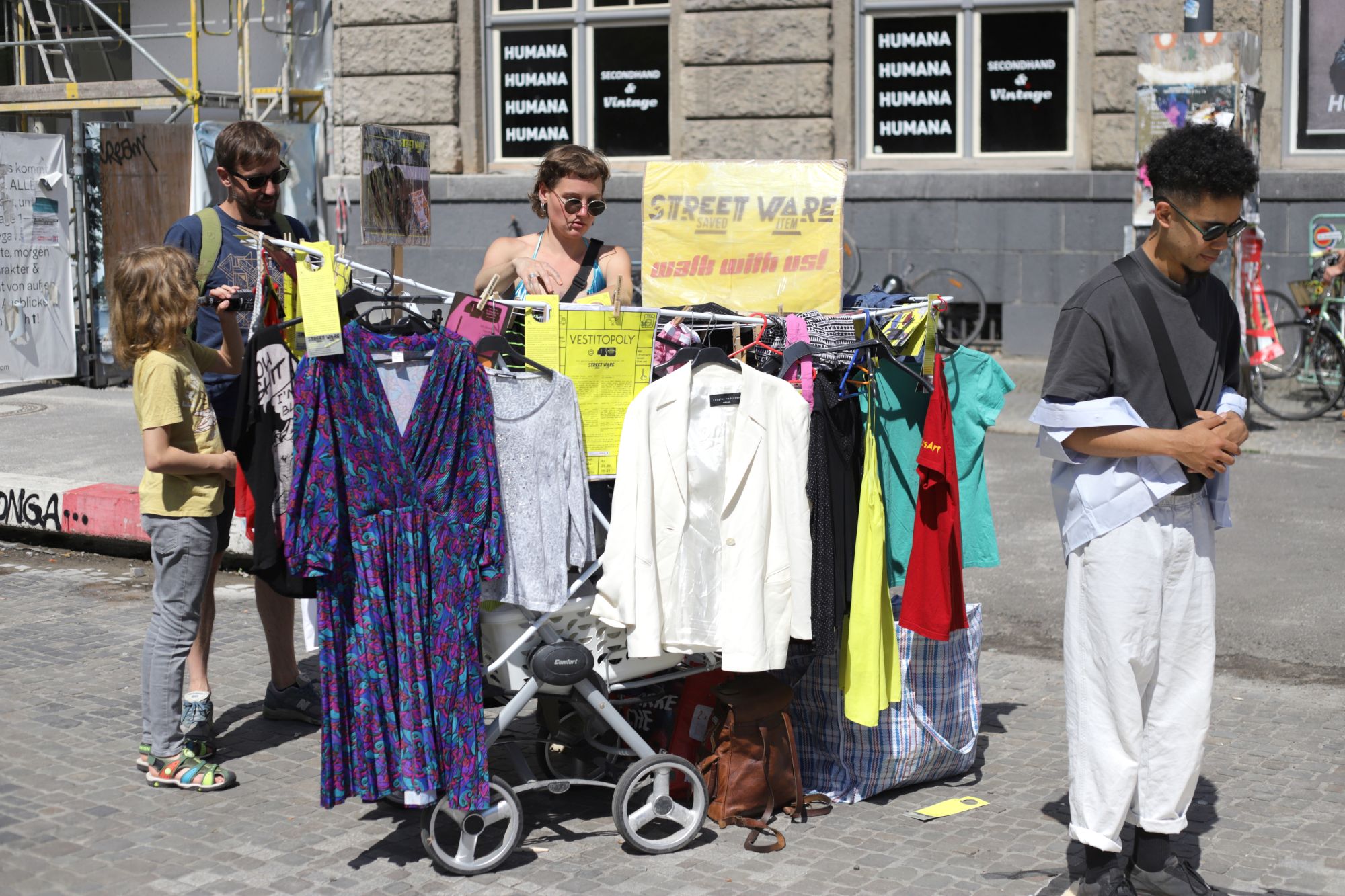
Few steps further: a group adorned in satin slip dresses with lace trims, draped over sweatpants and trekking sandals is conspiring about the latest repair workshops. Nostalgic memories come up about the dressy streets of Kinshasa, wishing a simultaneous transmission to the public squares of Neukölln. But look over there! The wishes have been heard and already the crowd is dressing up and everybody strikes a pose. Too soon, the playing round is over, but the players are not yet ready to move on. Skipped fields are caught up to test out every challenge.
all photographs © Paolo Gallo
In the meantime, the garments are accumulating on the world map in the centre of the playing field, sorted by production country. As expected, they pile up highest in Asia, but Europe is filling up as well. The USA and Ethiopia are represented, too. They do not stay there long, however, as they have already caught the eye of new players, who roll the dice until the last minute. Faster than expected, the sidewalks are rolled up. Disappointed faces and longing looks – the DB-Shirt is already gone, the BVG one too – but the game will go on tomorrow! Who knows what new wares the streets will bring?
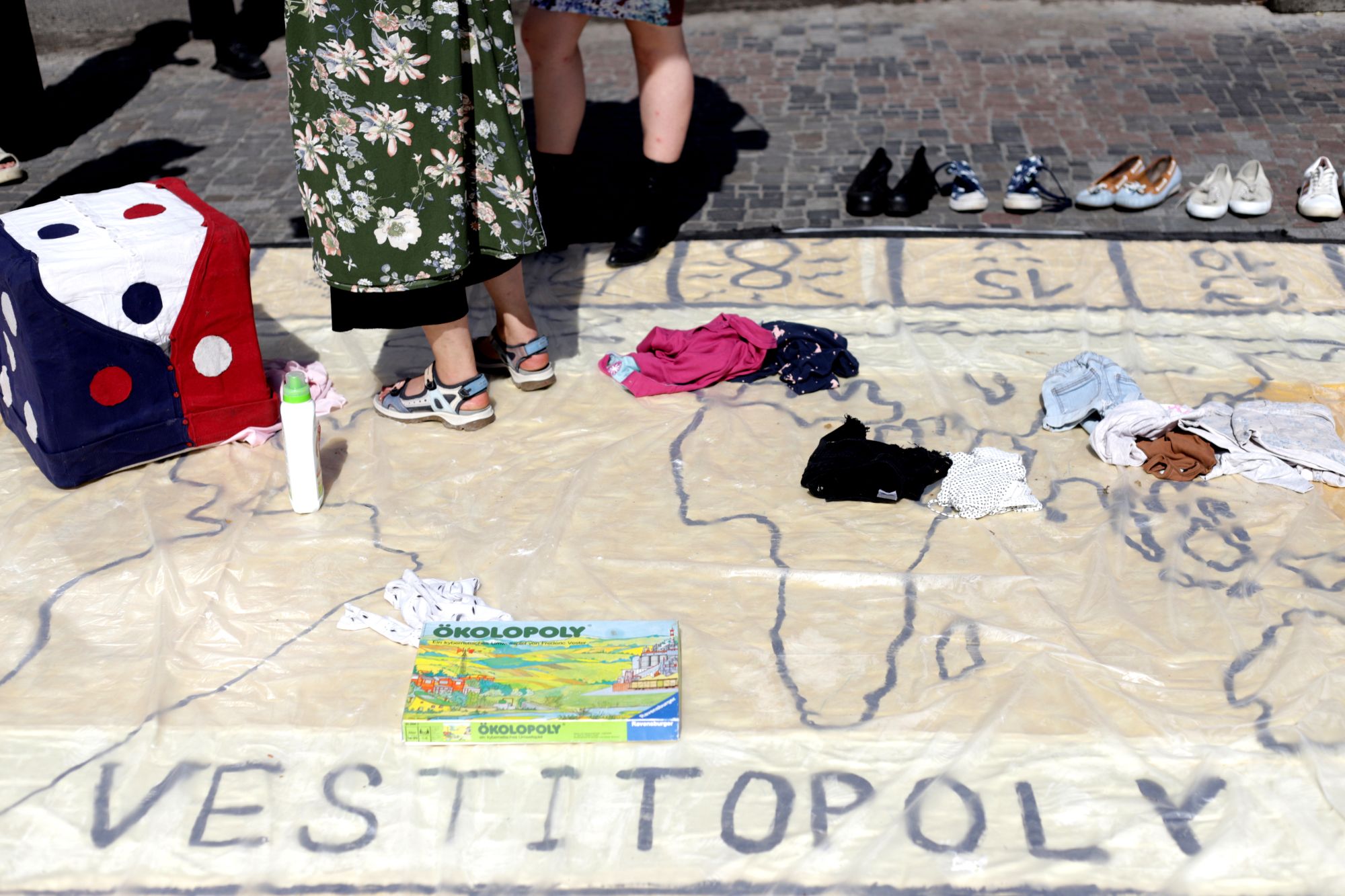
We played VESTITOPOLY in the cultural summer programme of DRAUSSENSTADT / Supported by the Stiftung für Kulturelle Weiterbildung und Kulturberatung / Stiftung öffentlichen Rechts / Senatsverwaltung für Kultur und Gesellschaftlichen Zusammenhalt


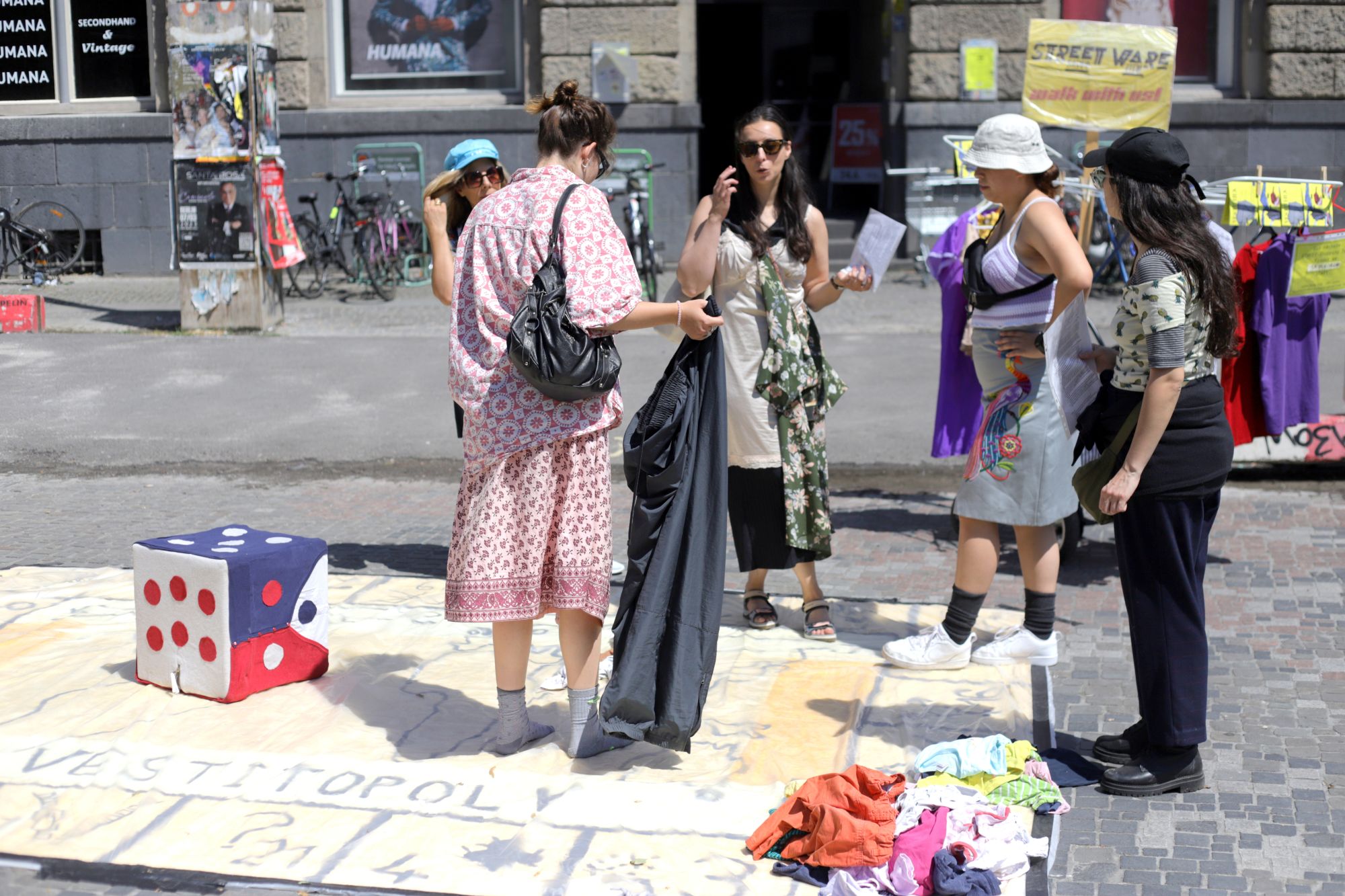
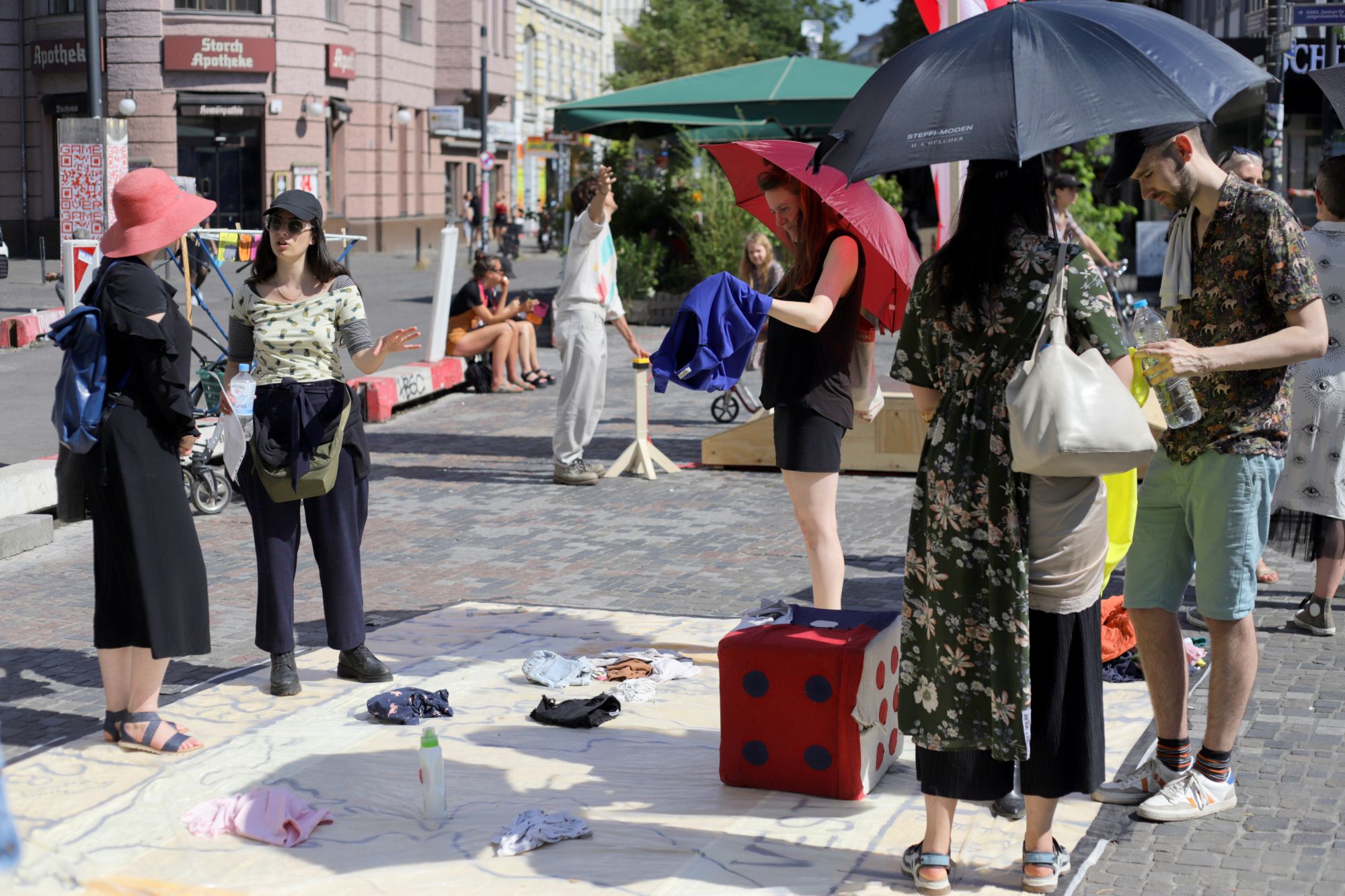
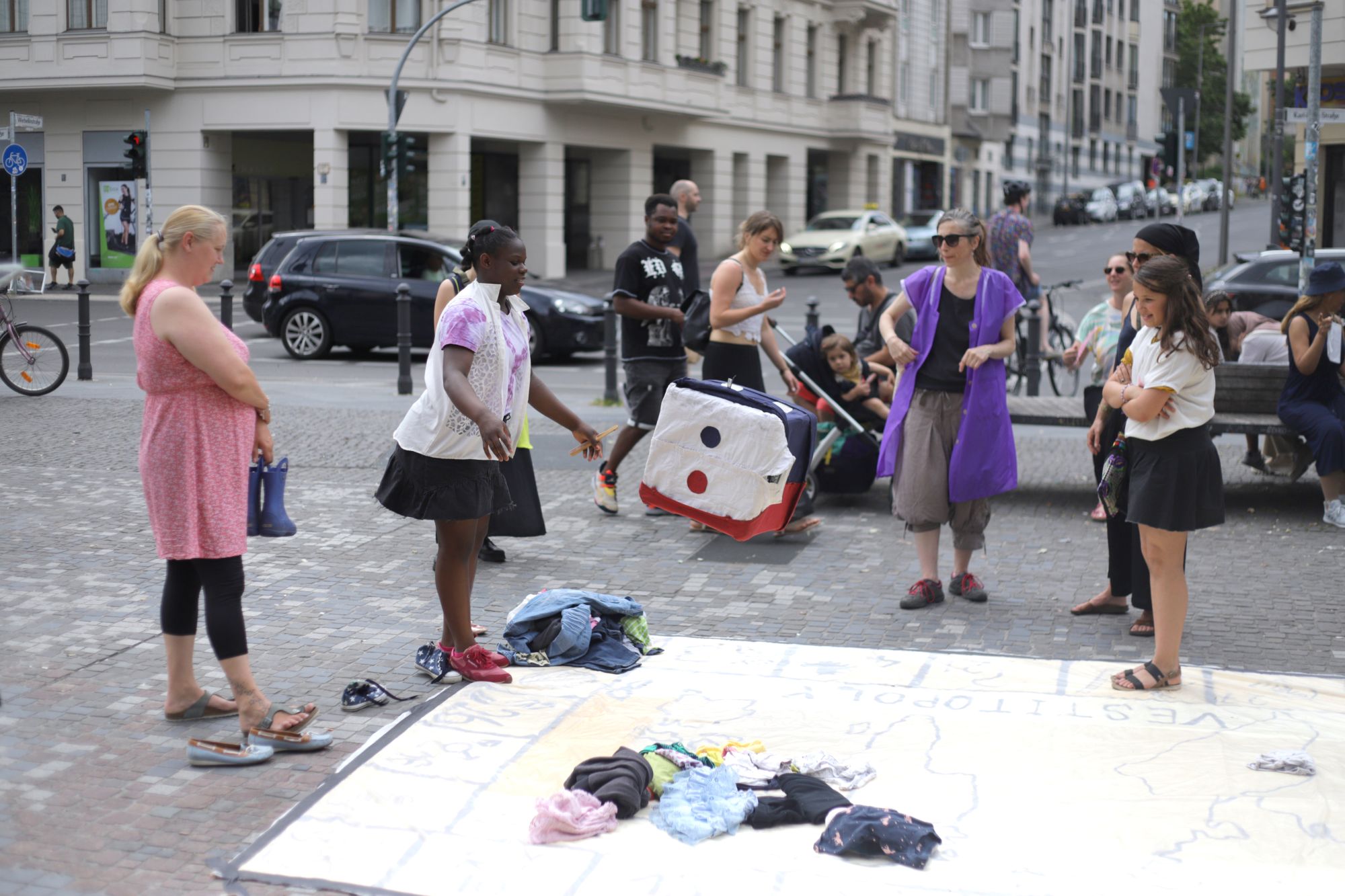
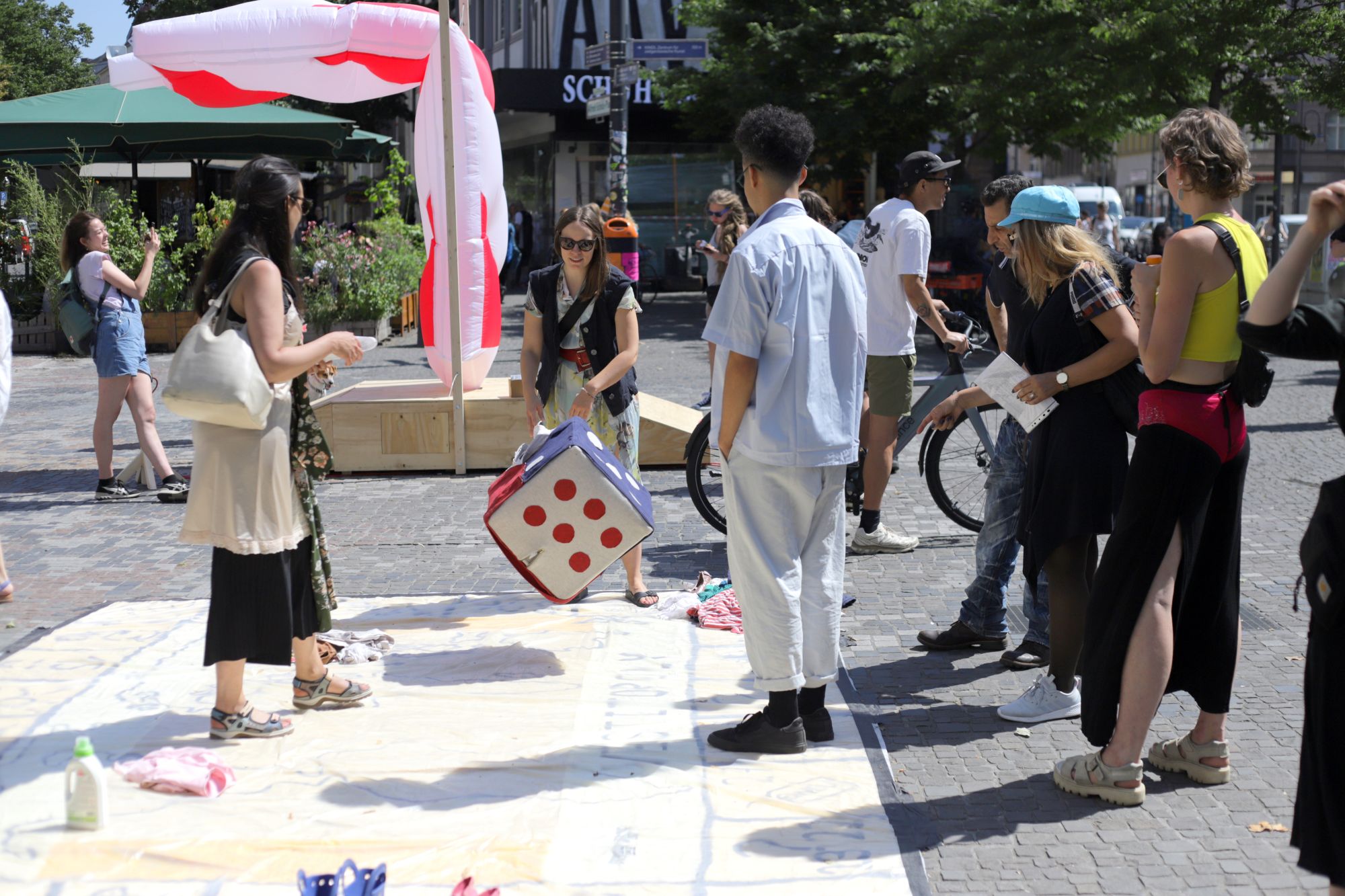
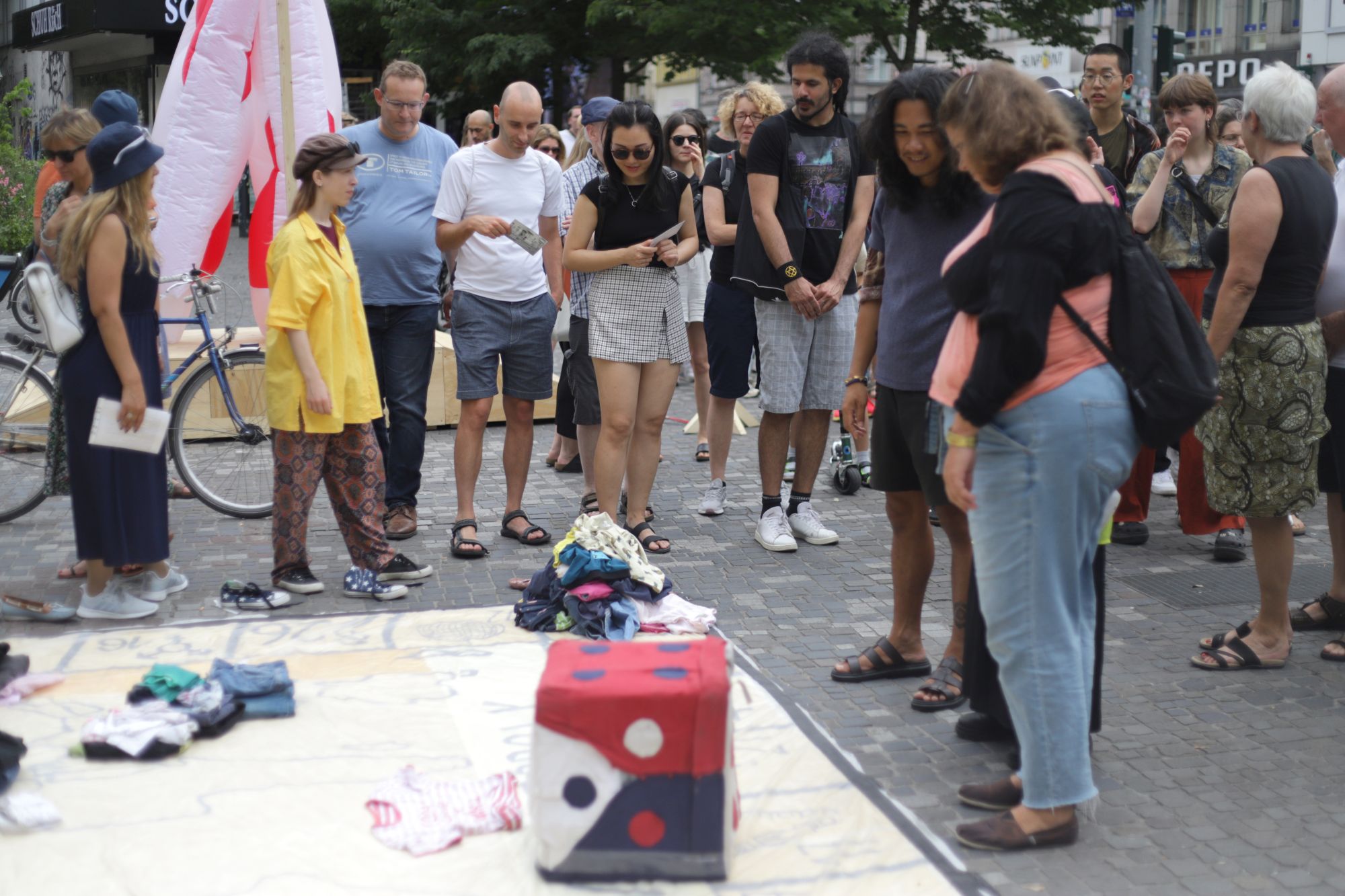
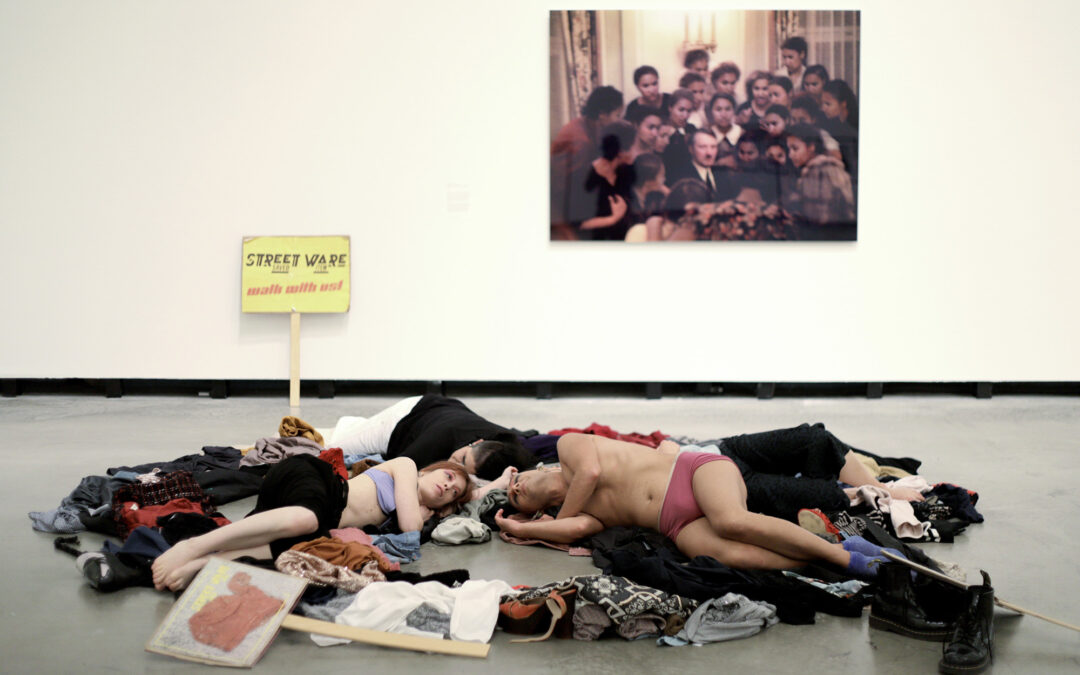

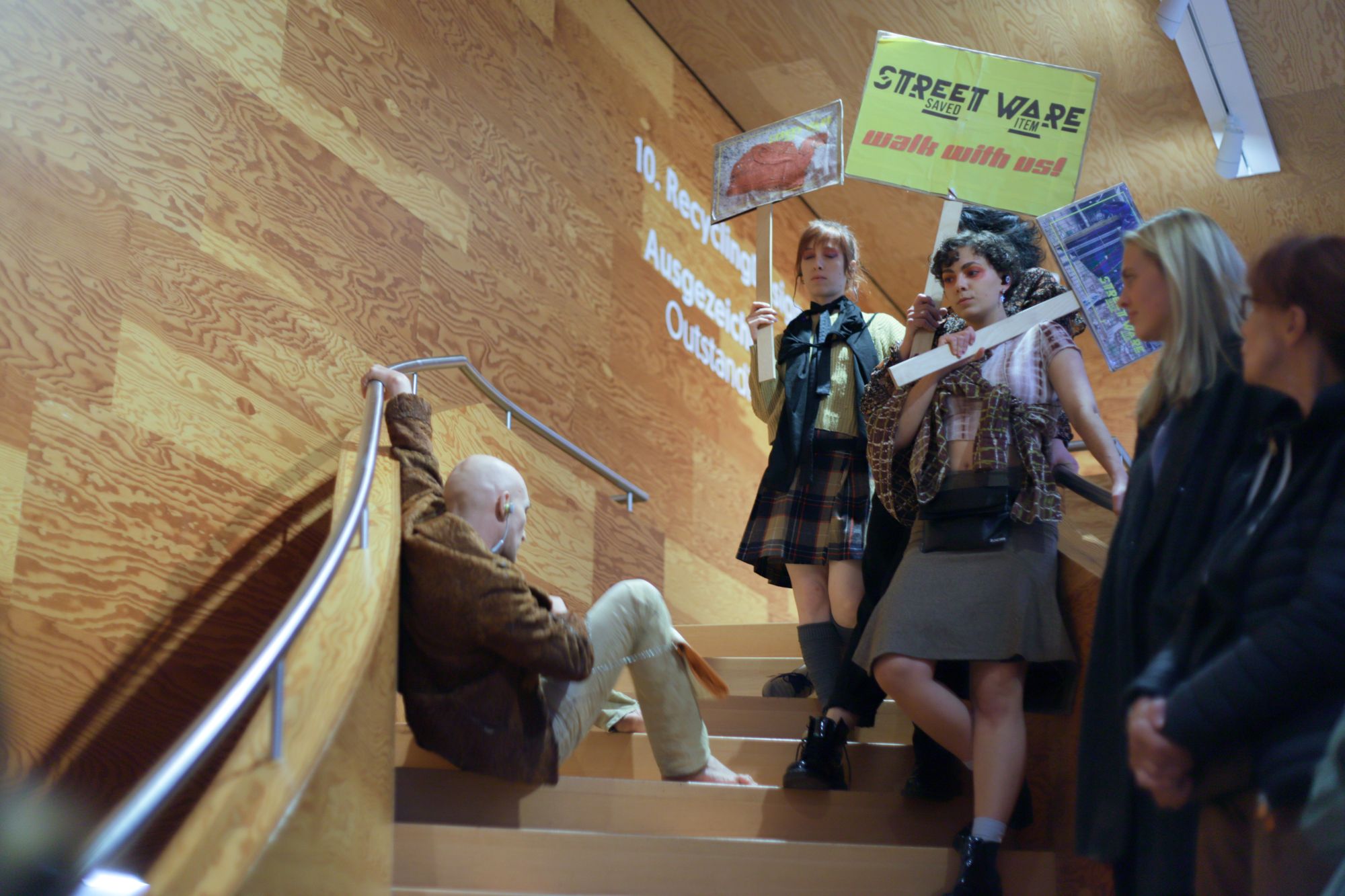
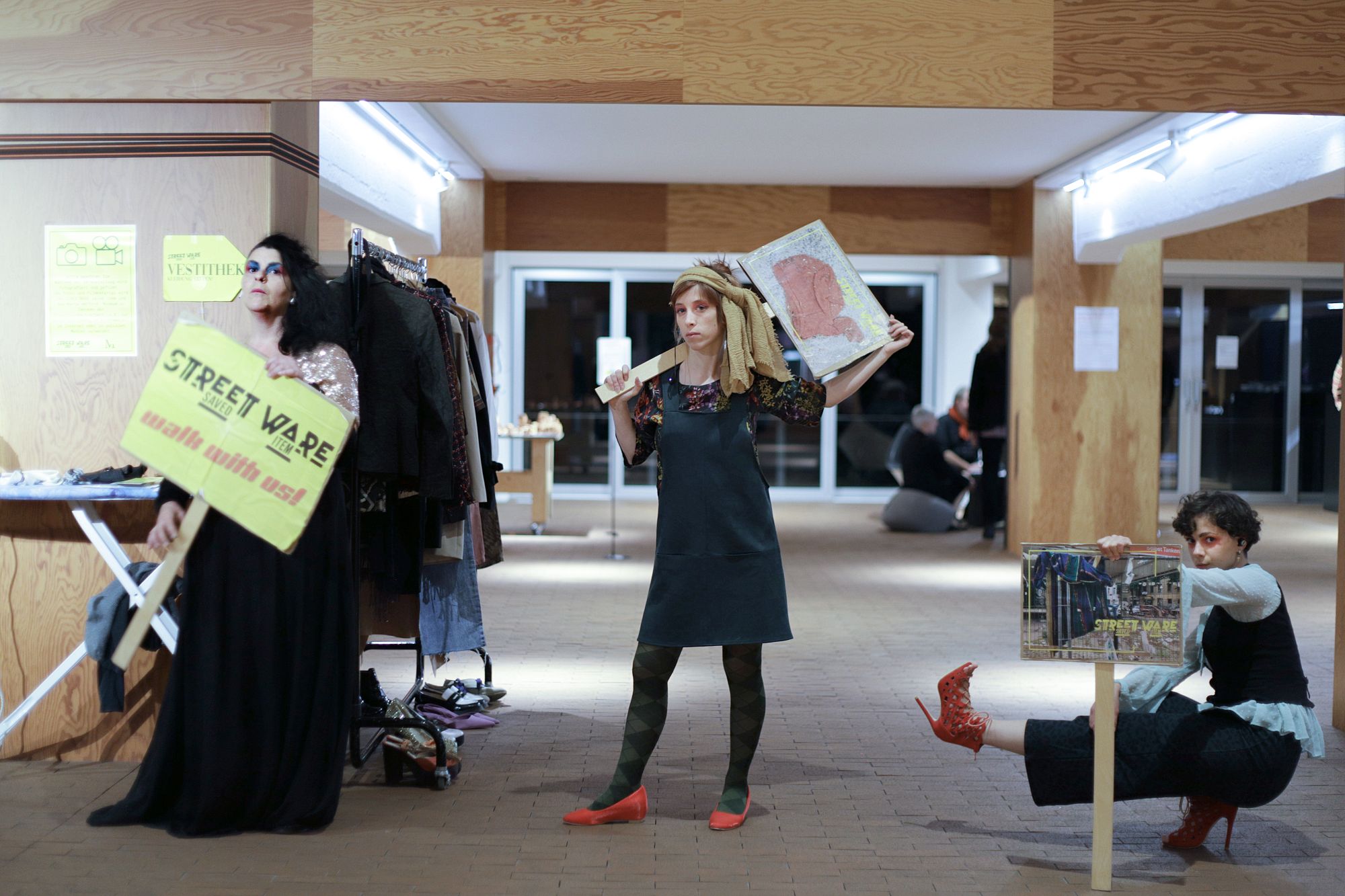
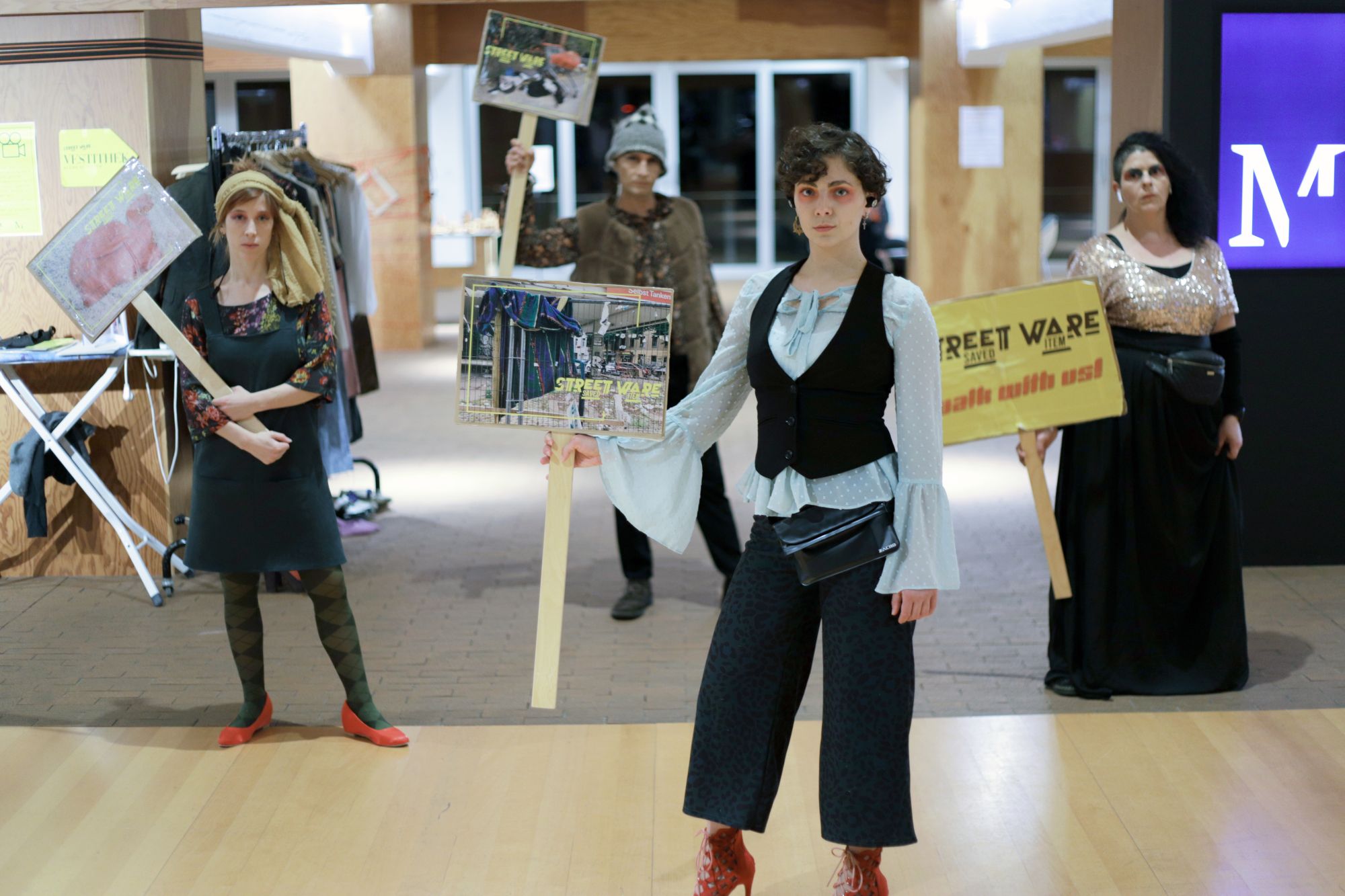
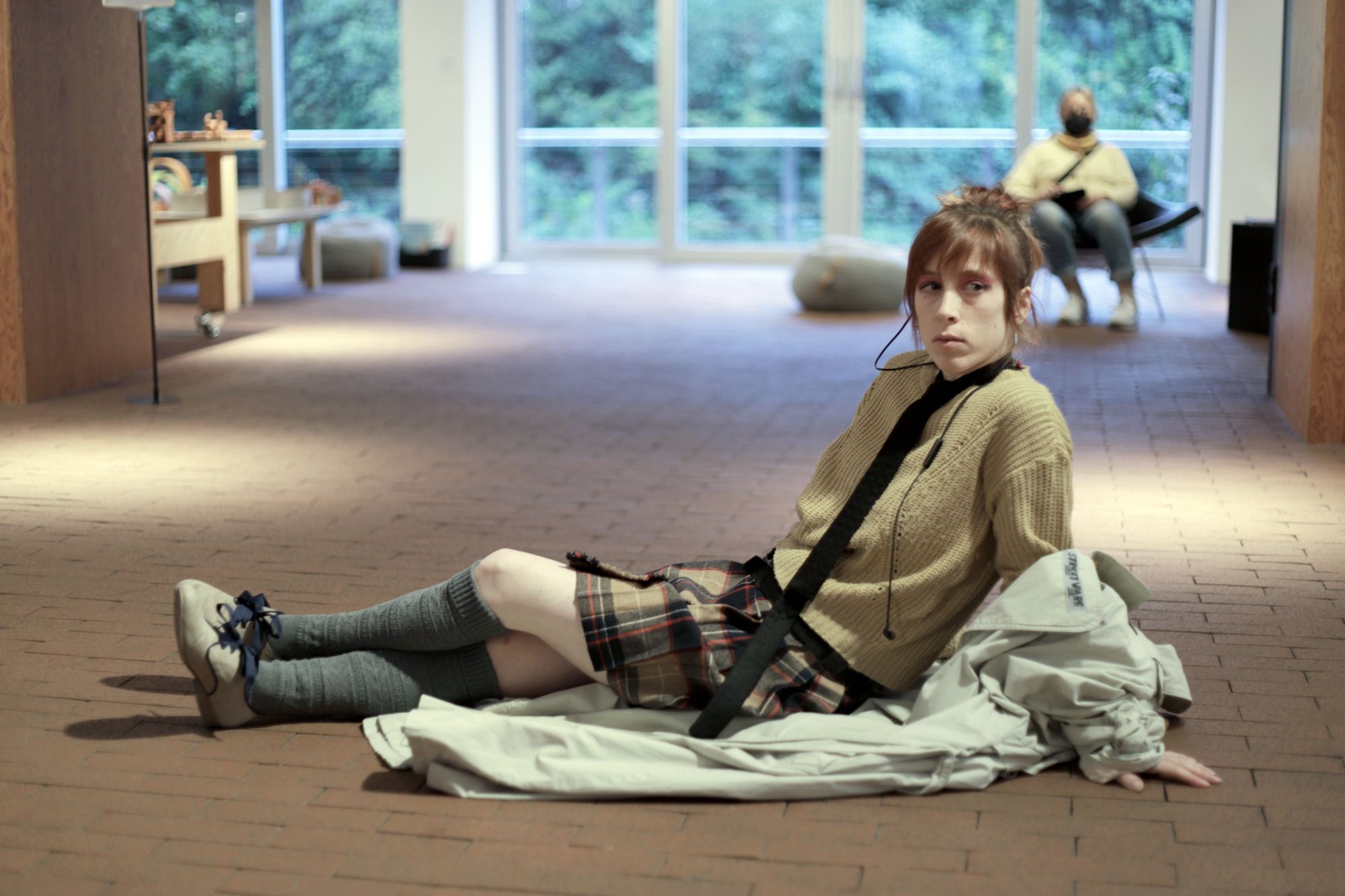
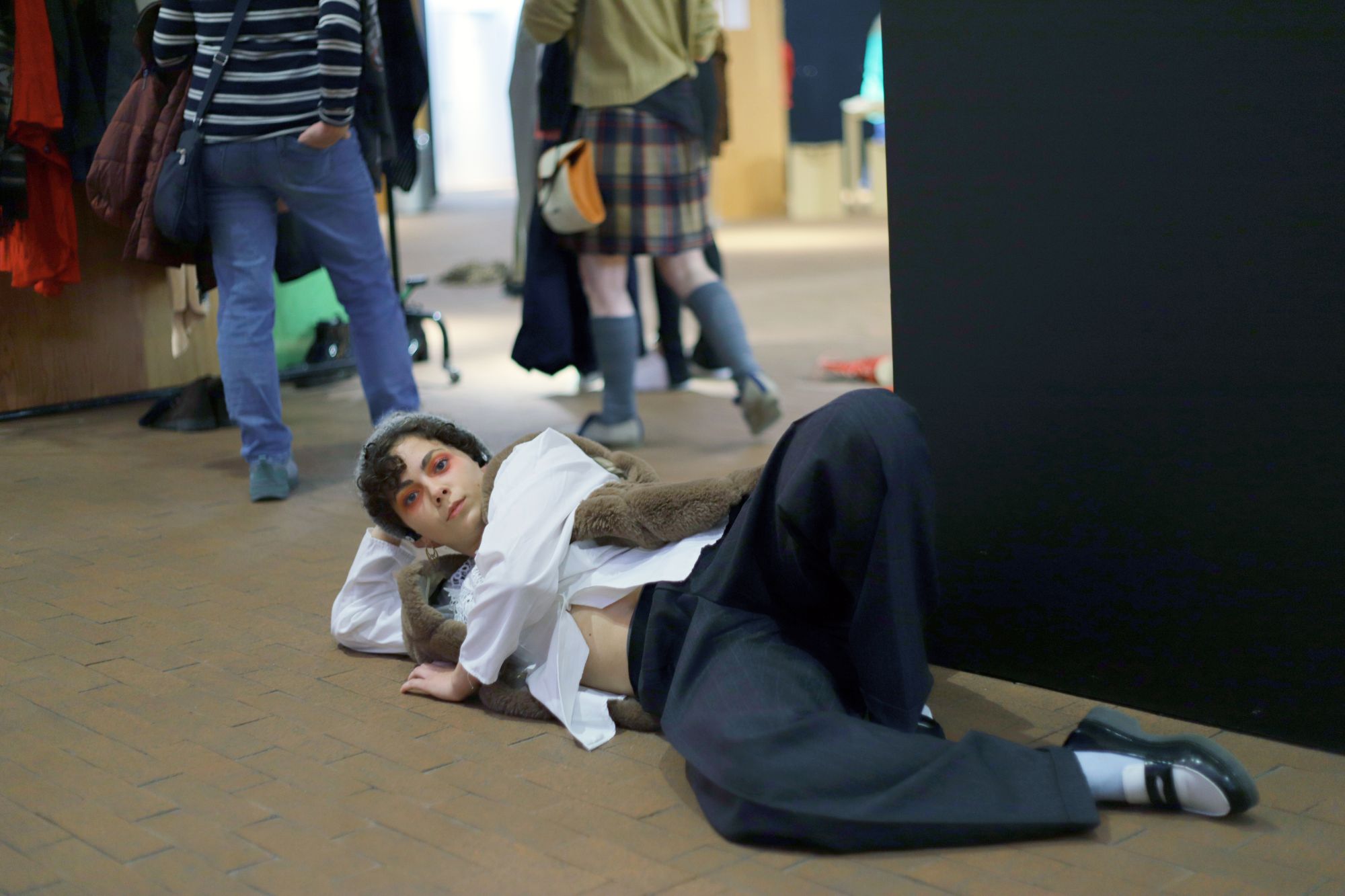

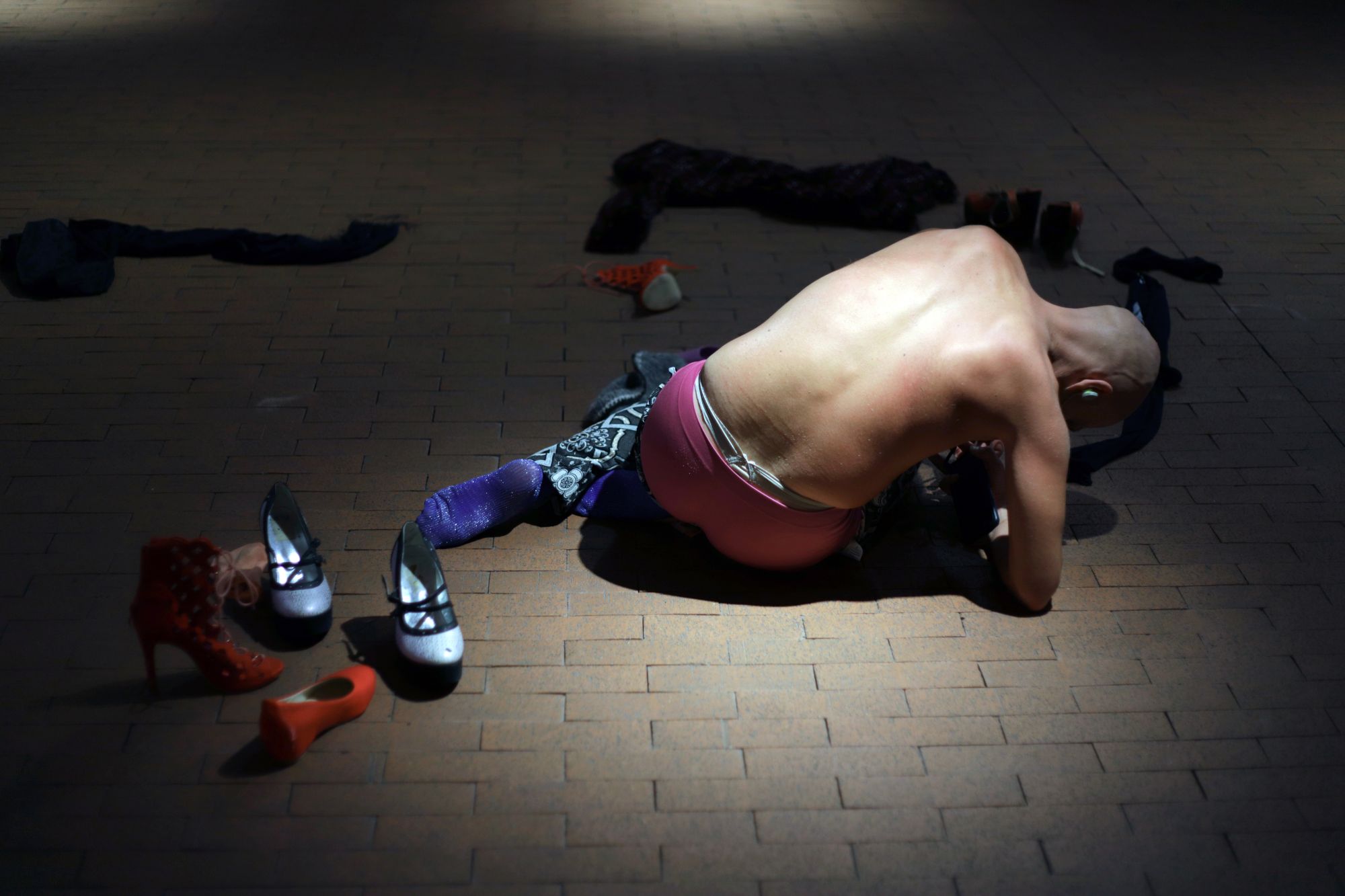
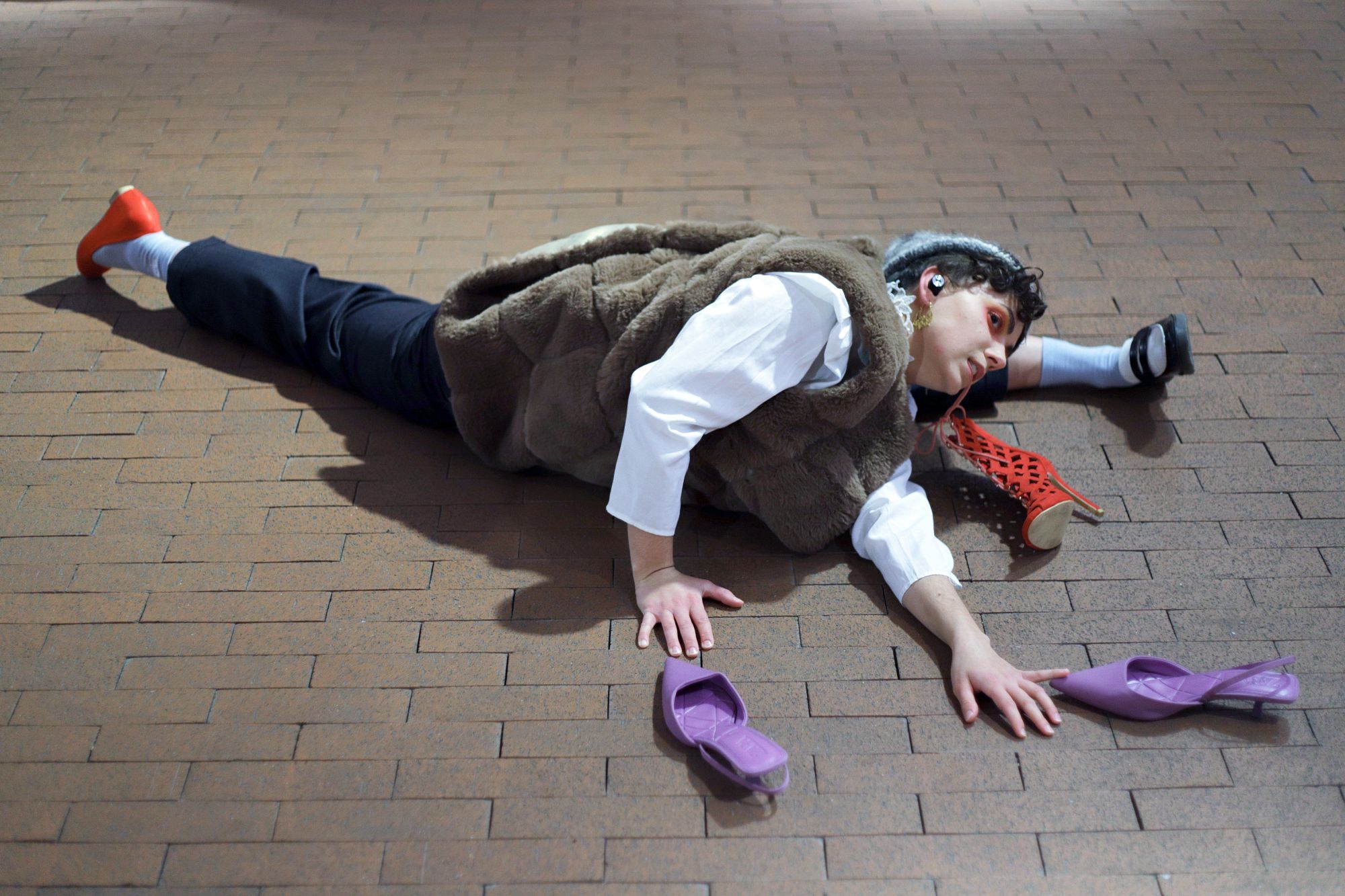

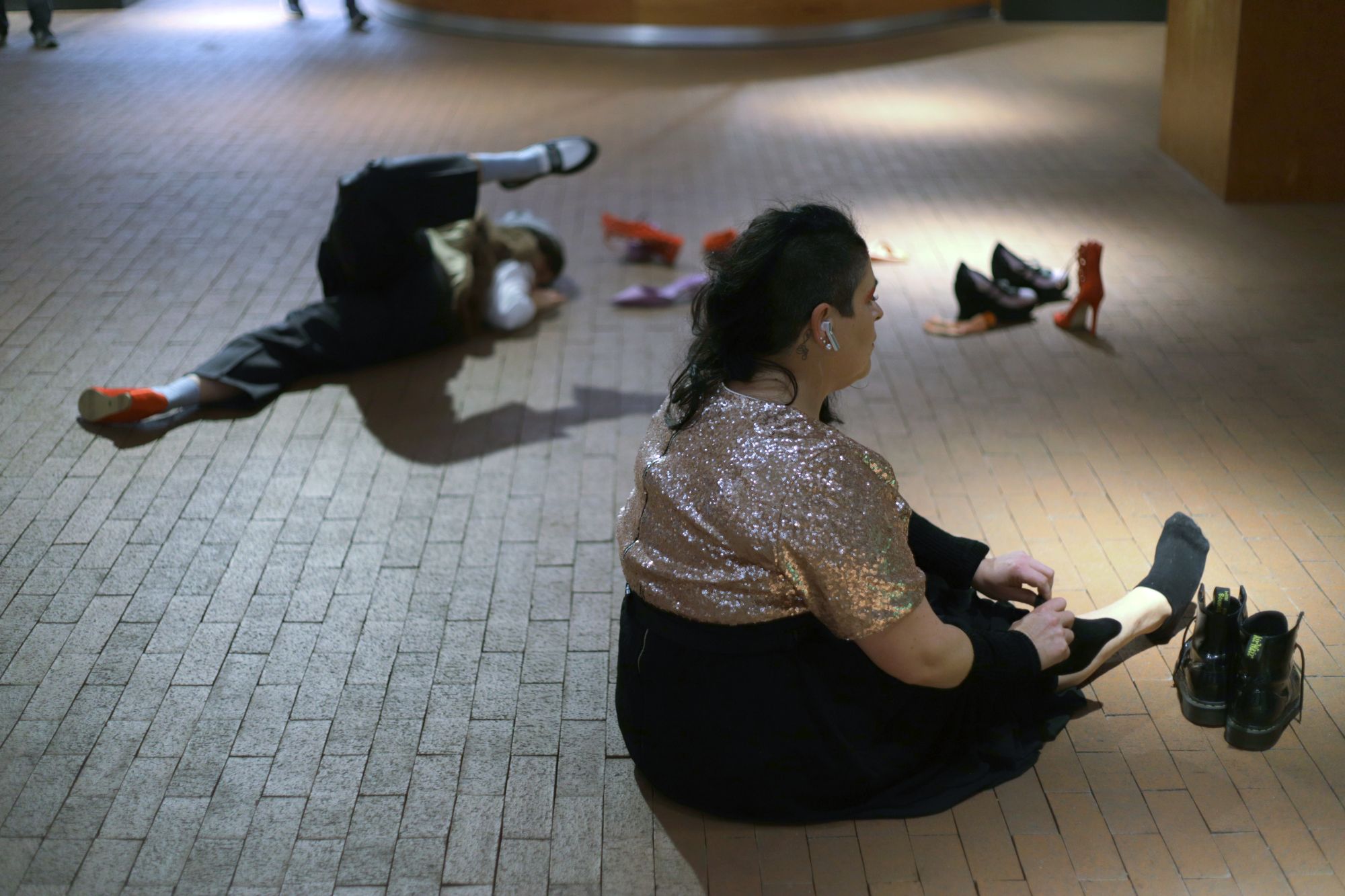
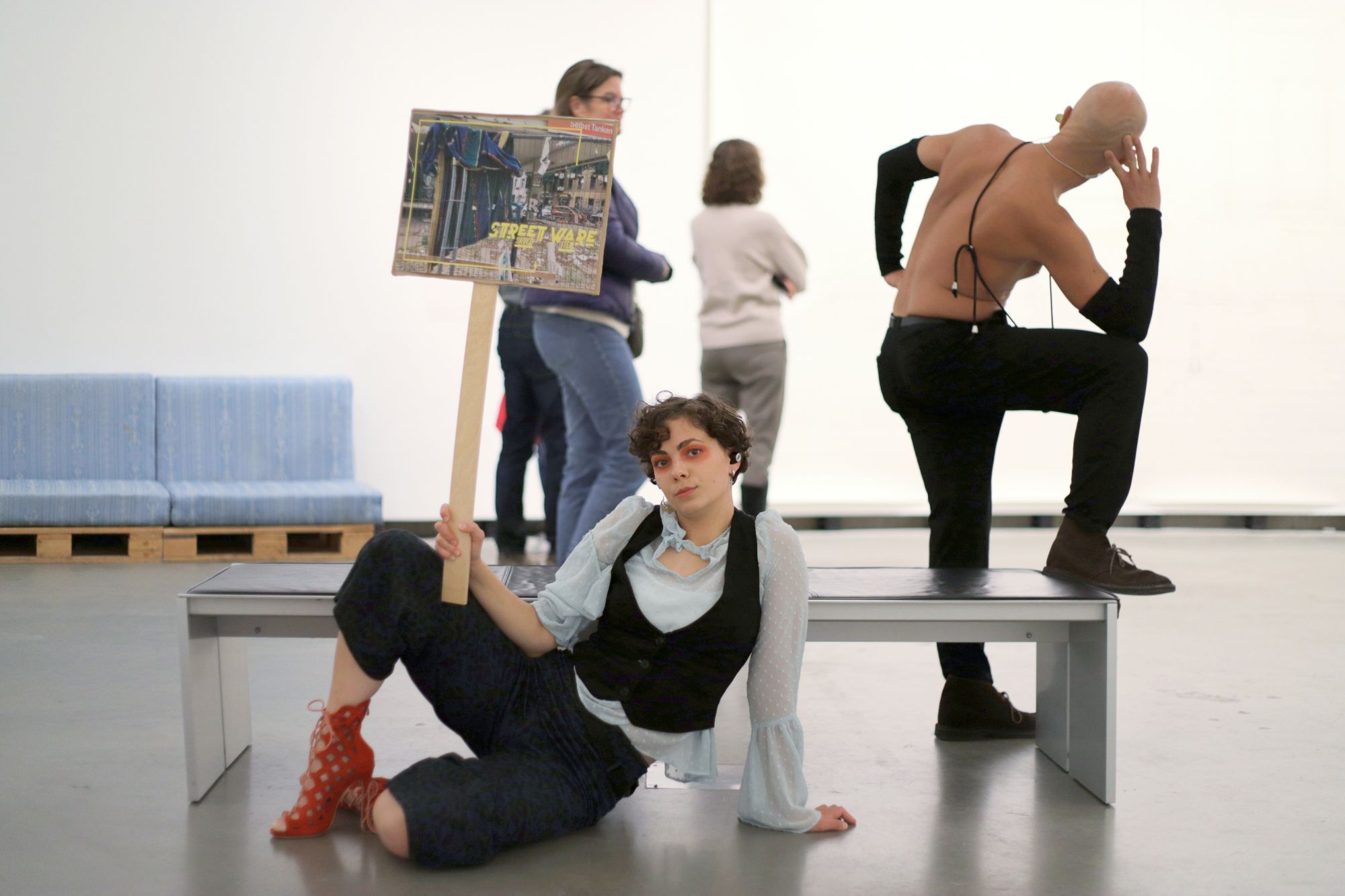
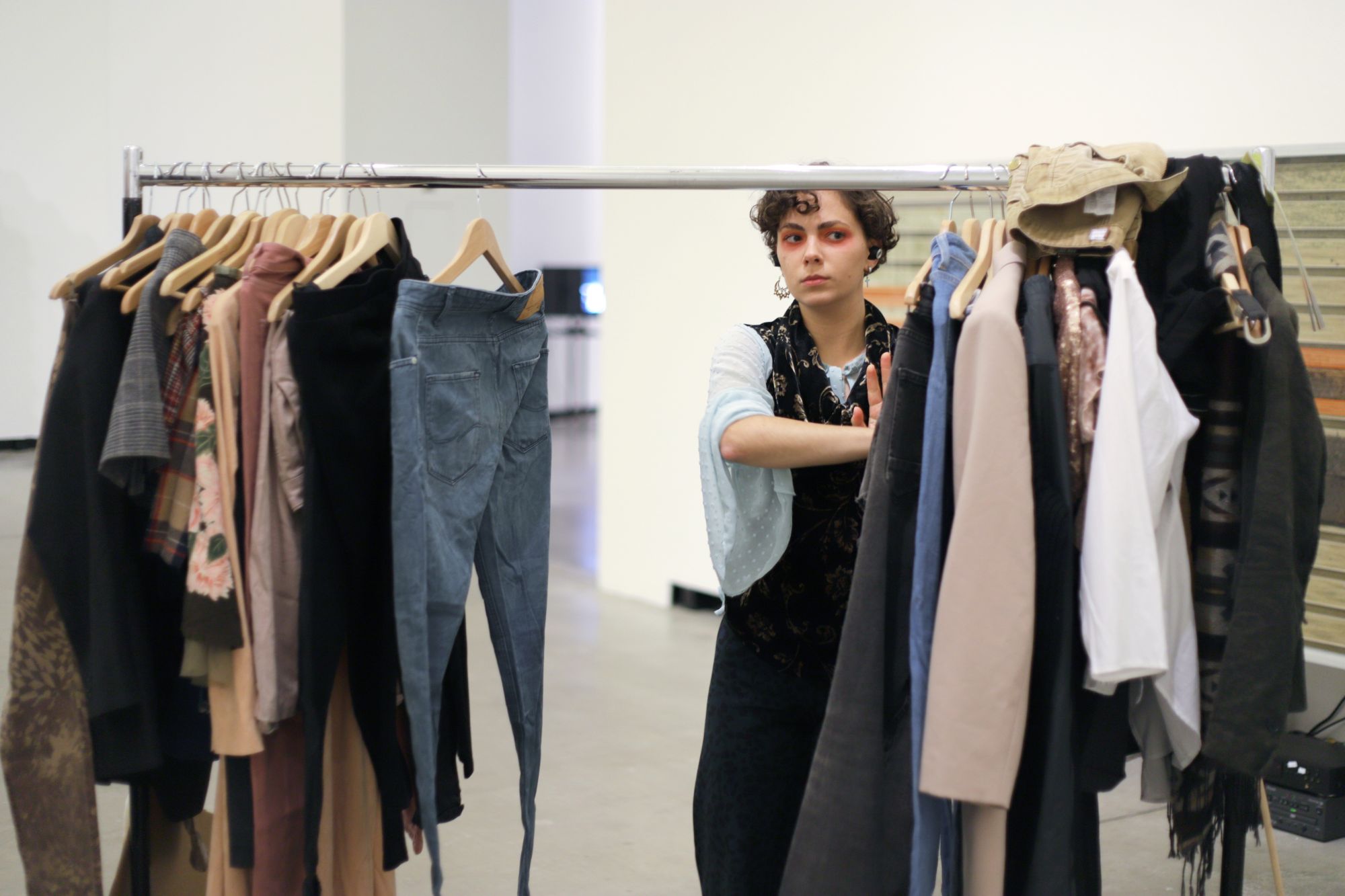
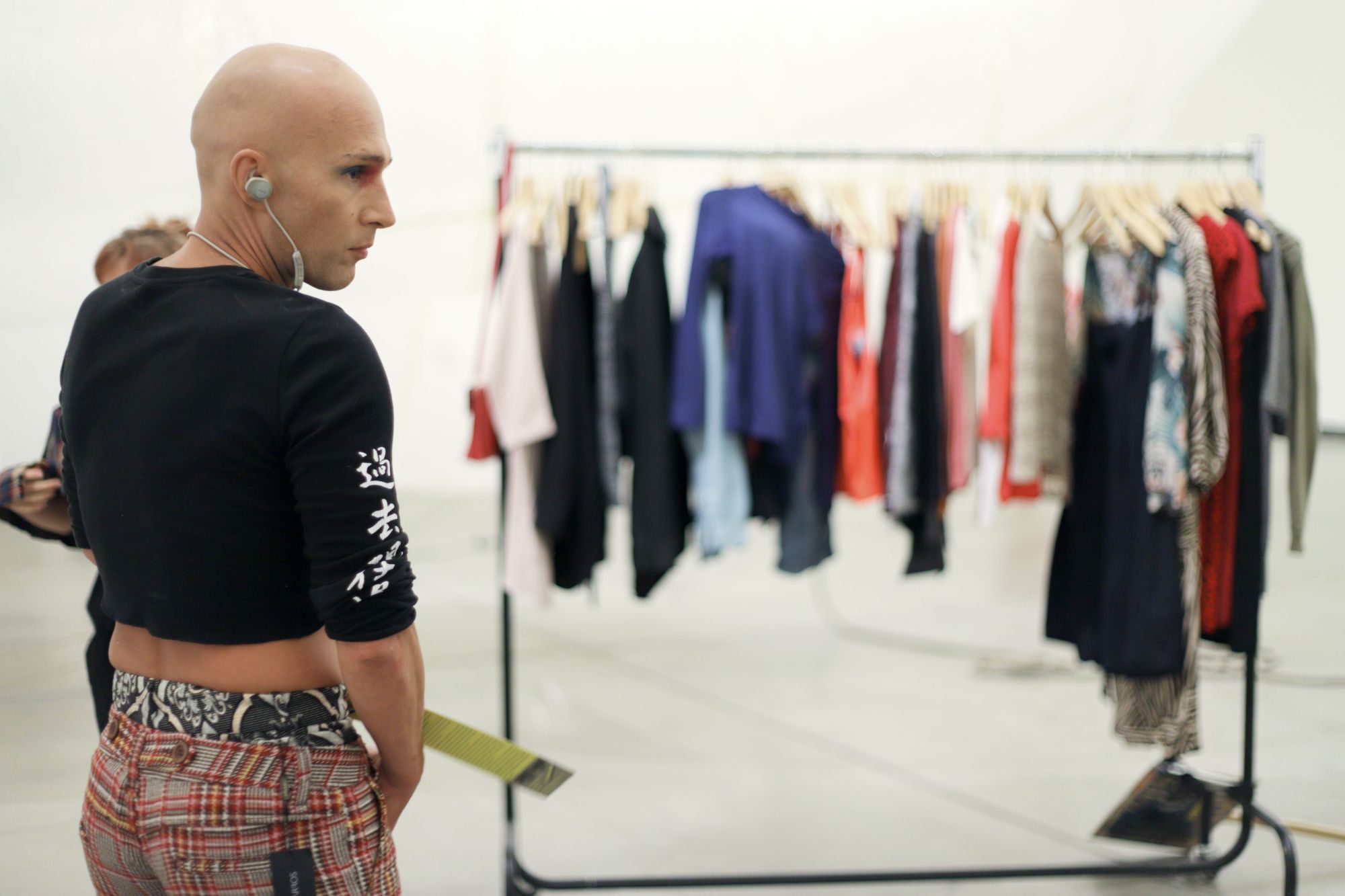
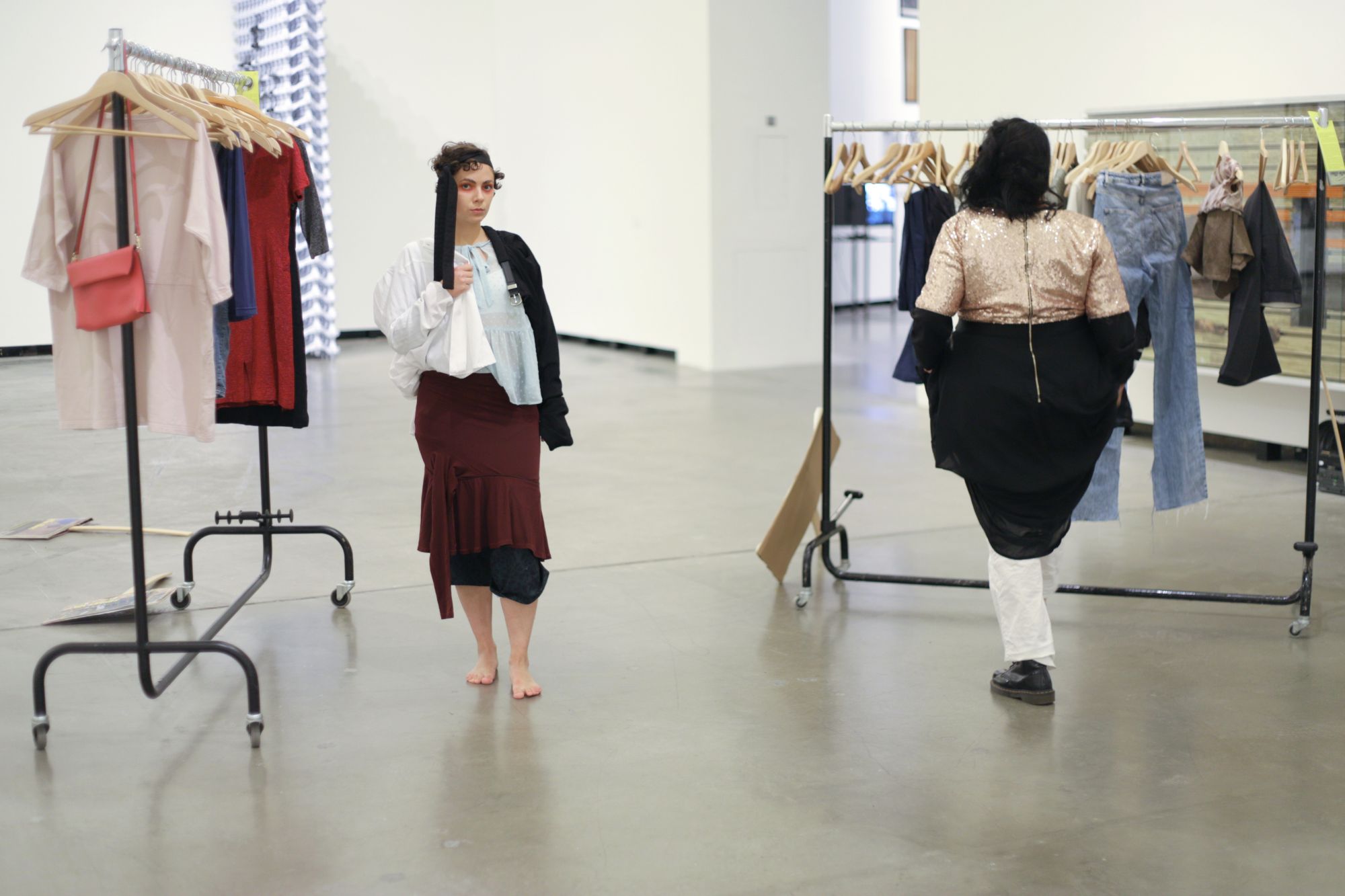
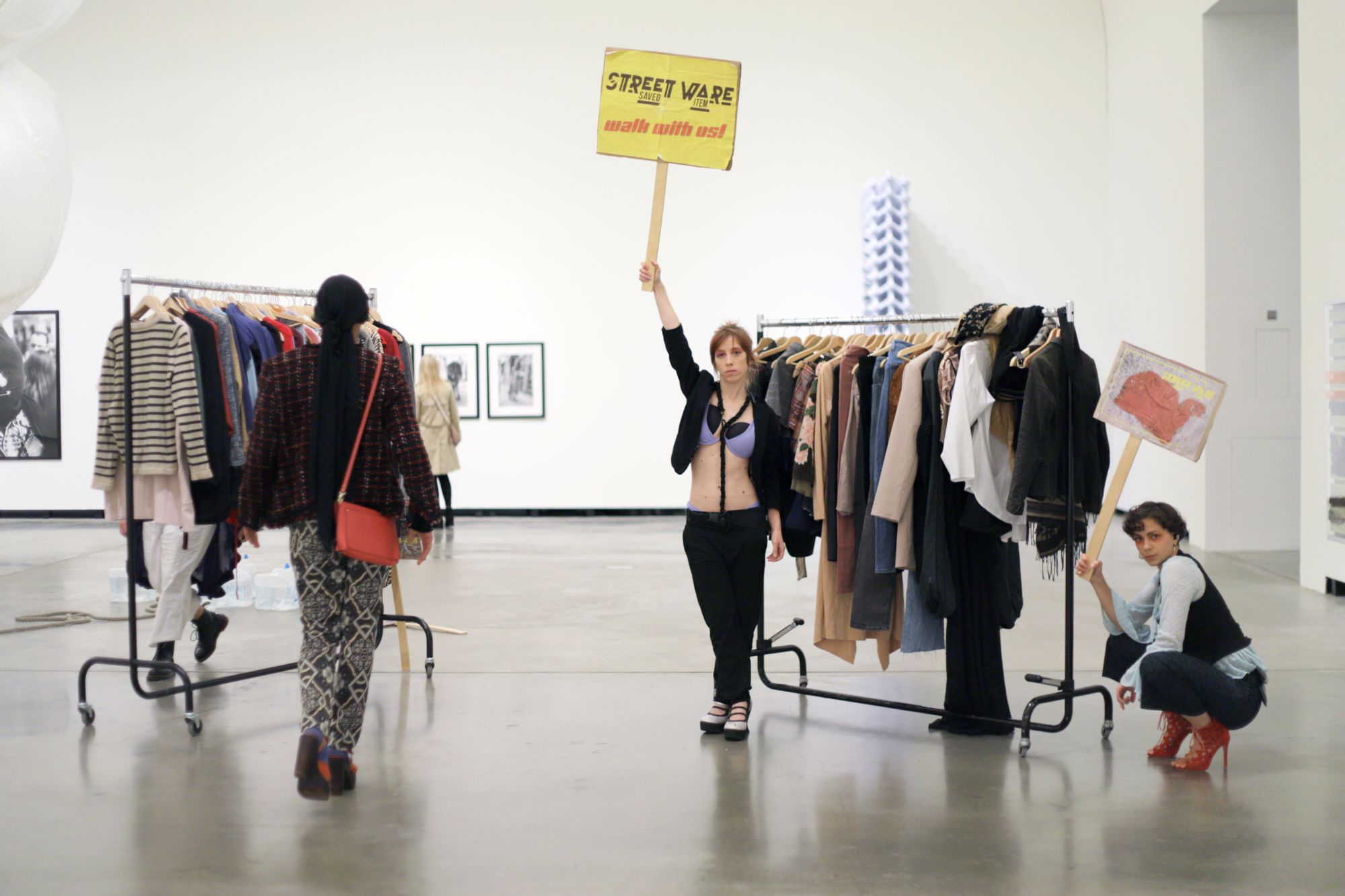
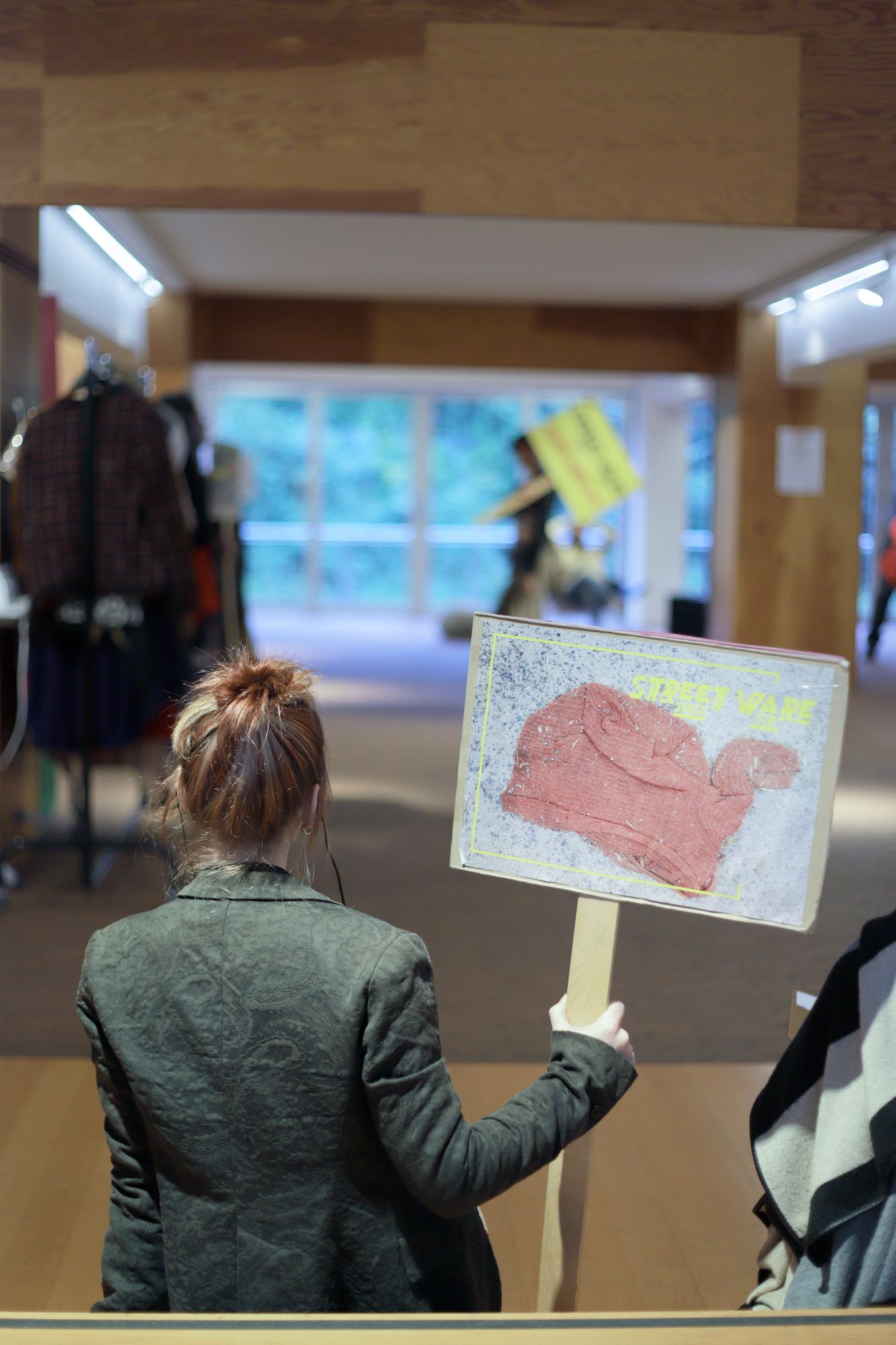

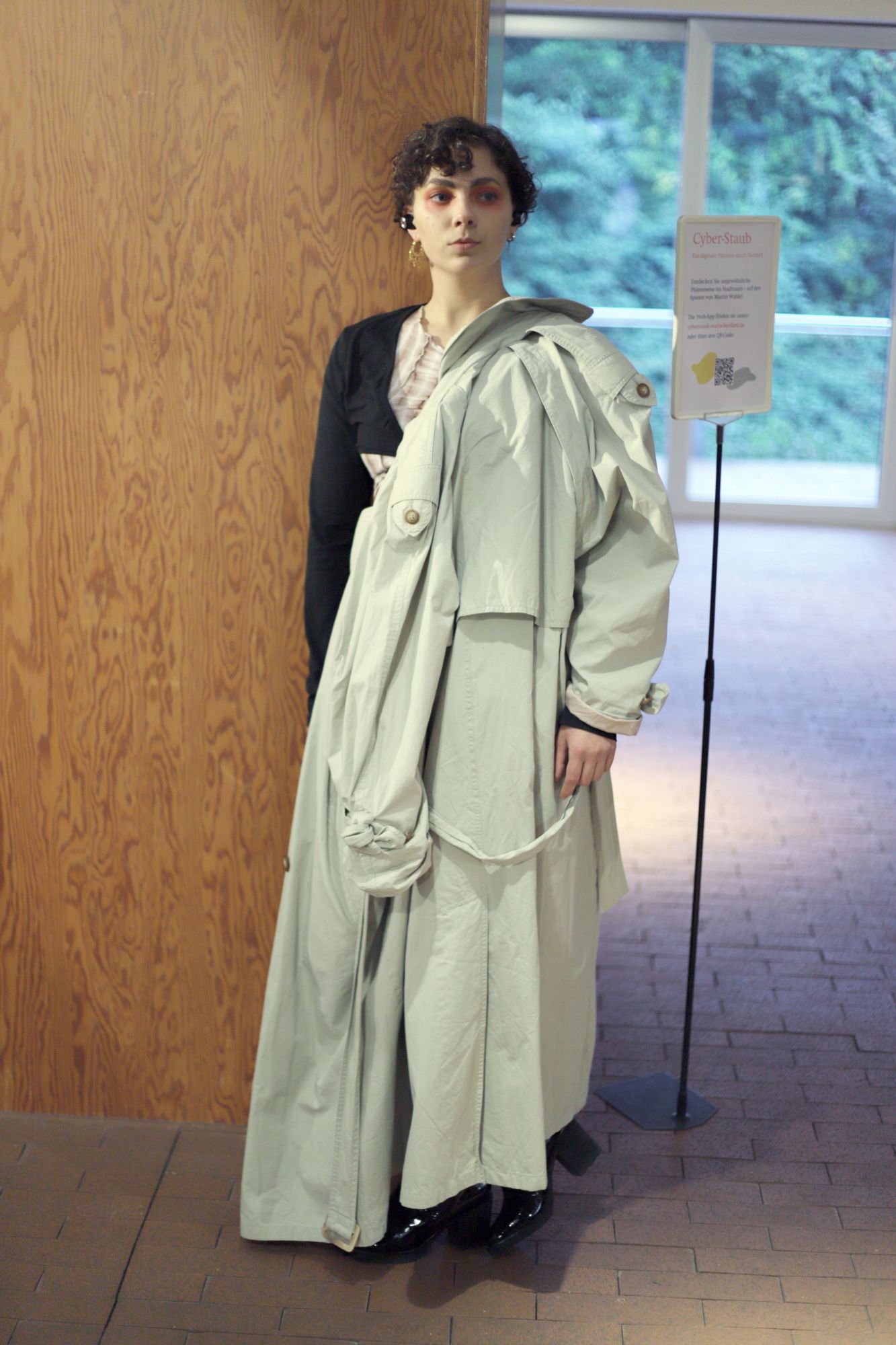
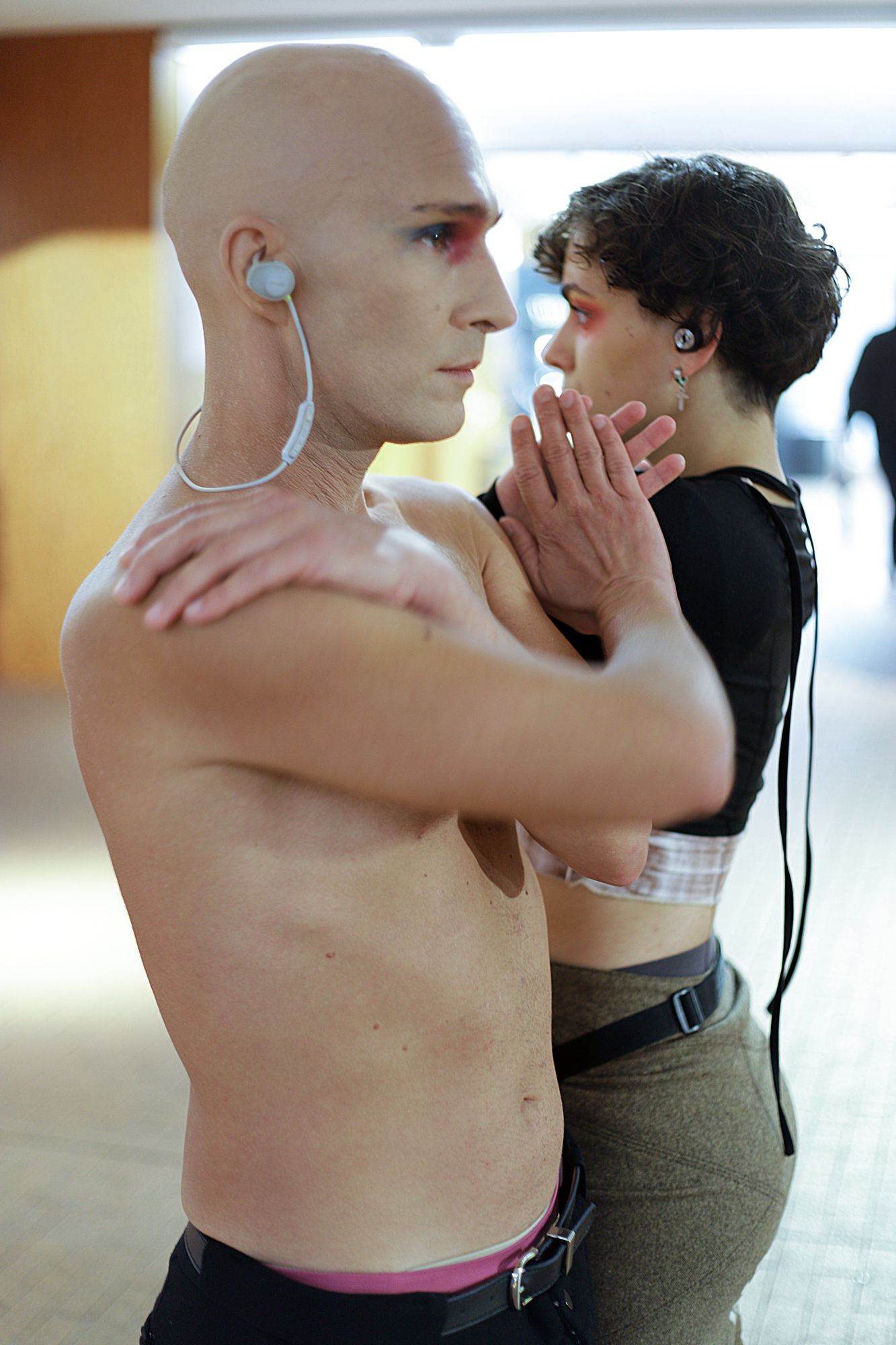
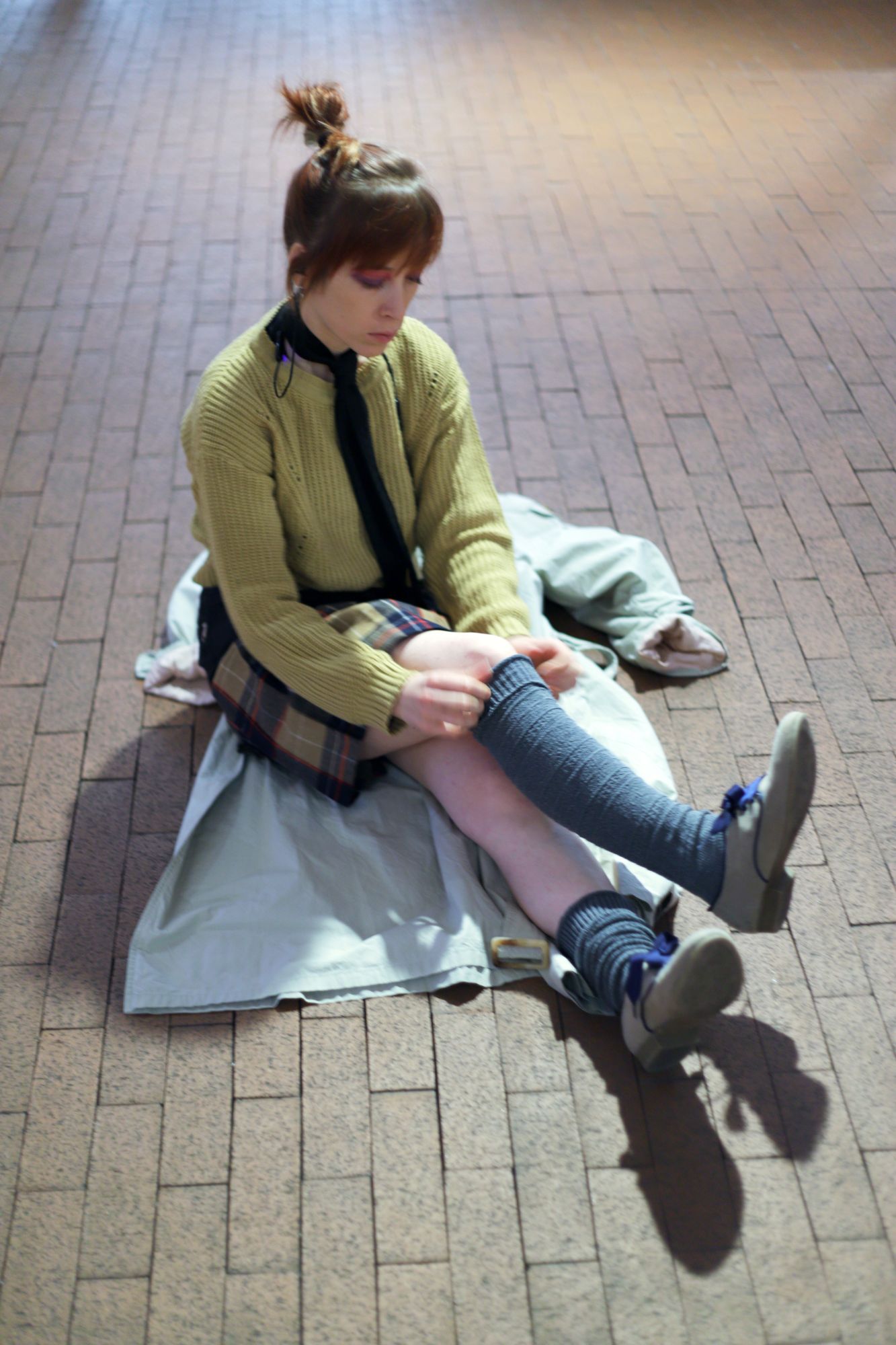
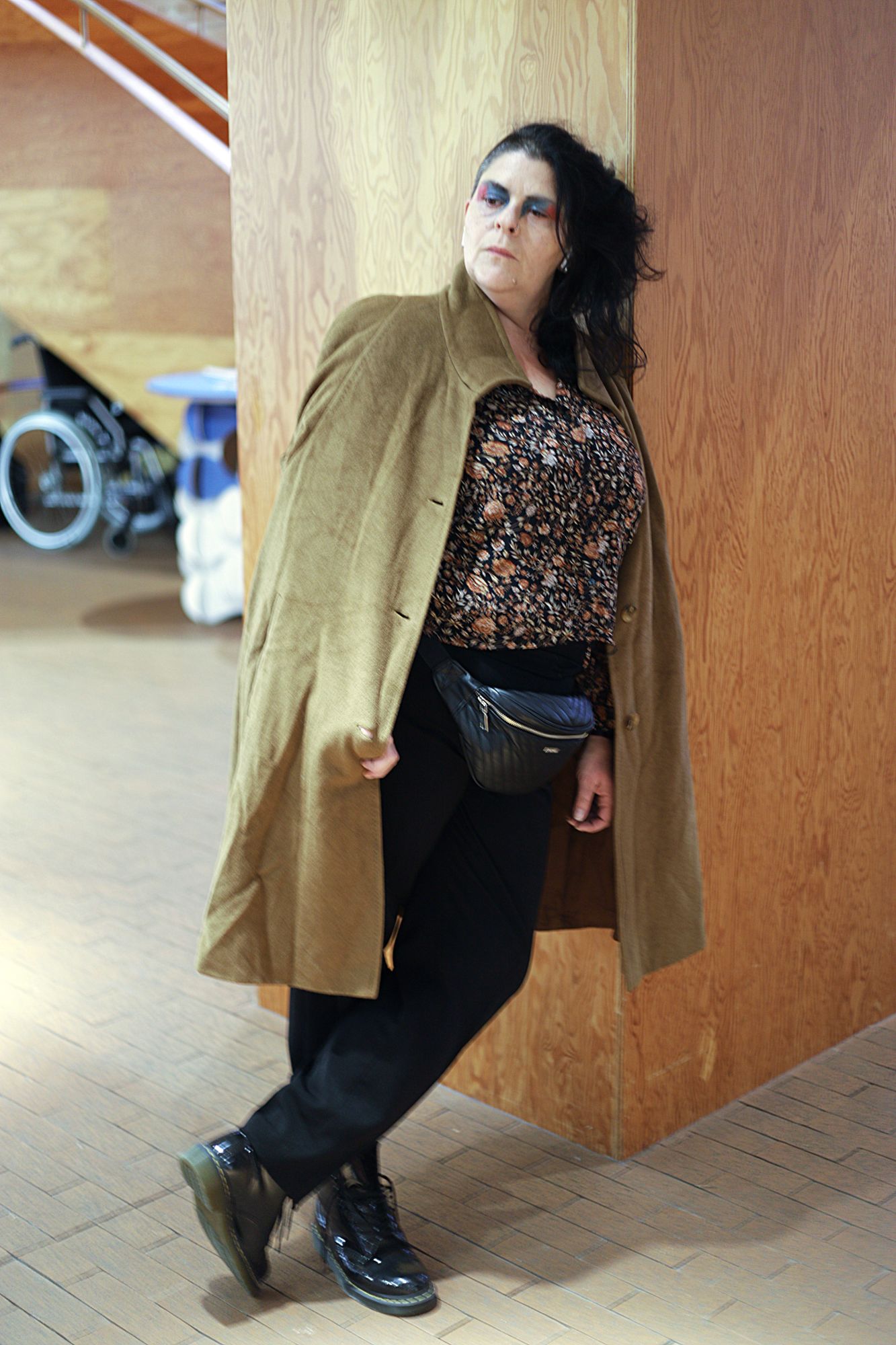
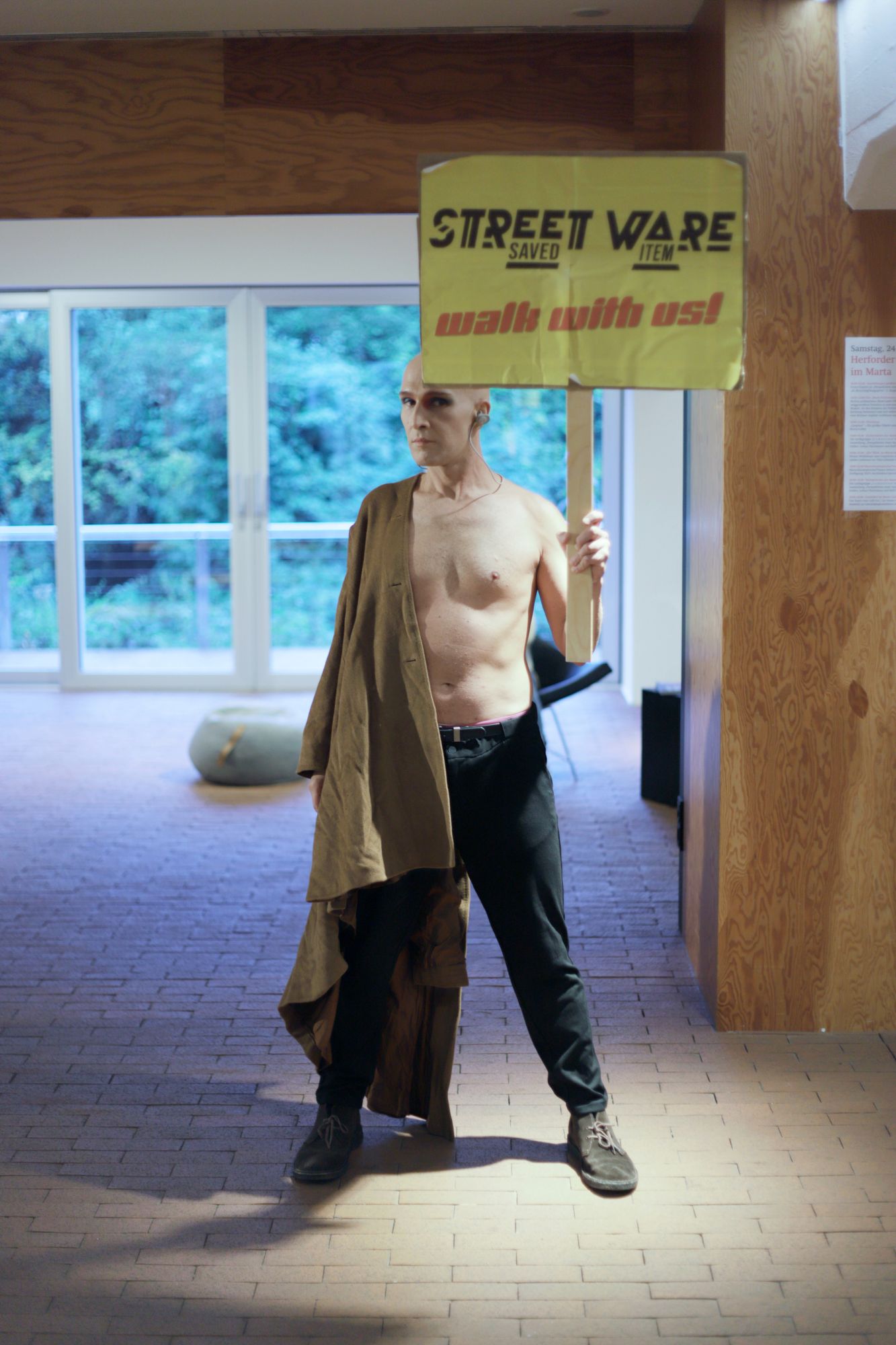
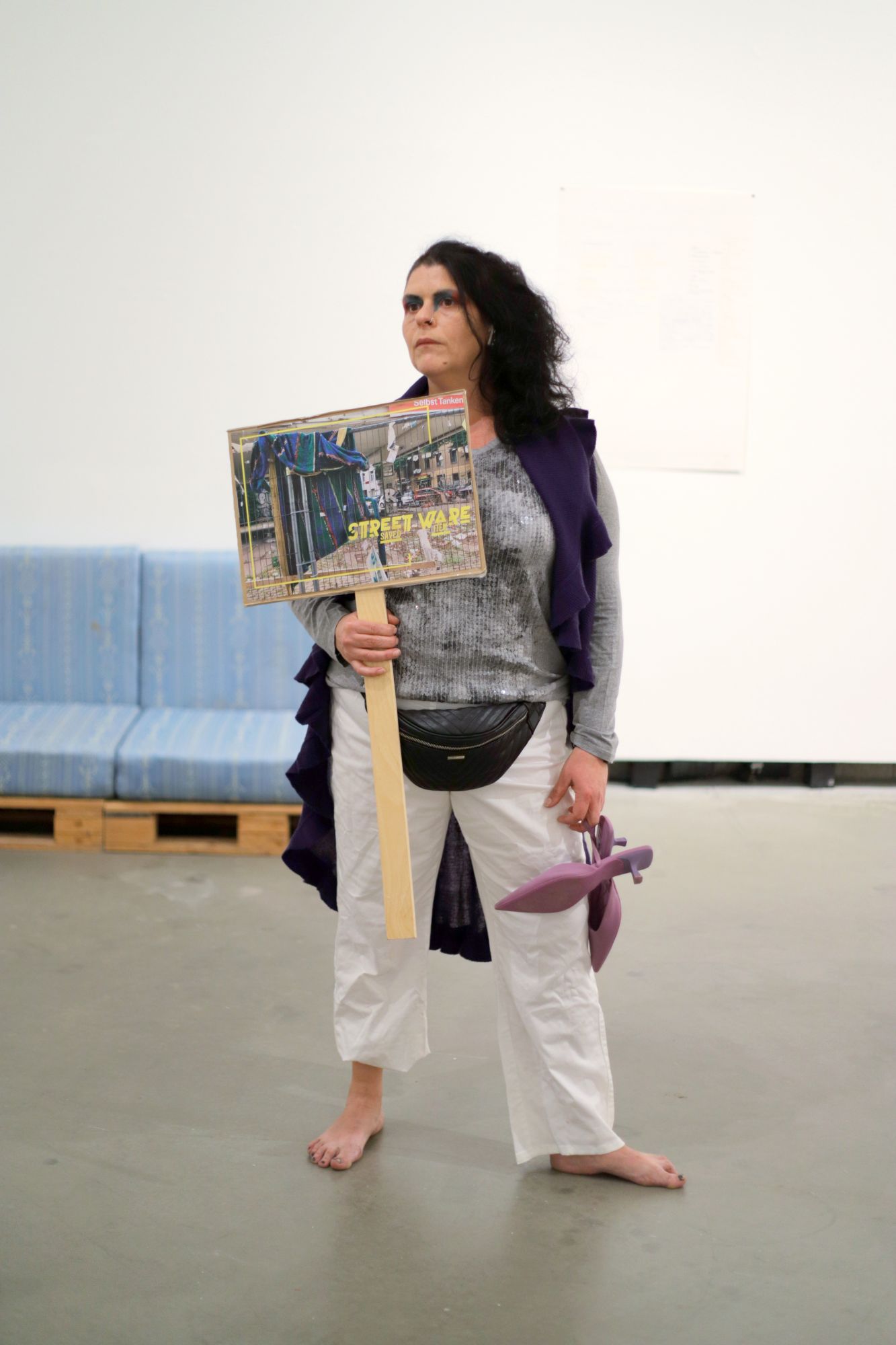
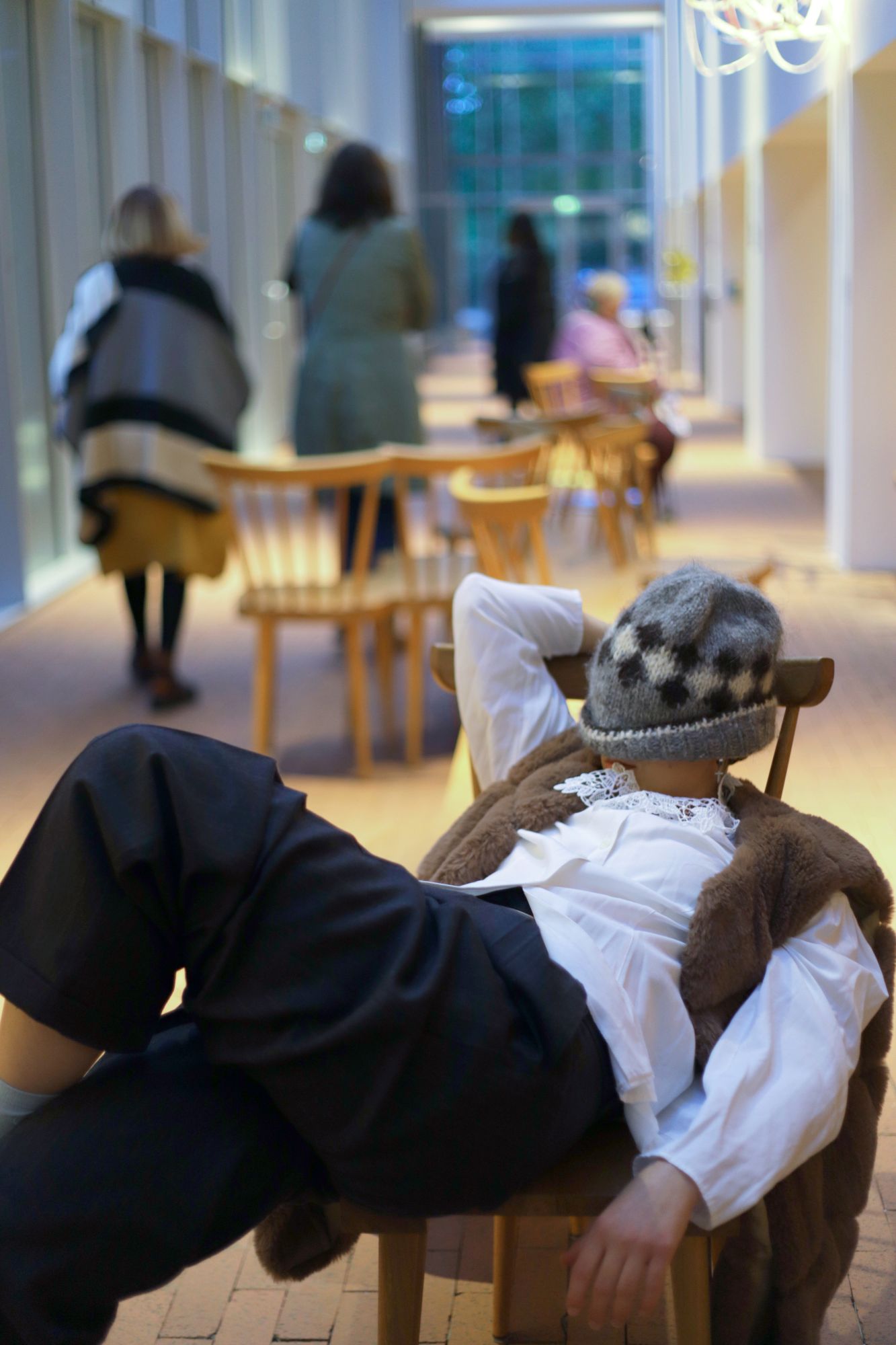
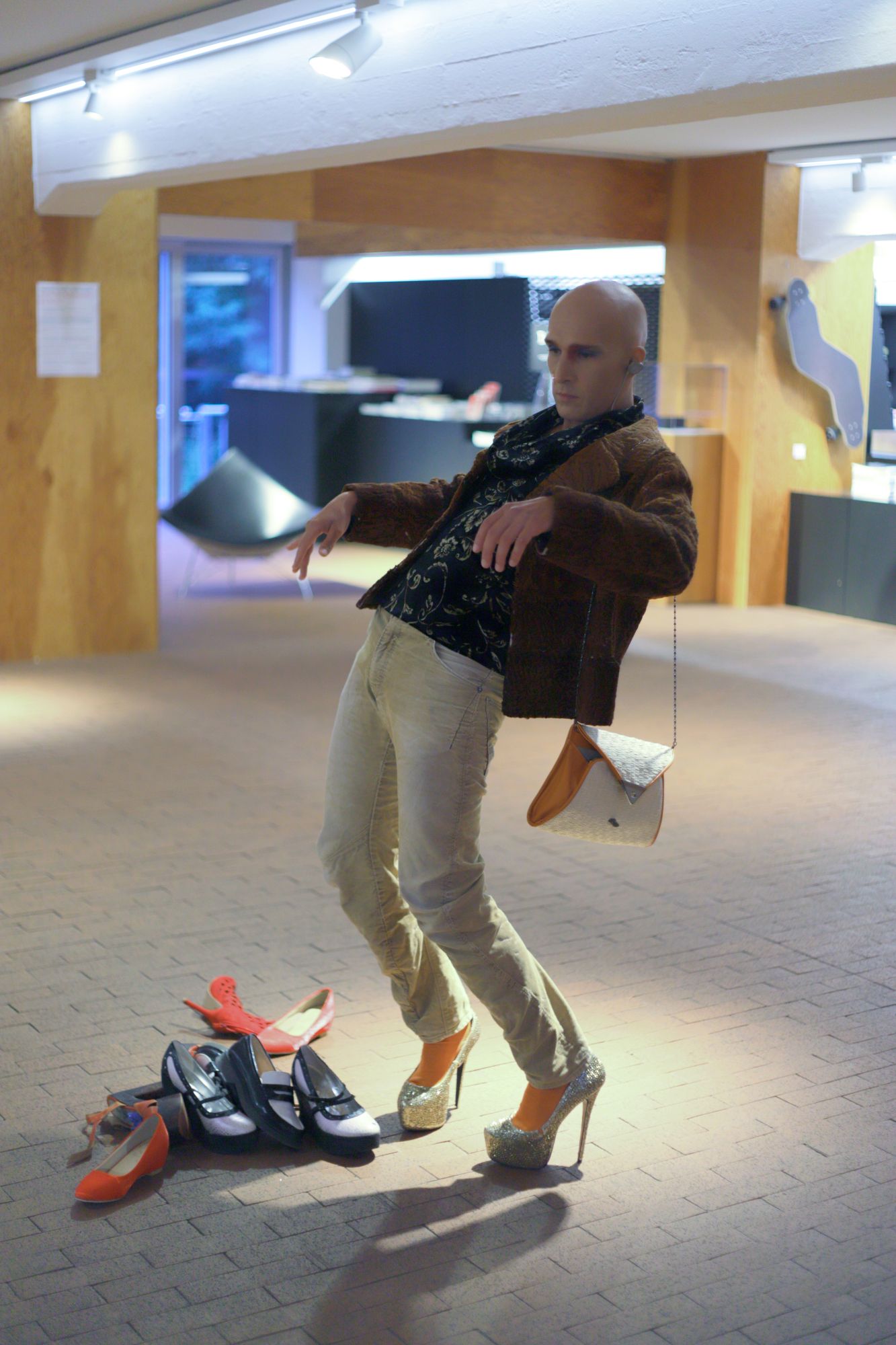

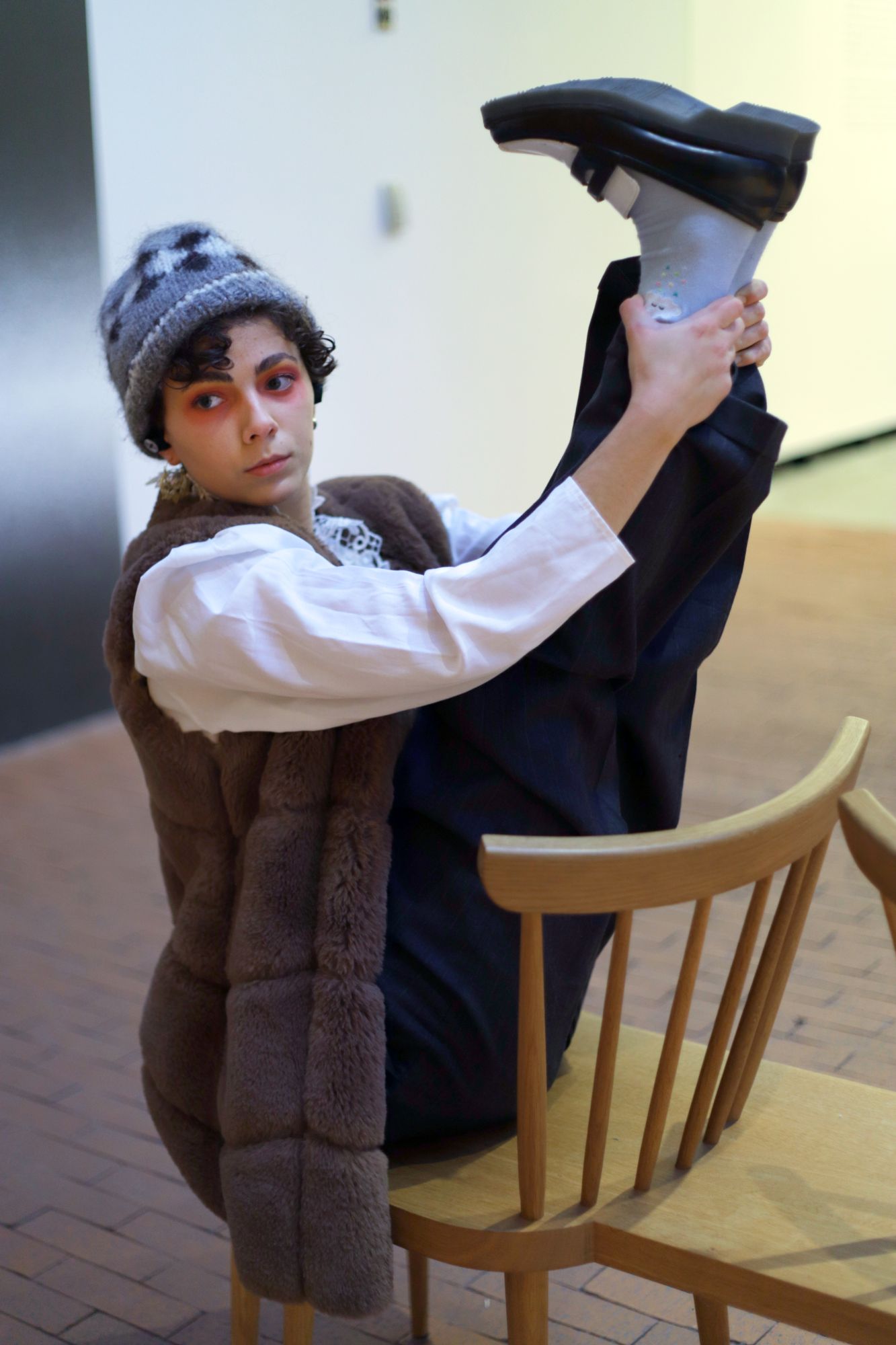
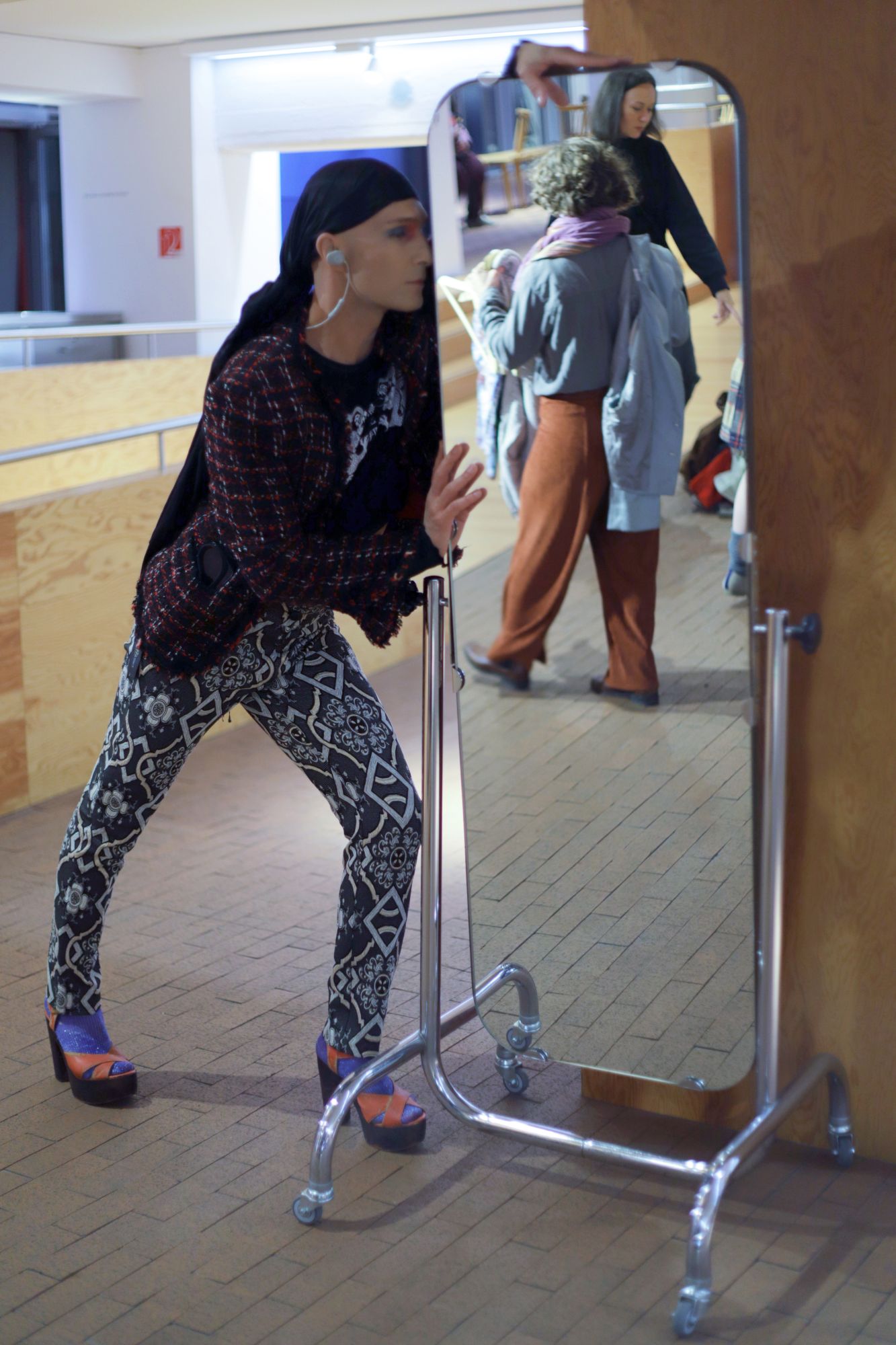
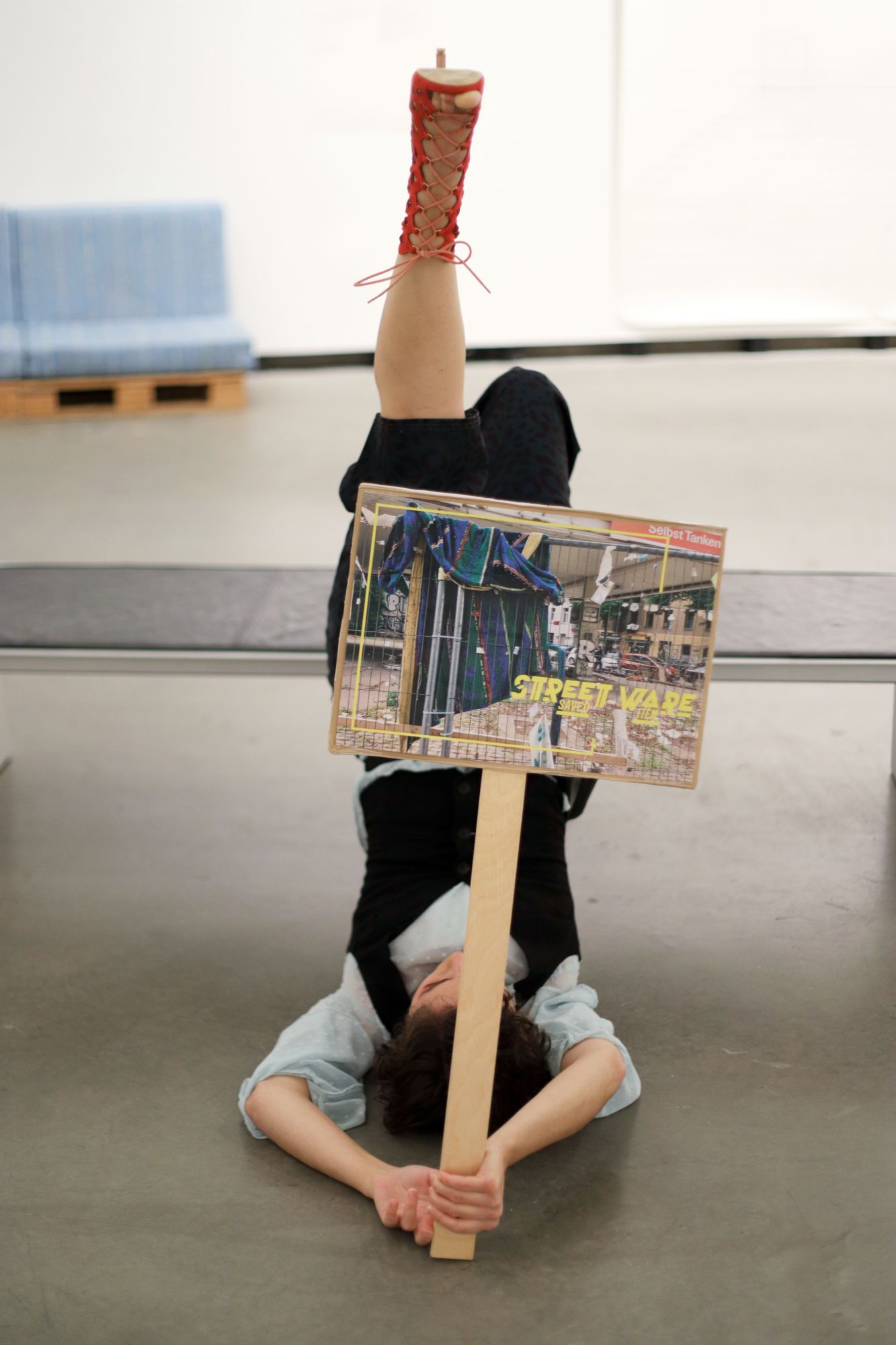
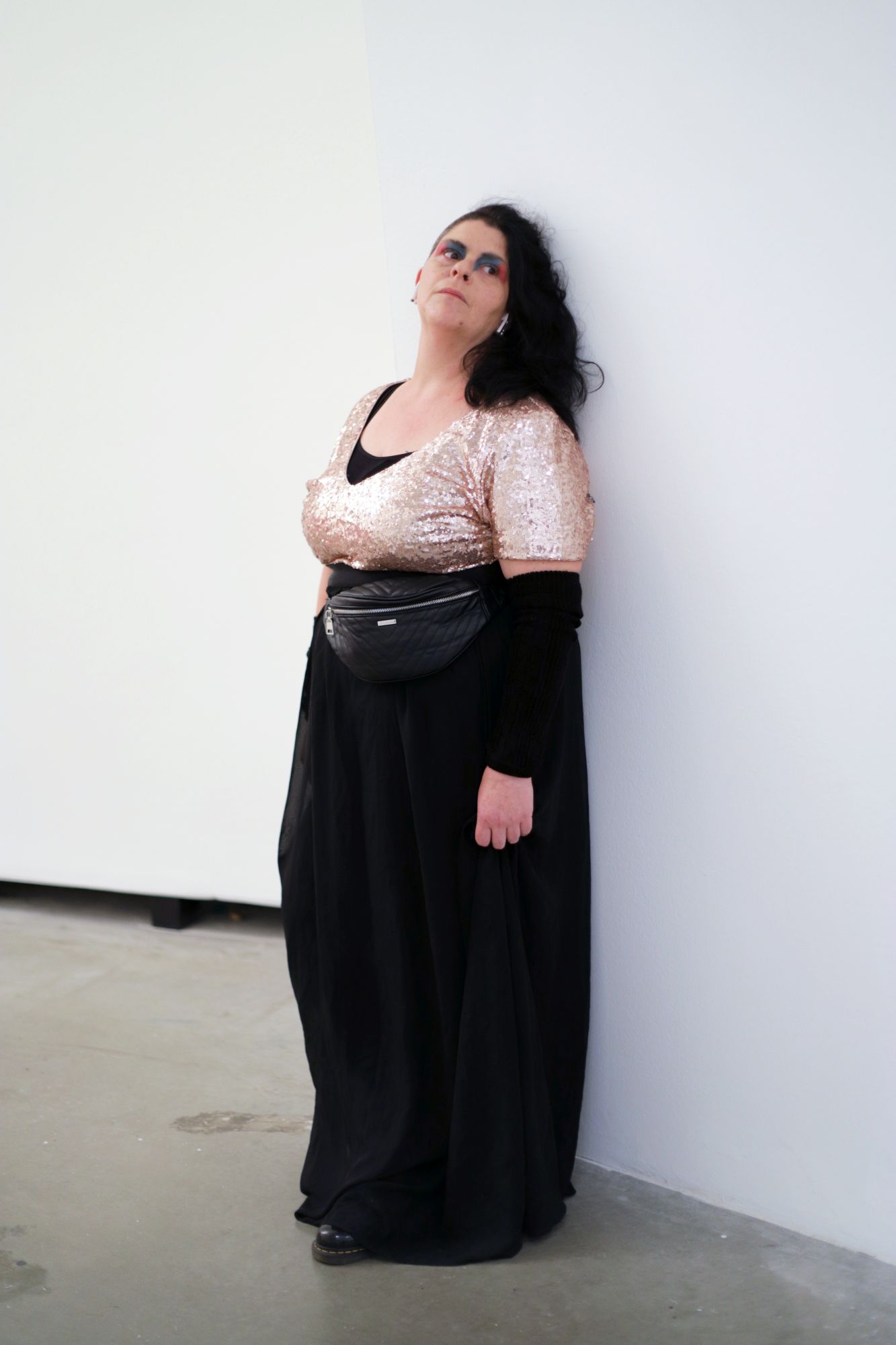
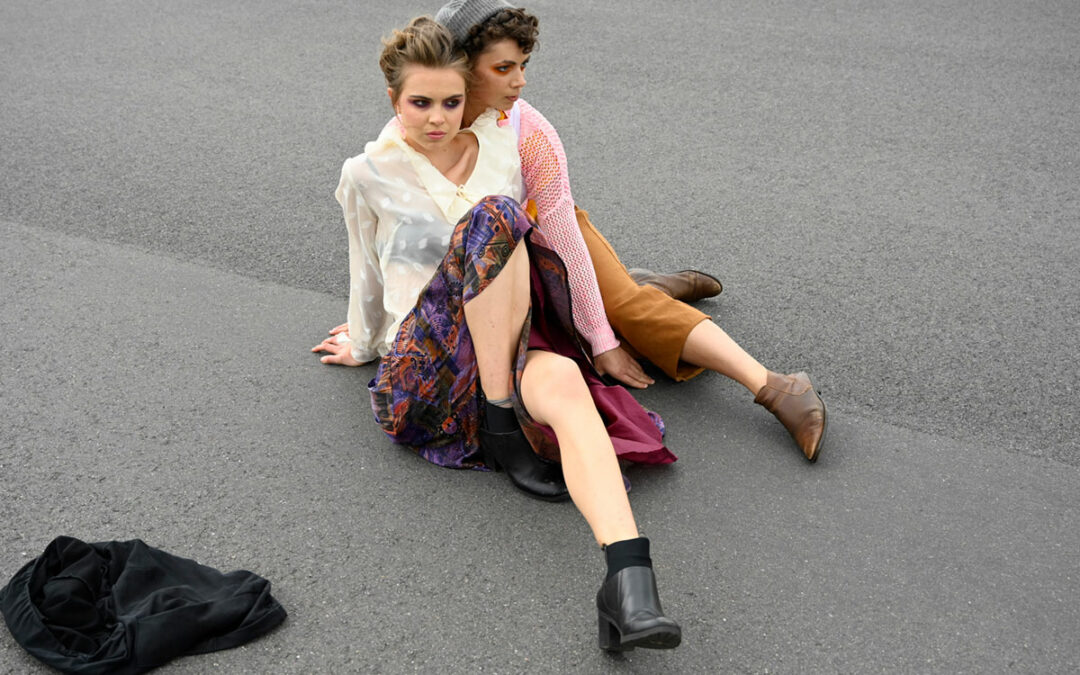
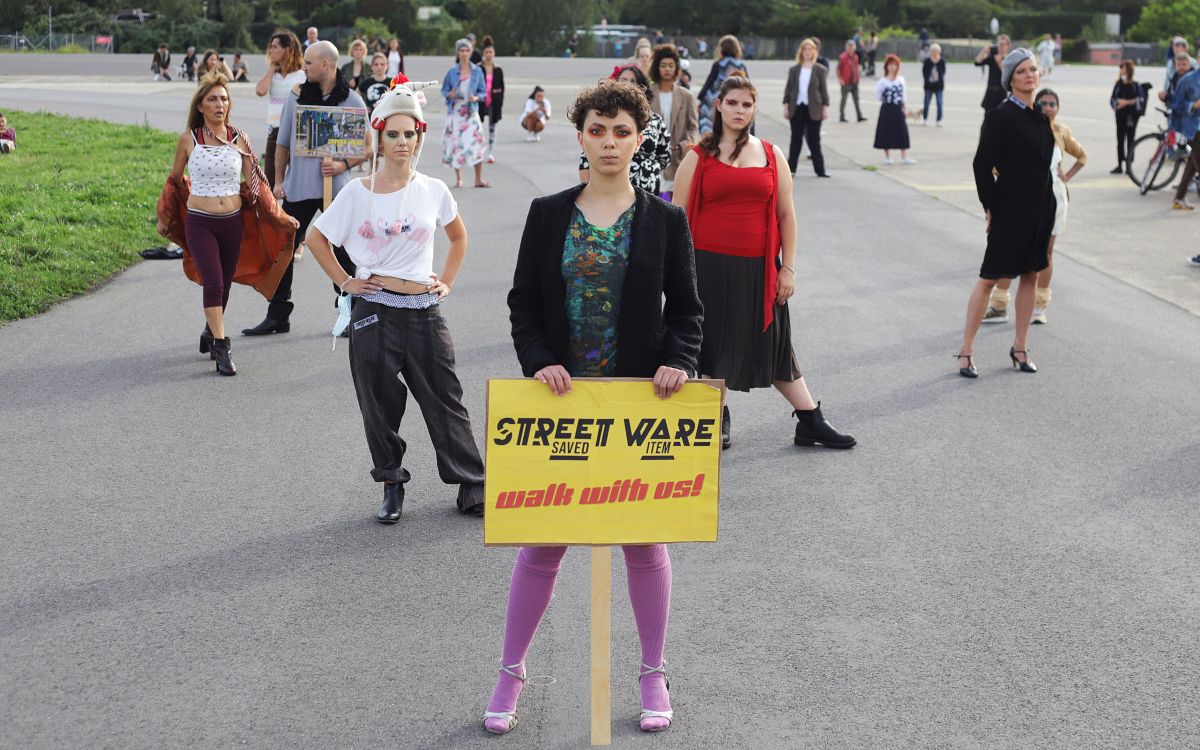
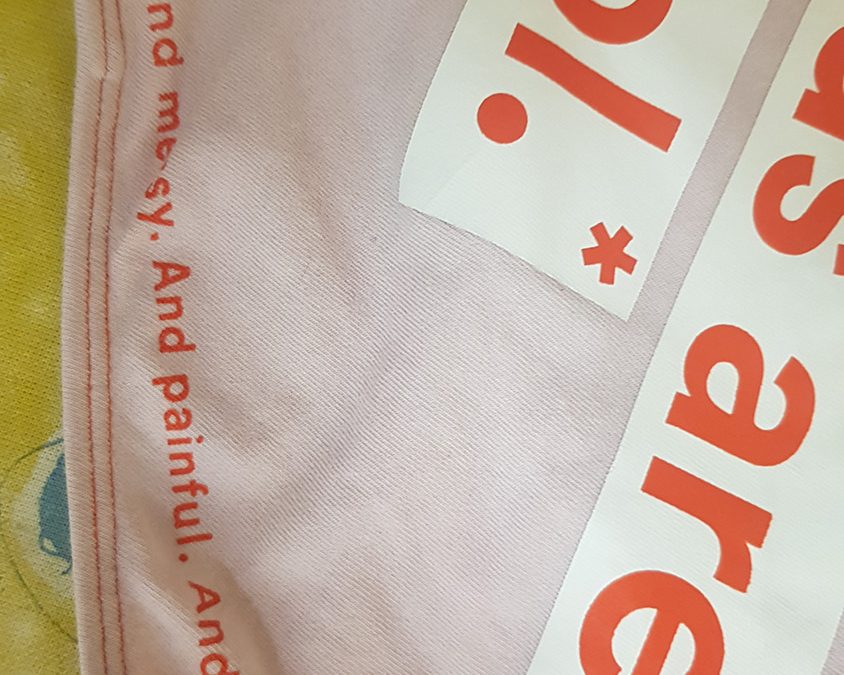
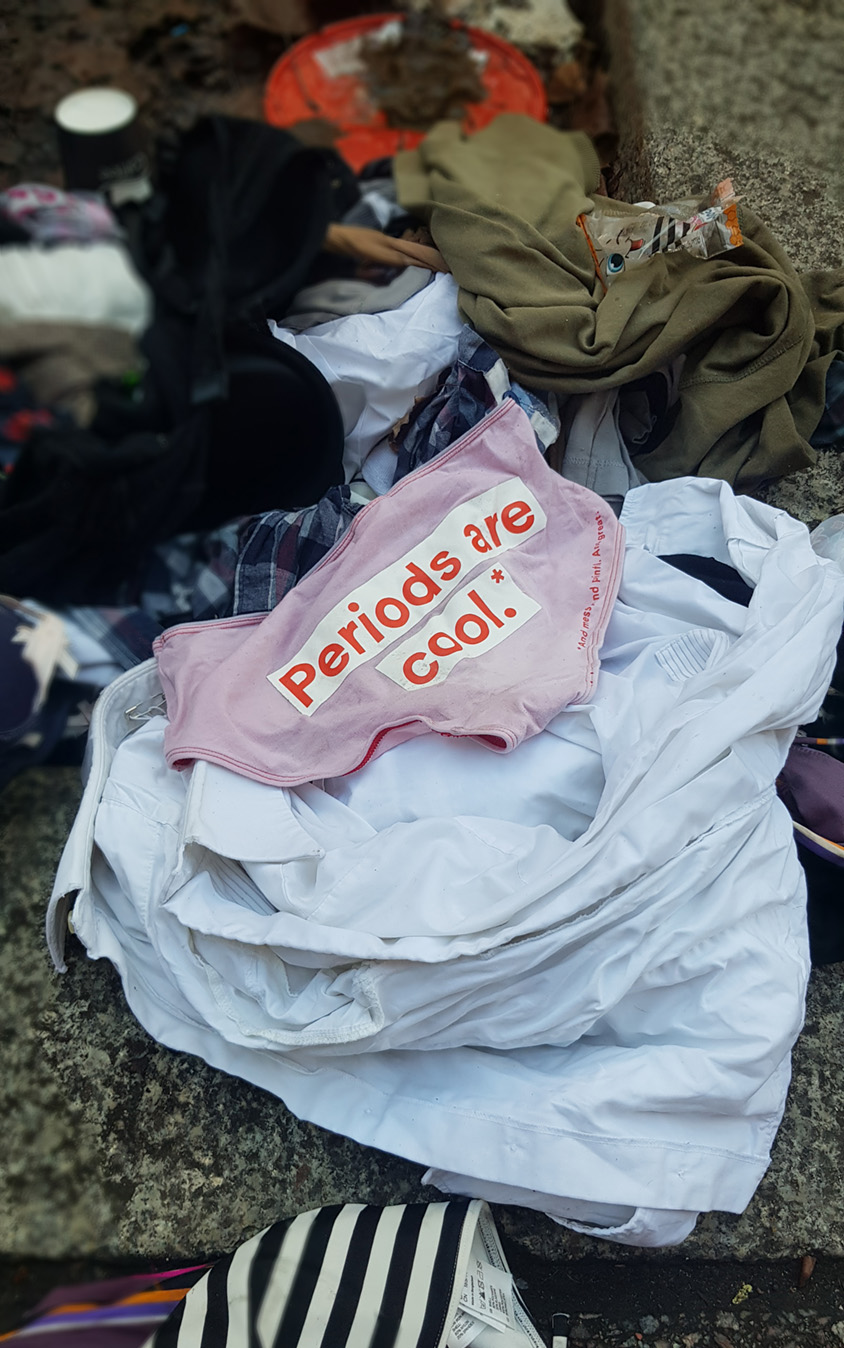
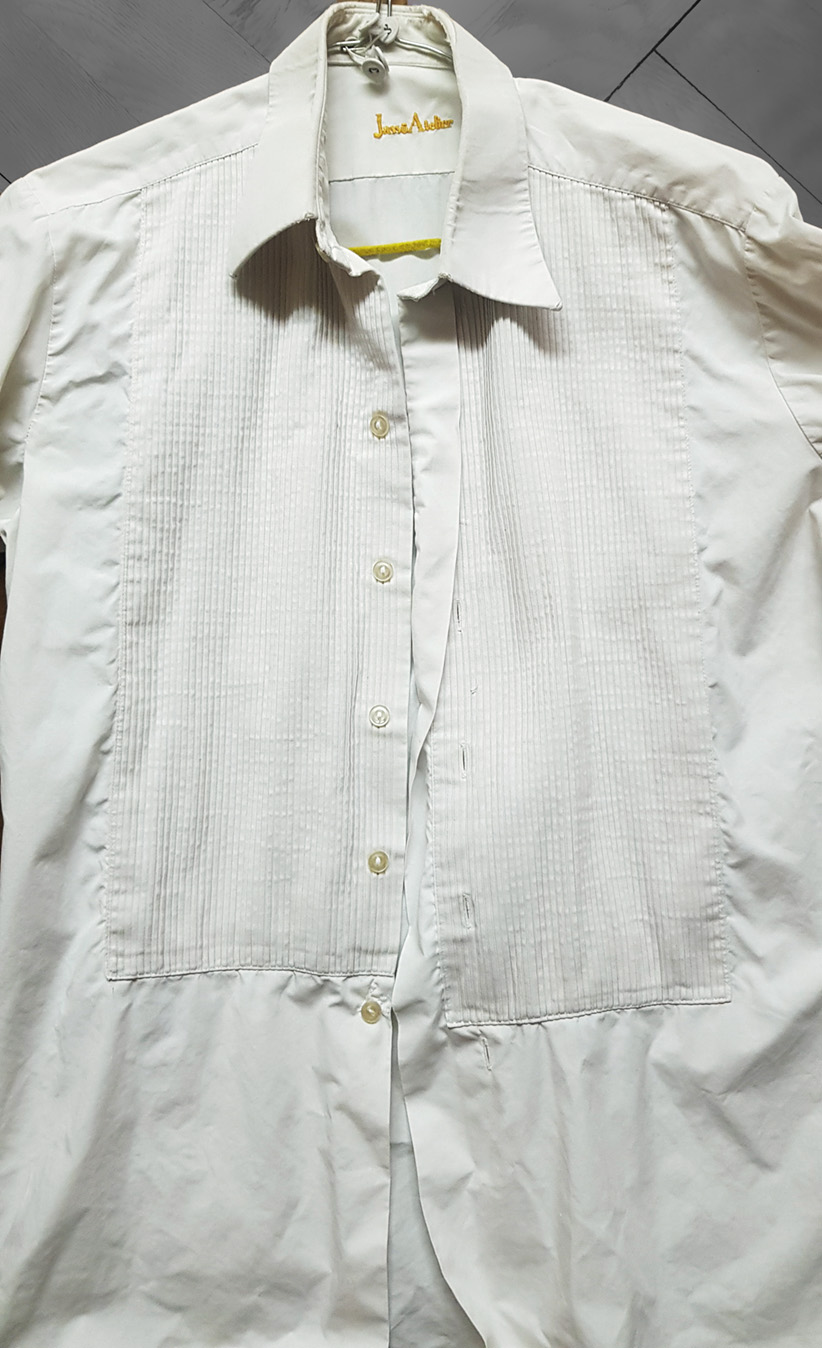
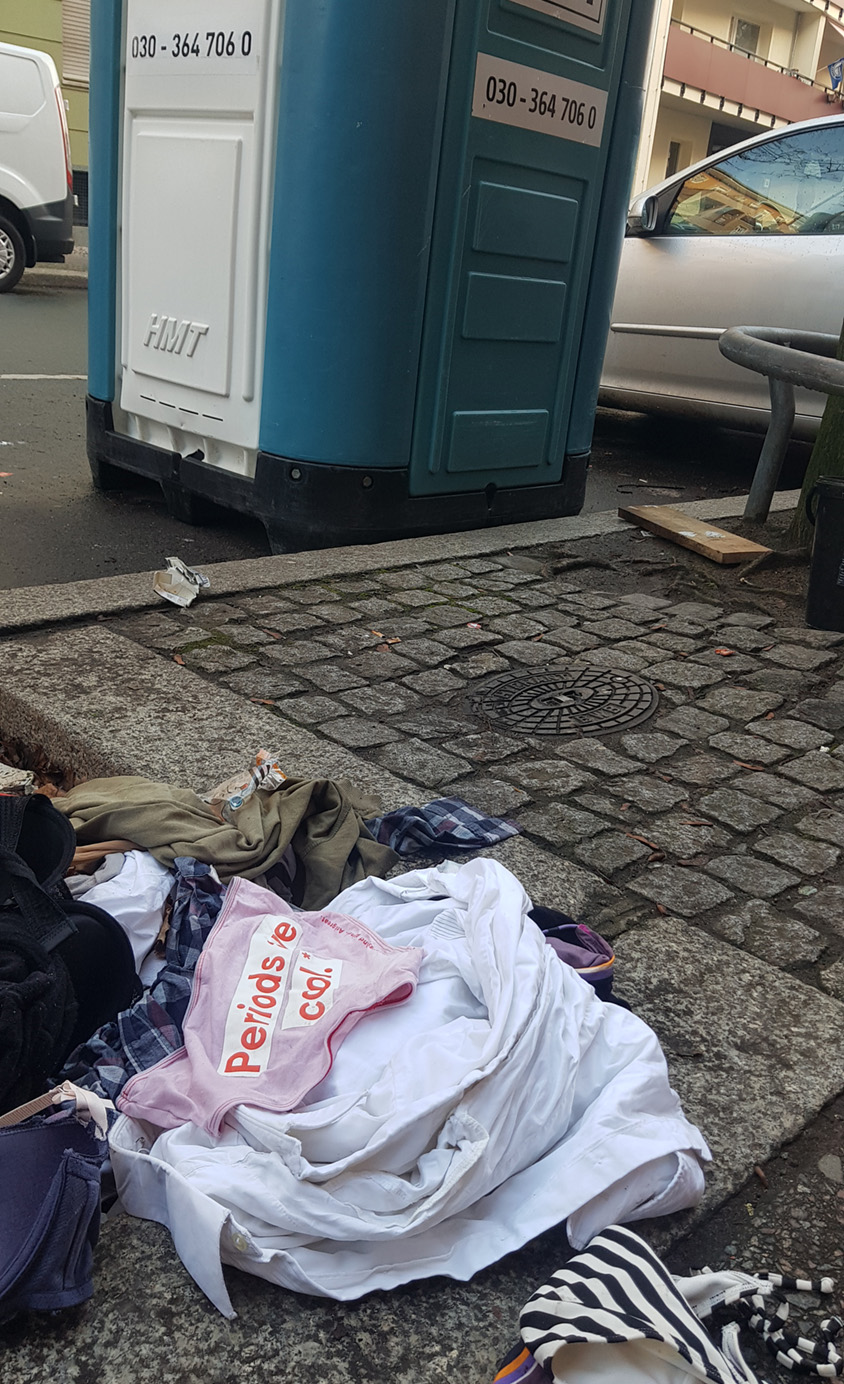
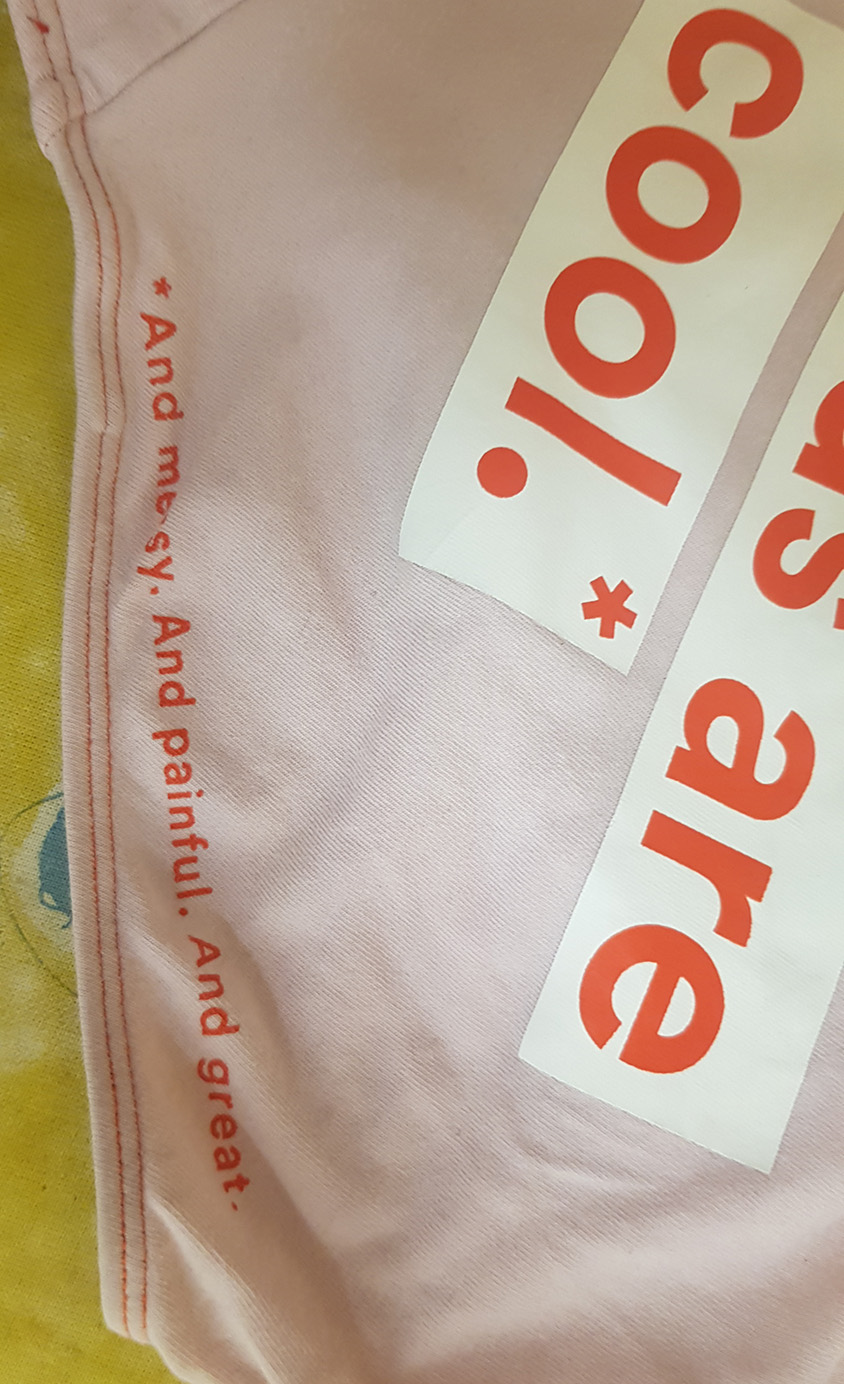
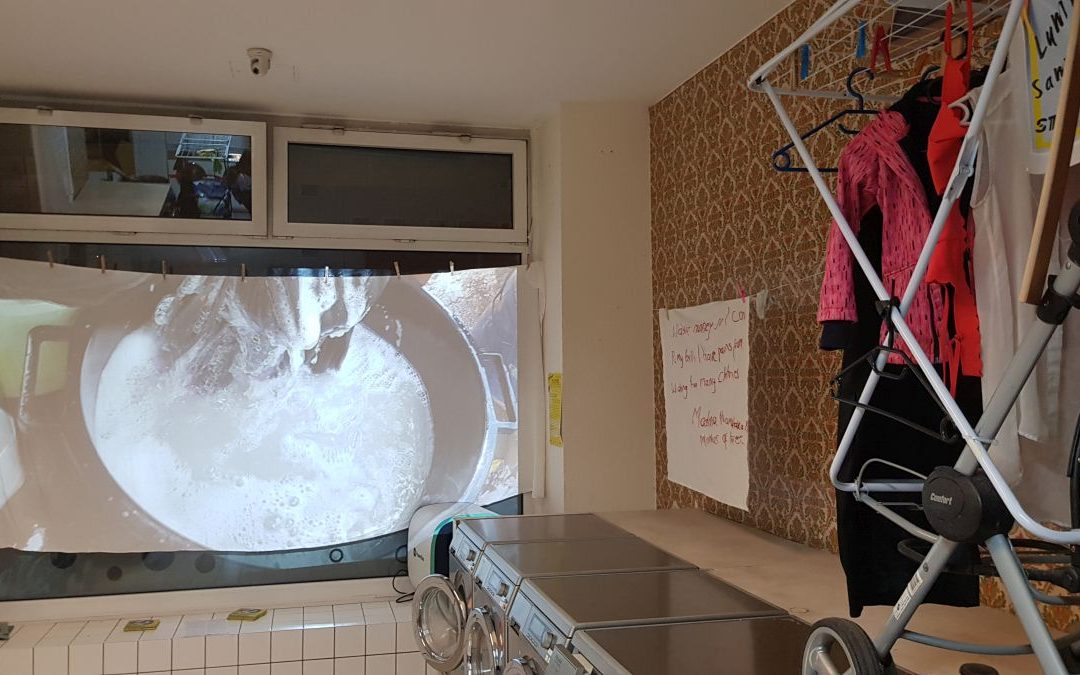
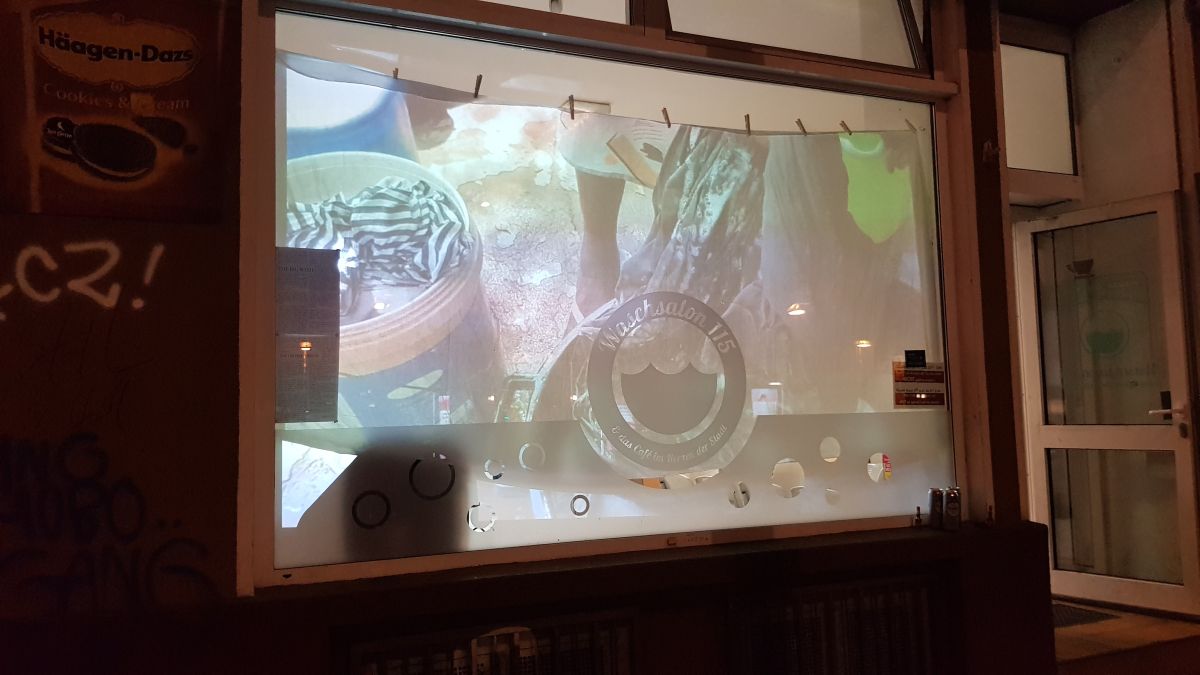
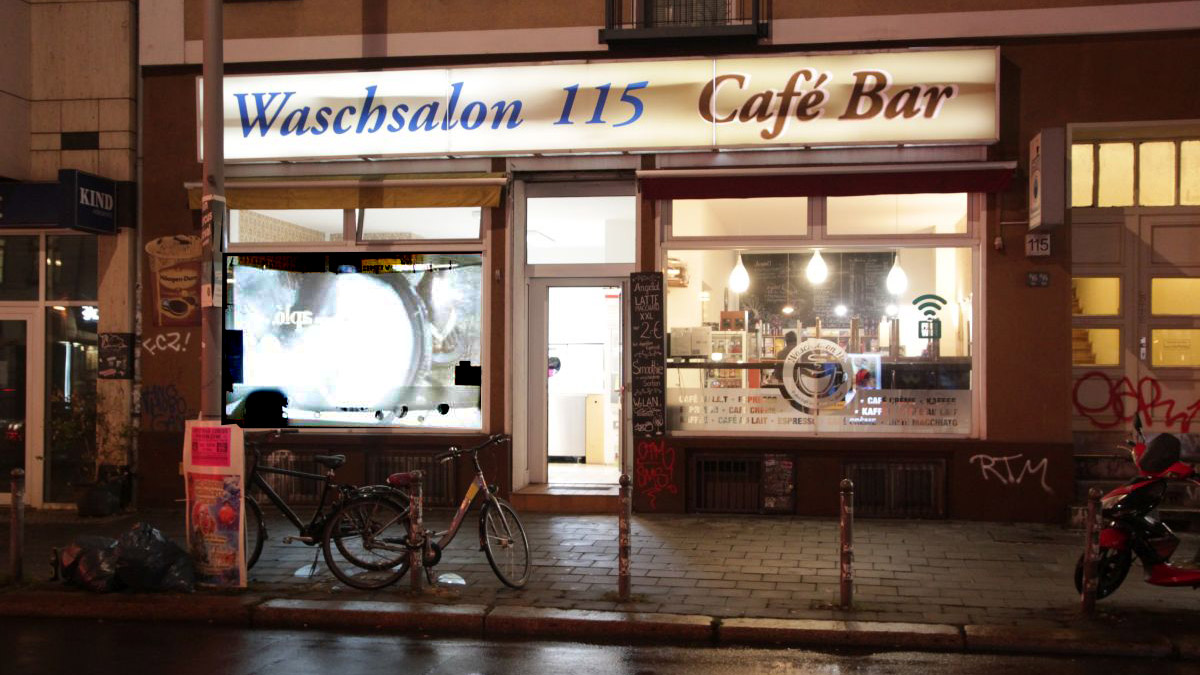
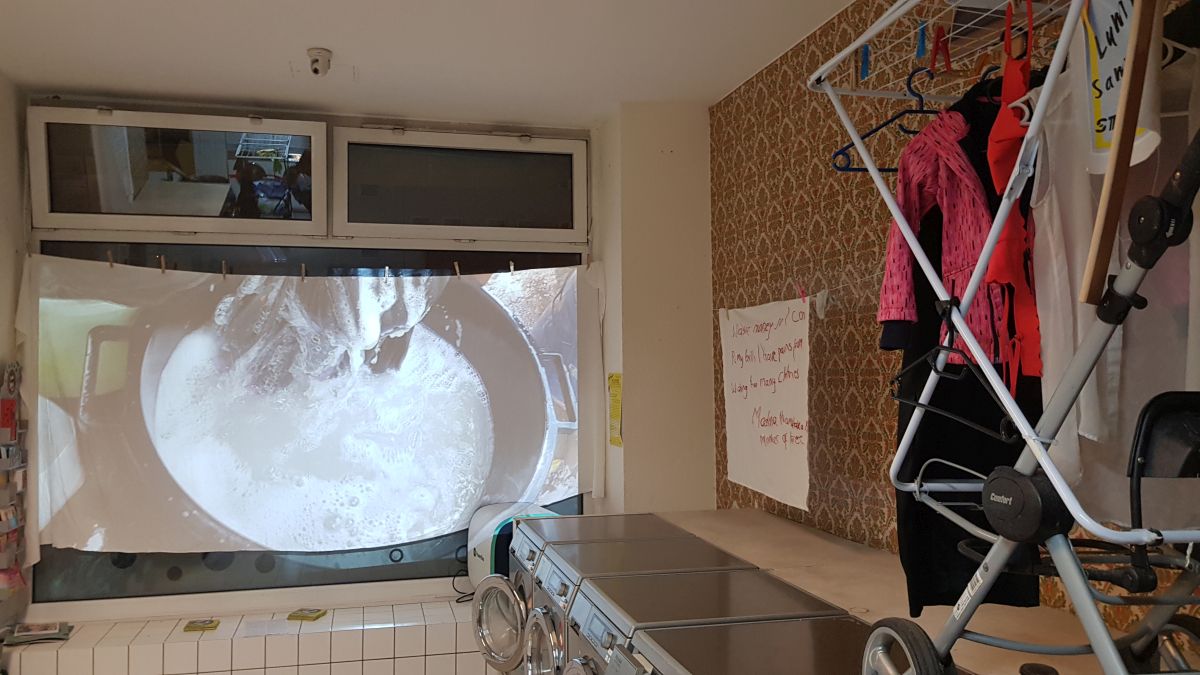
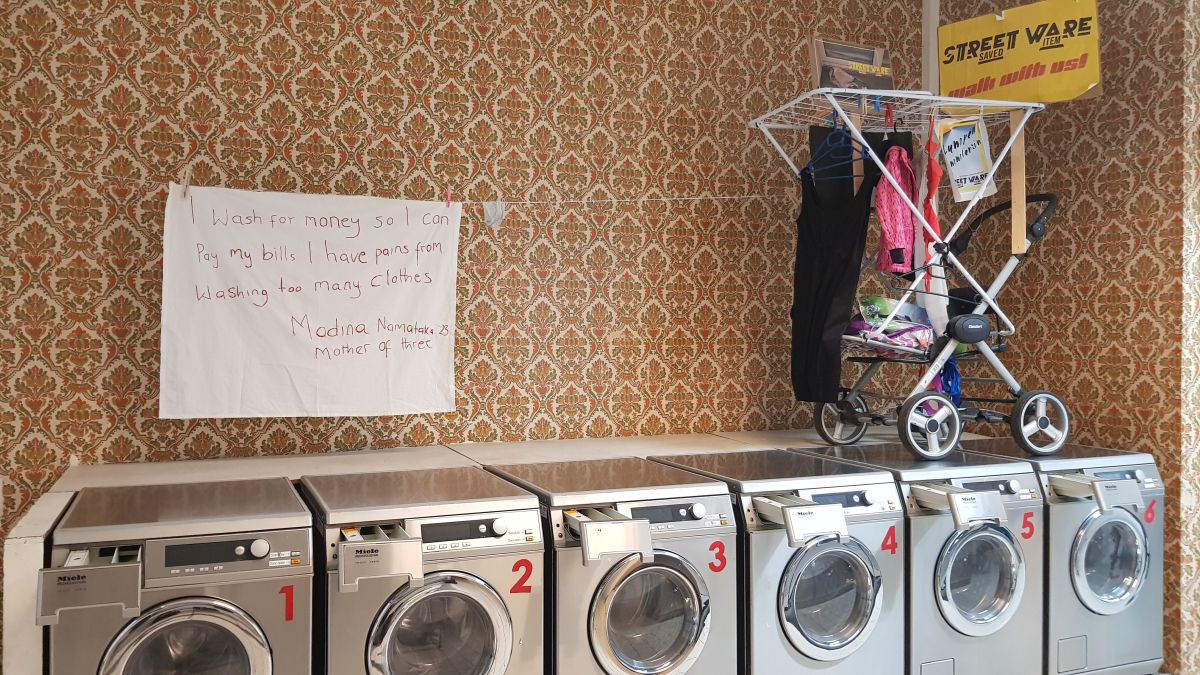
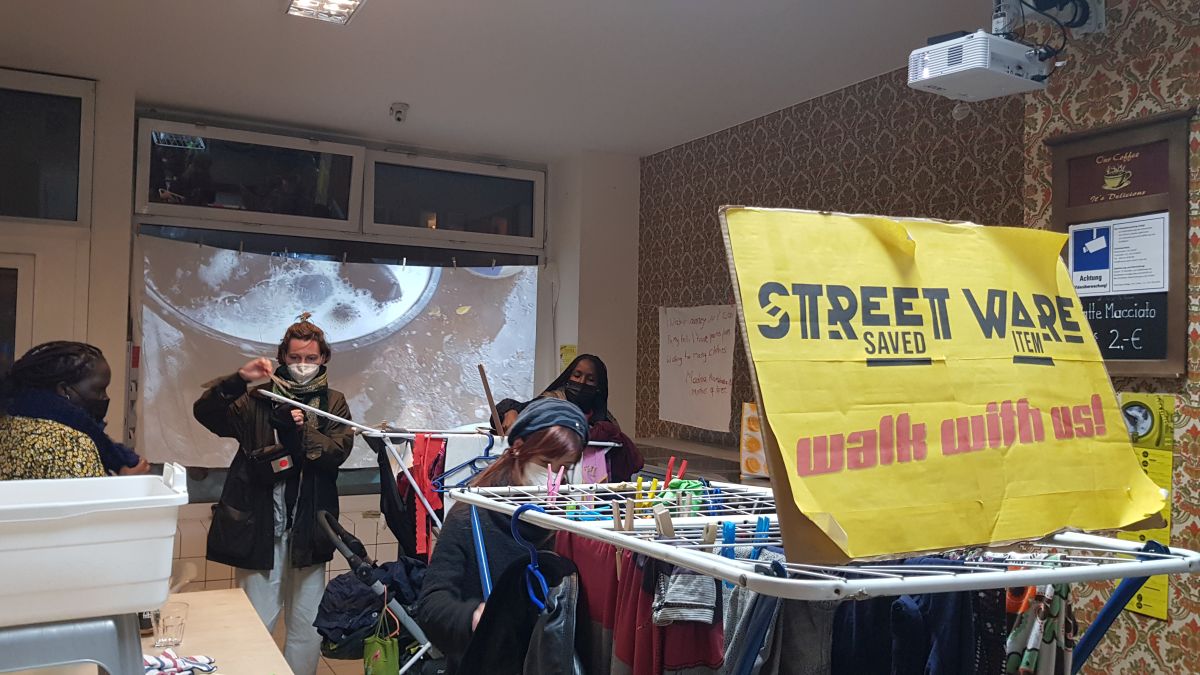
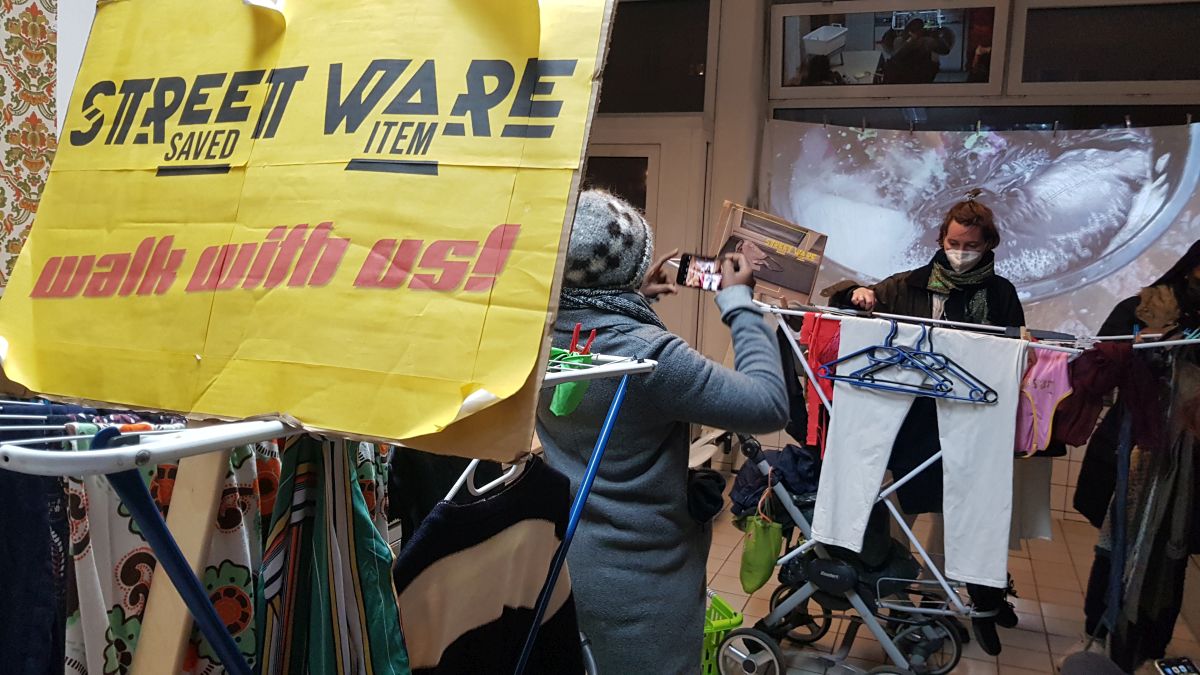
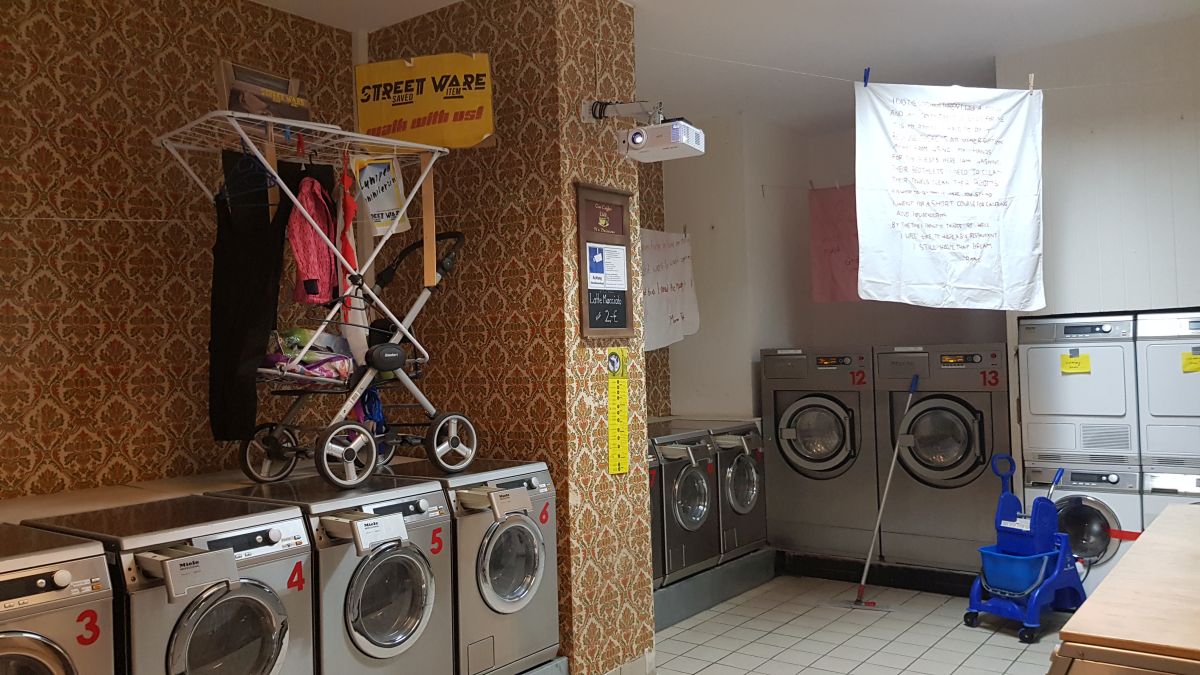
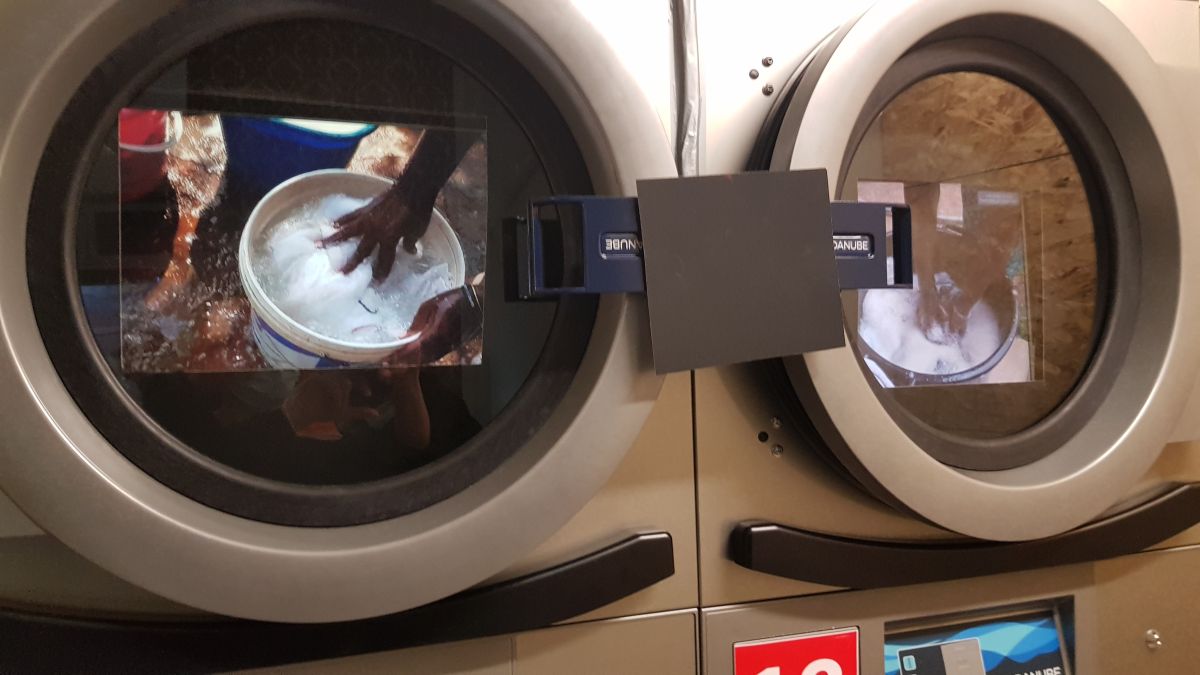
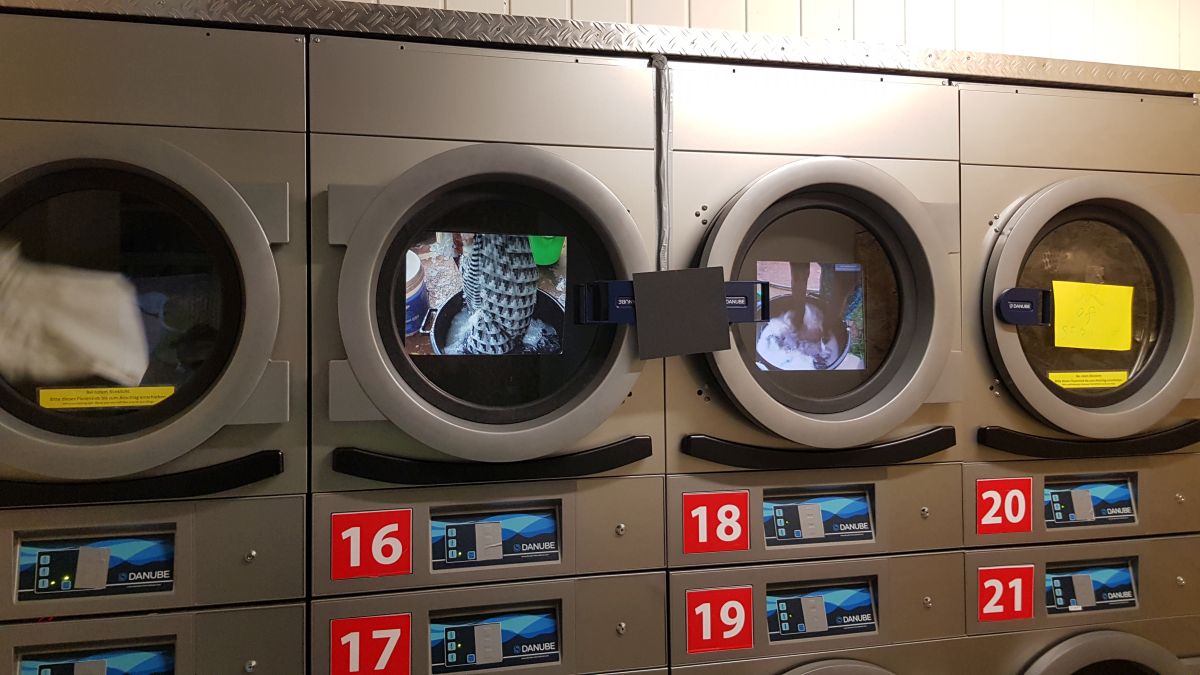
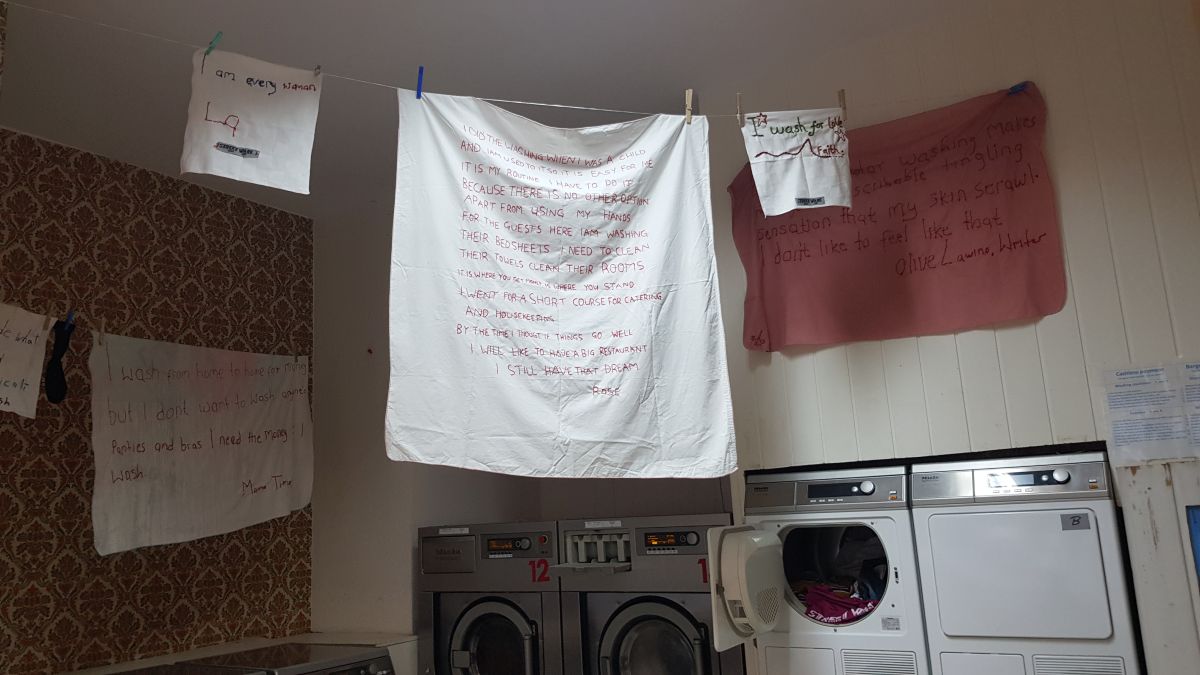
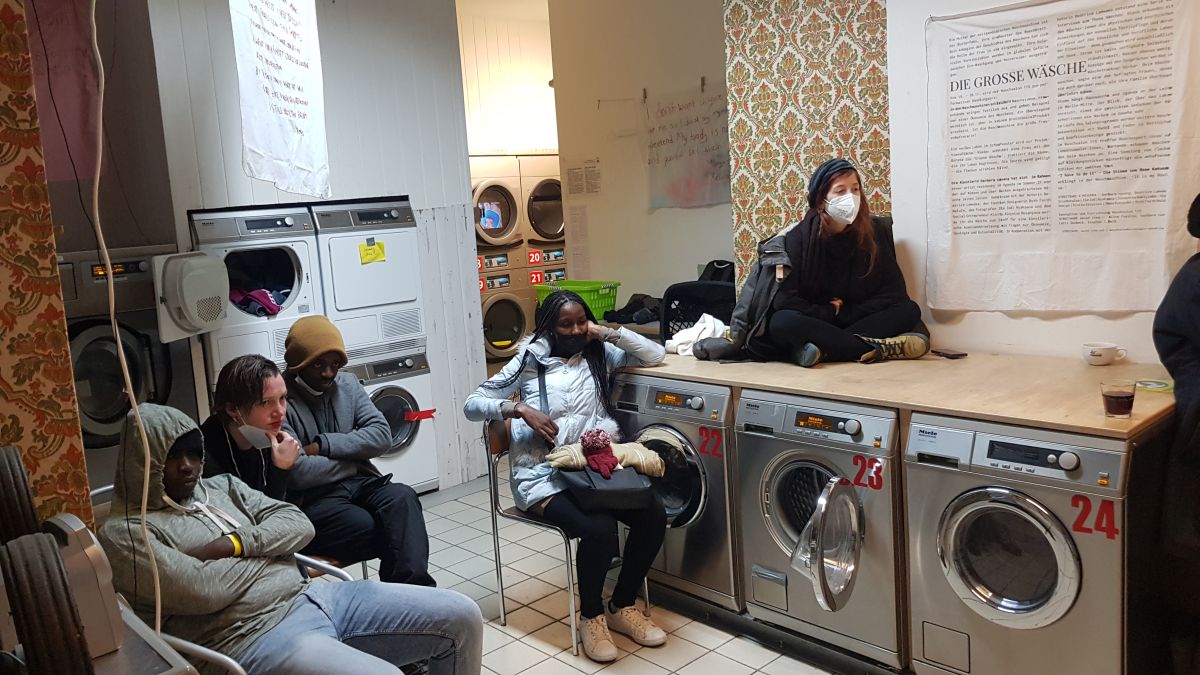

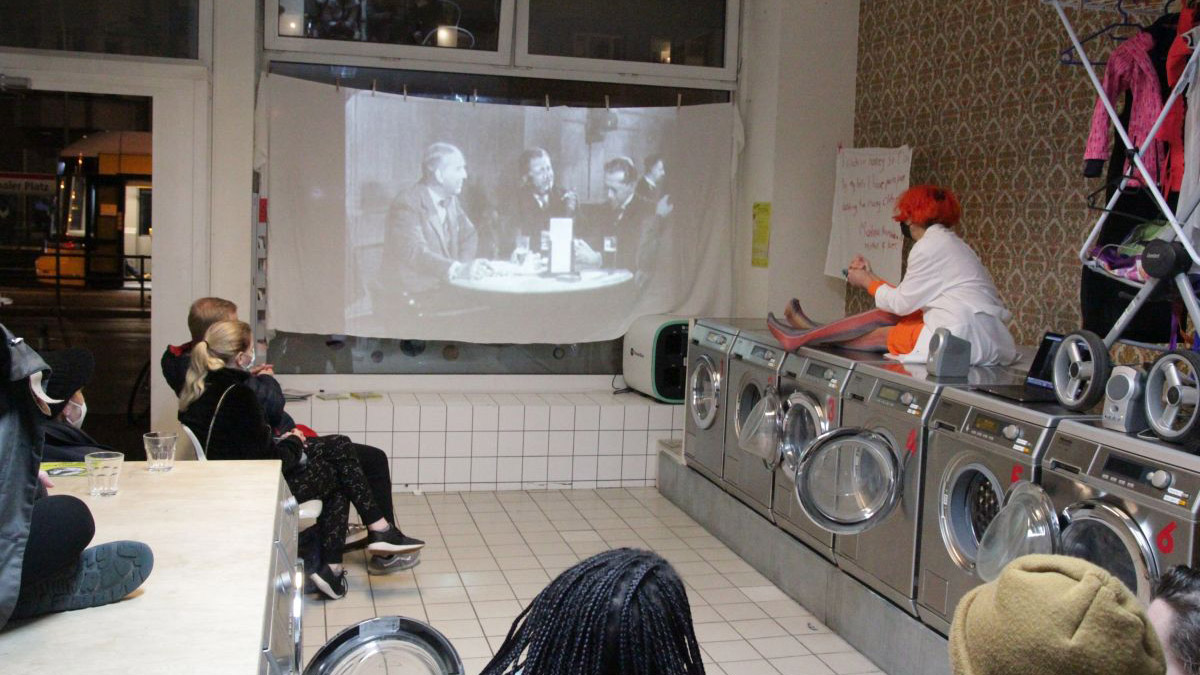
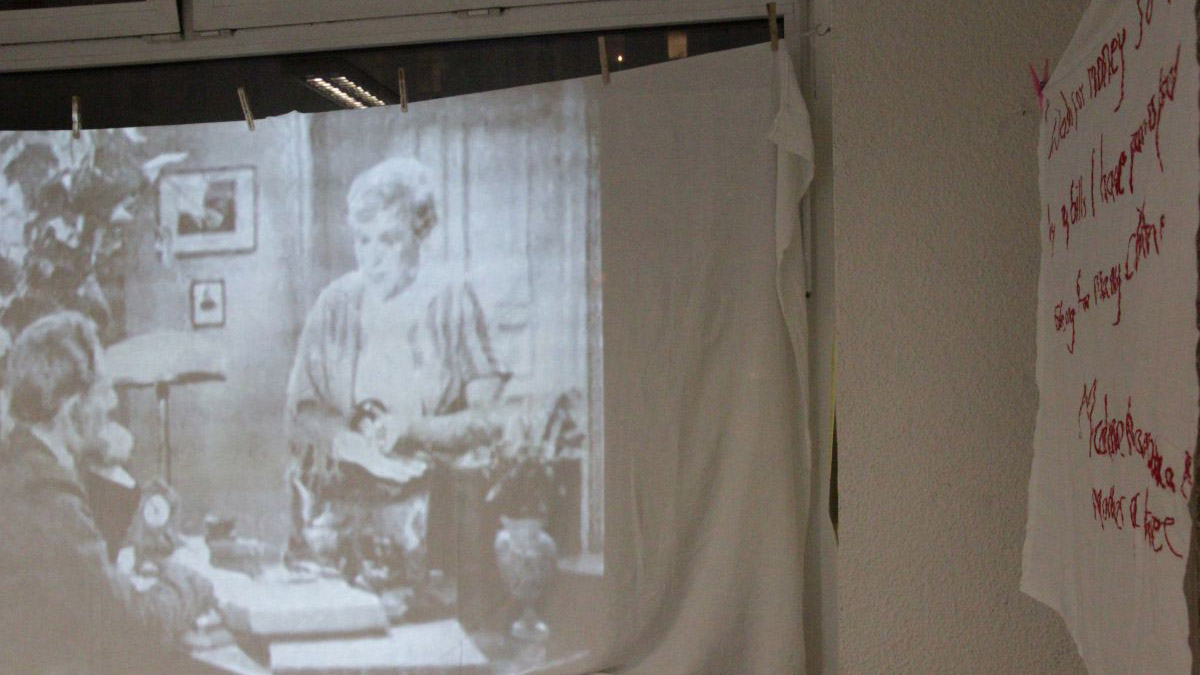
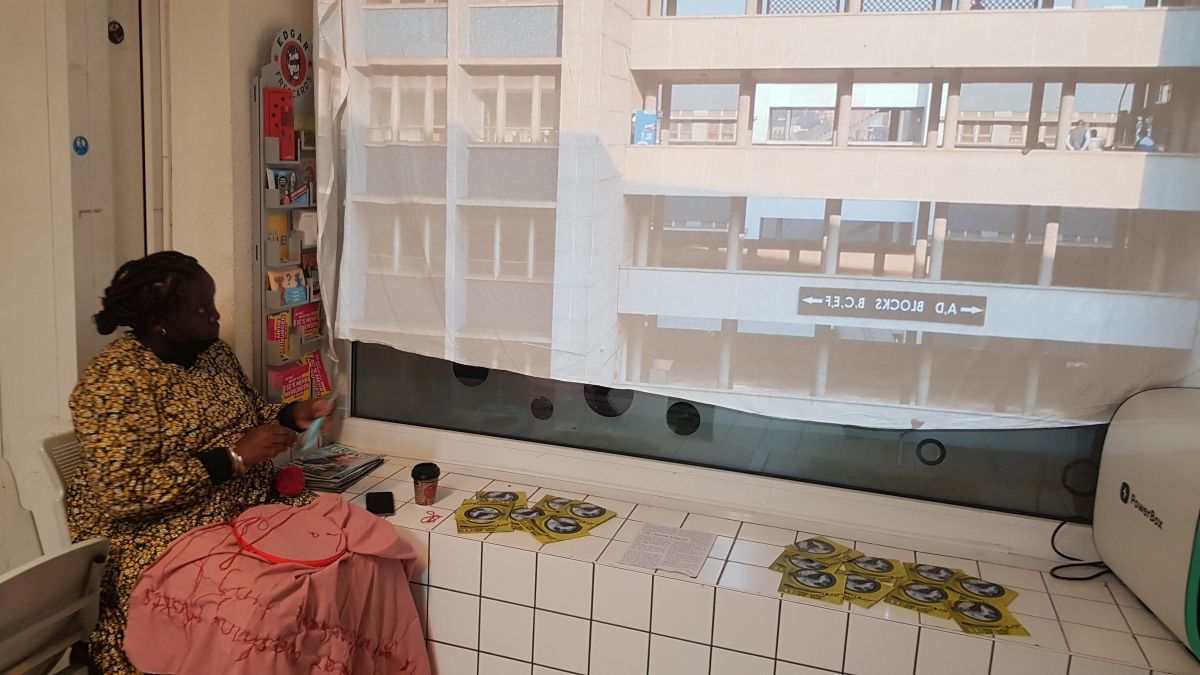
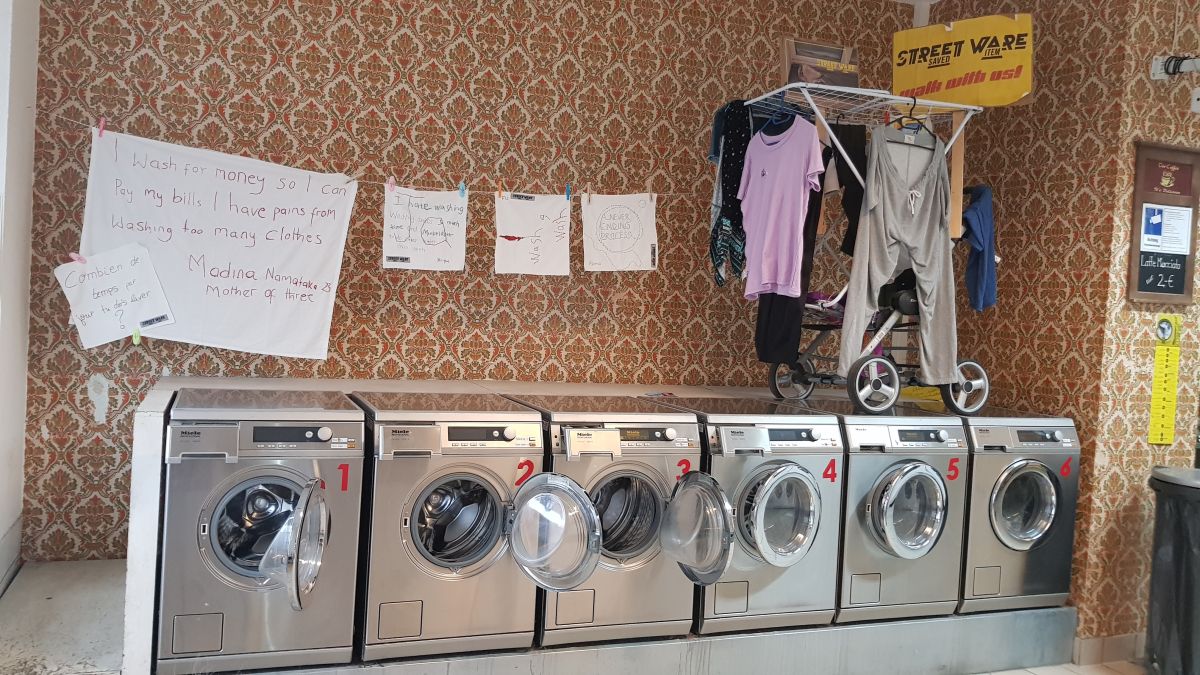
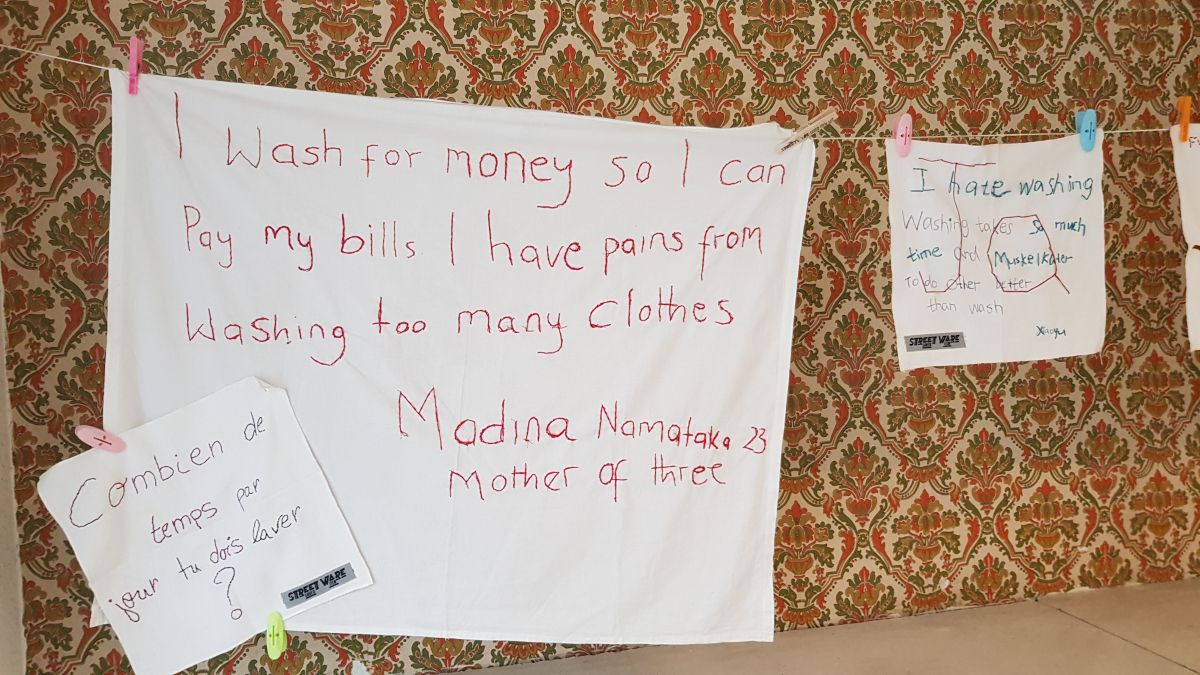
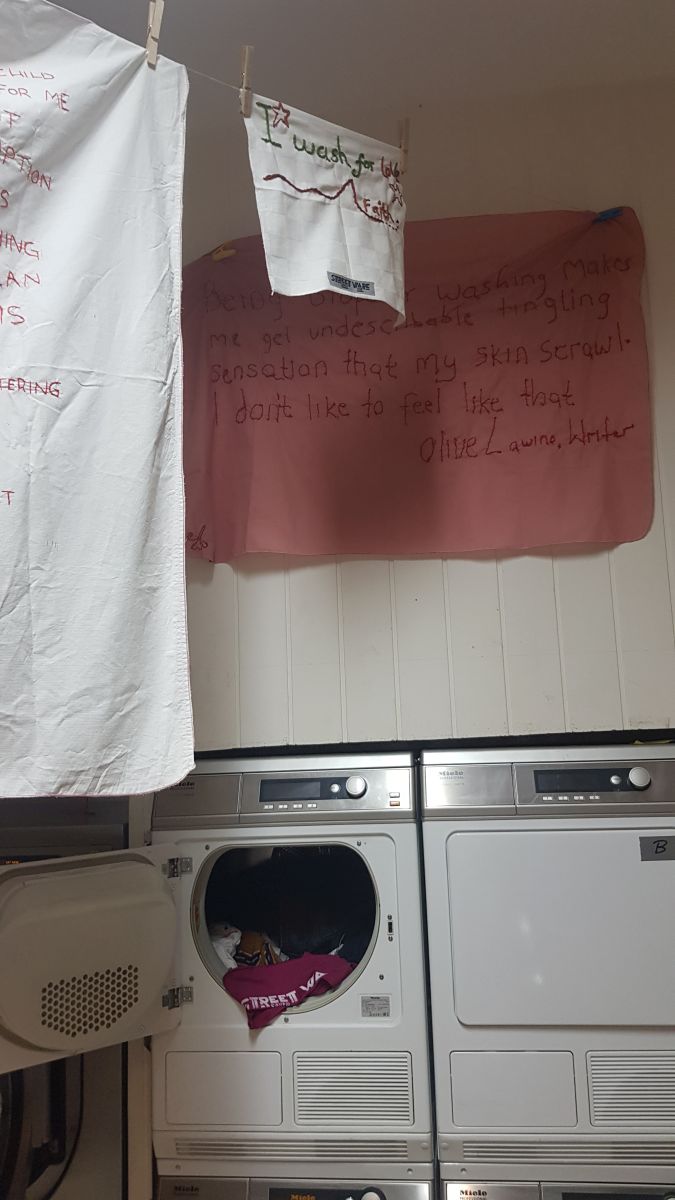
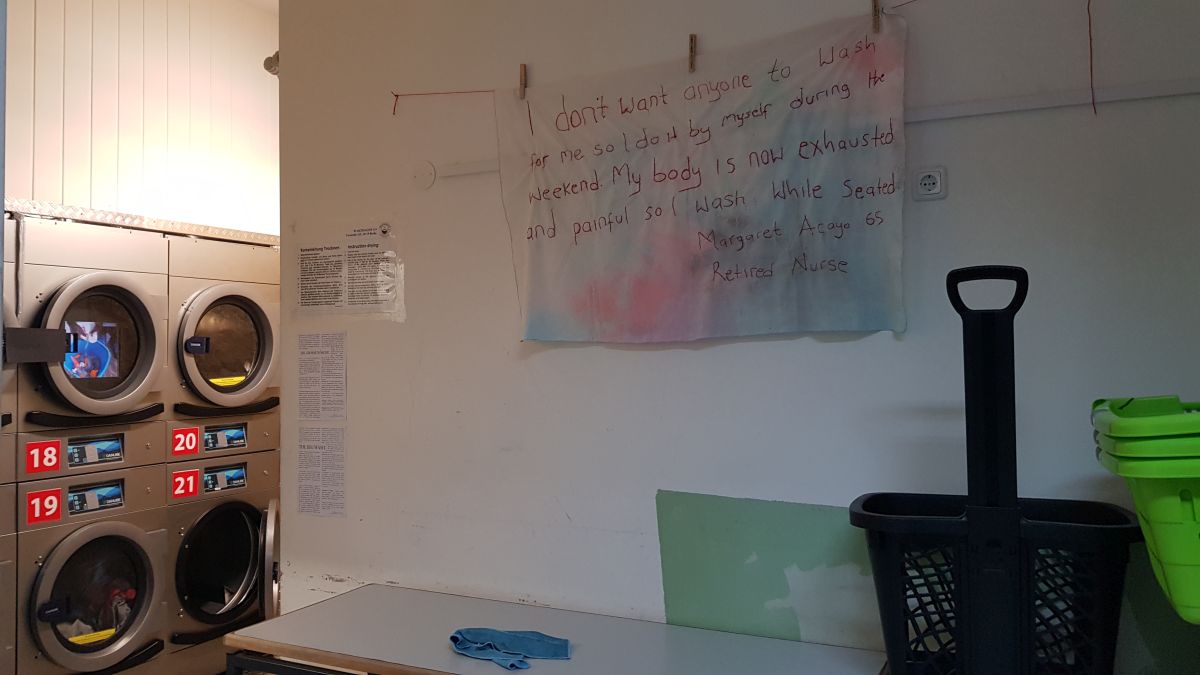

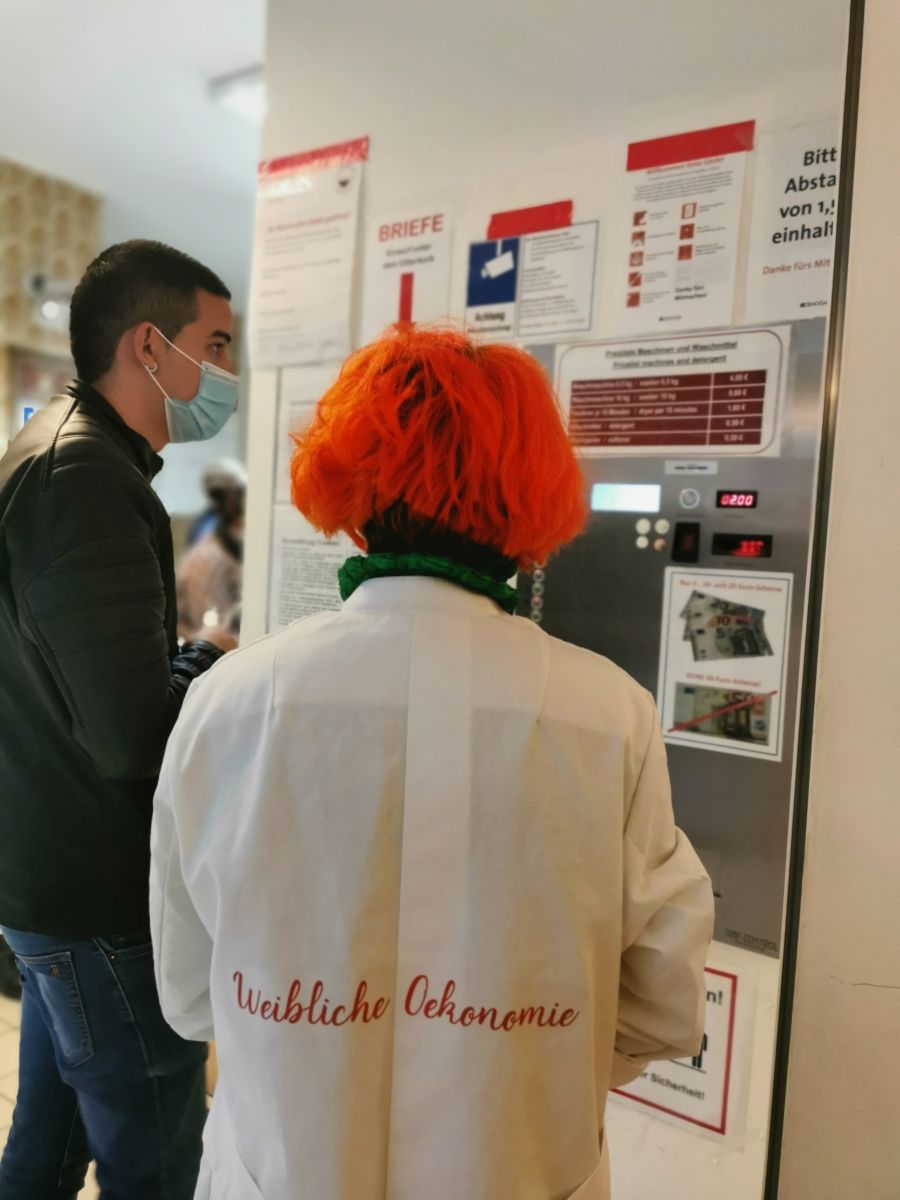
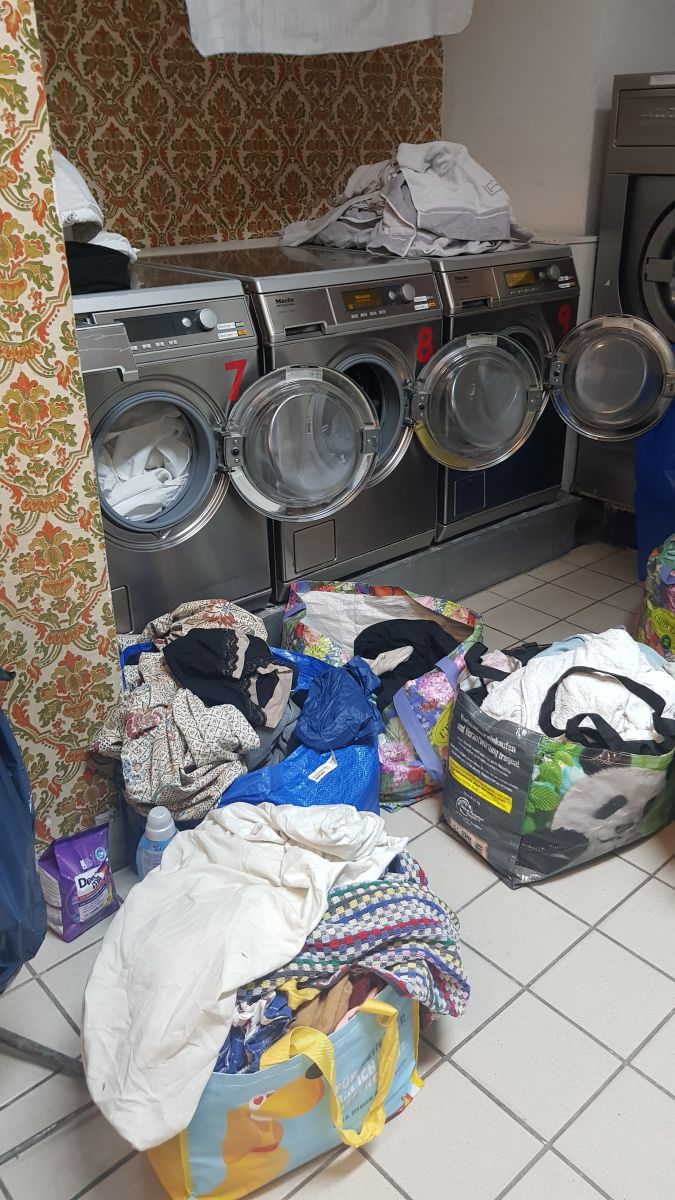
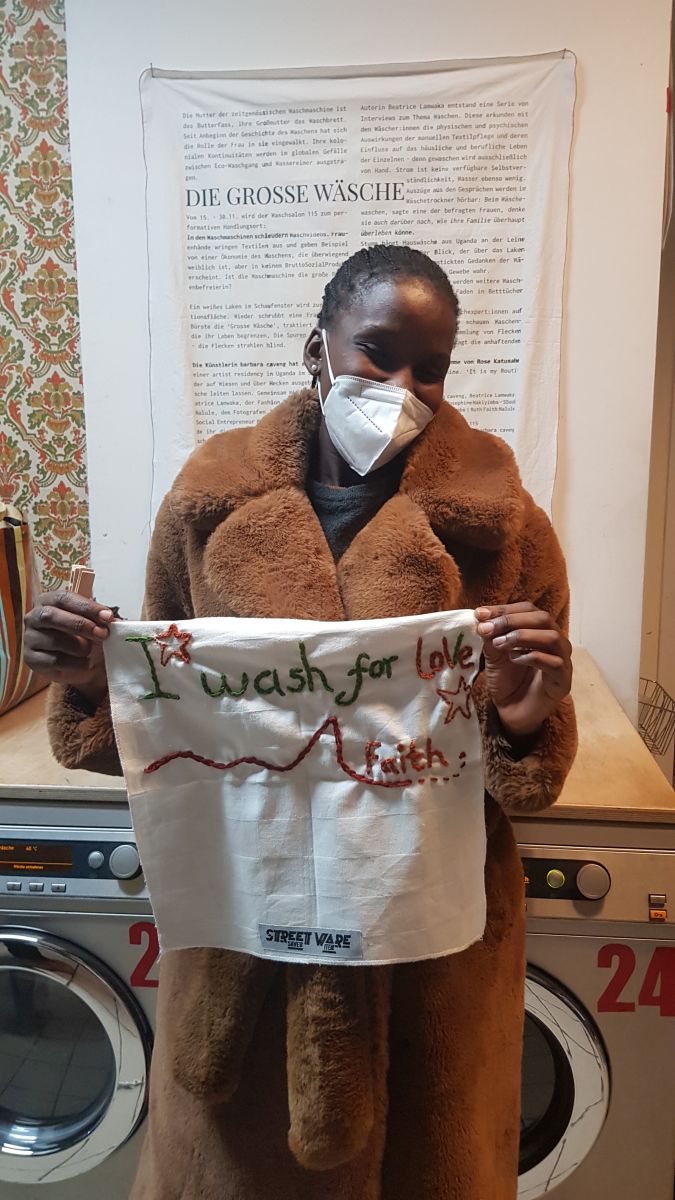
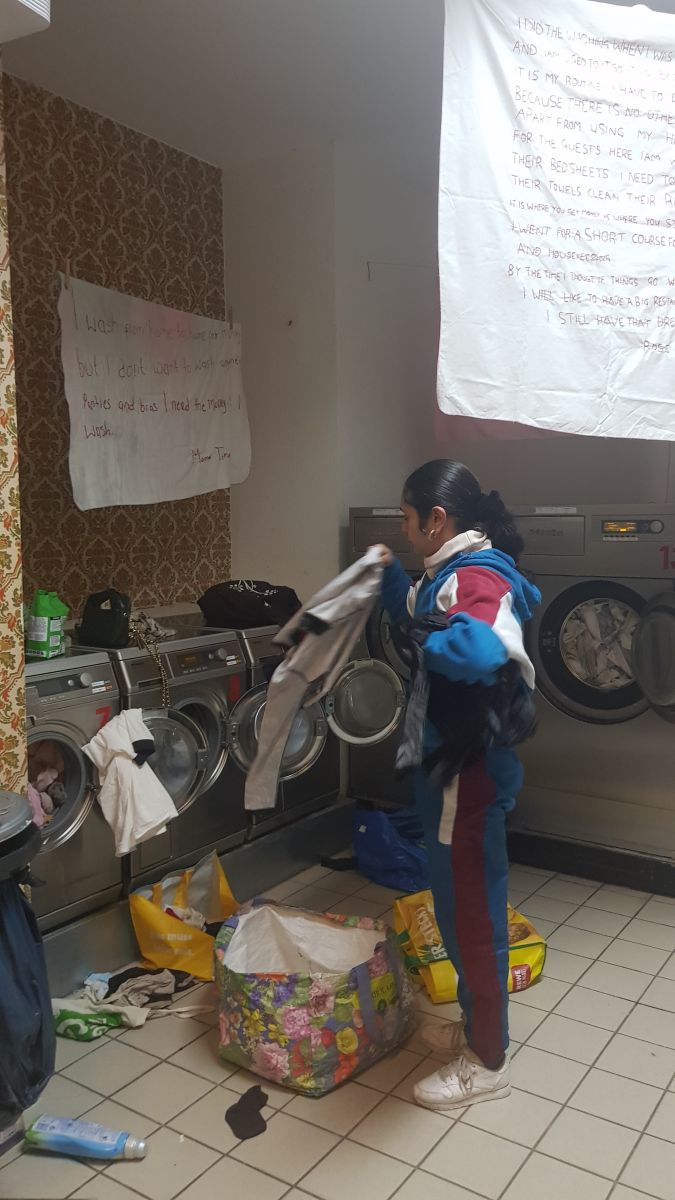
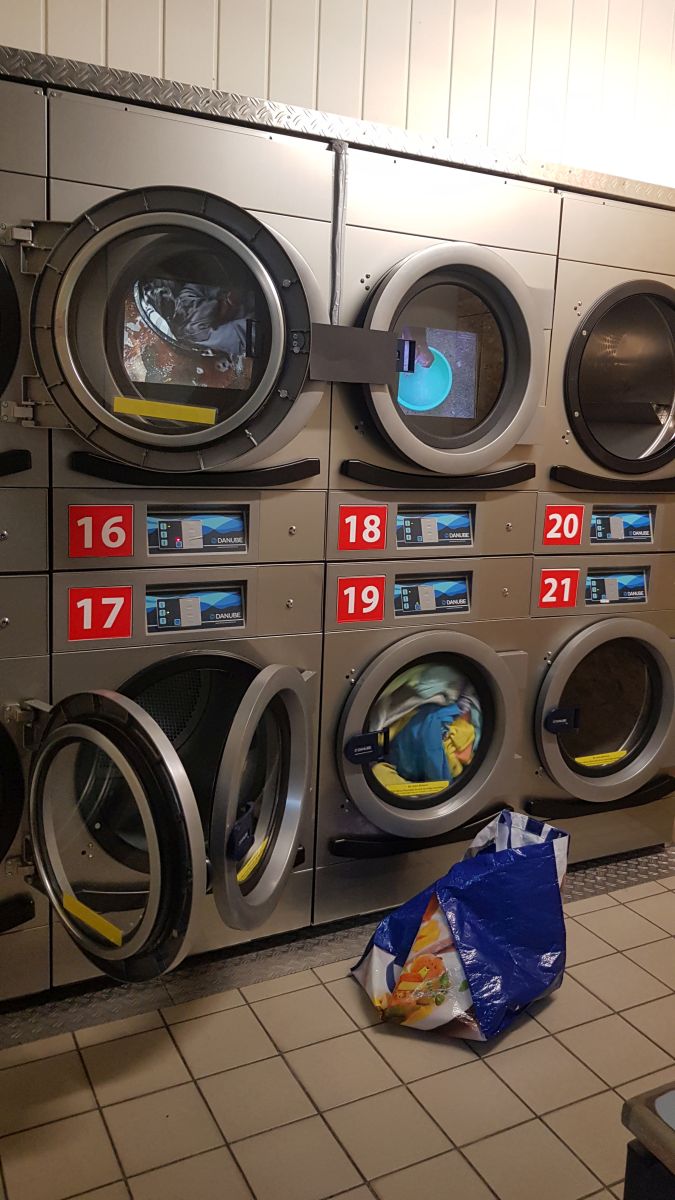
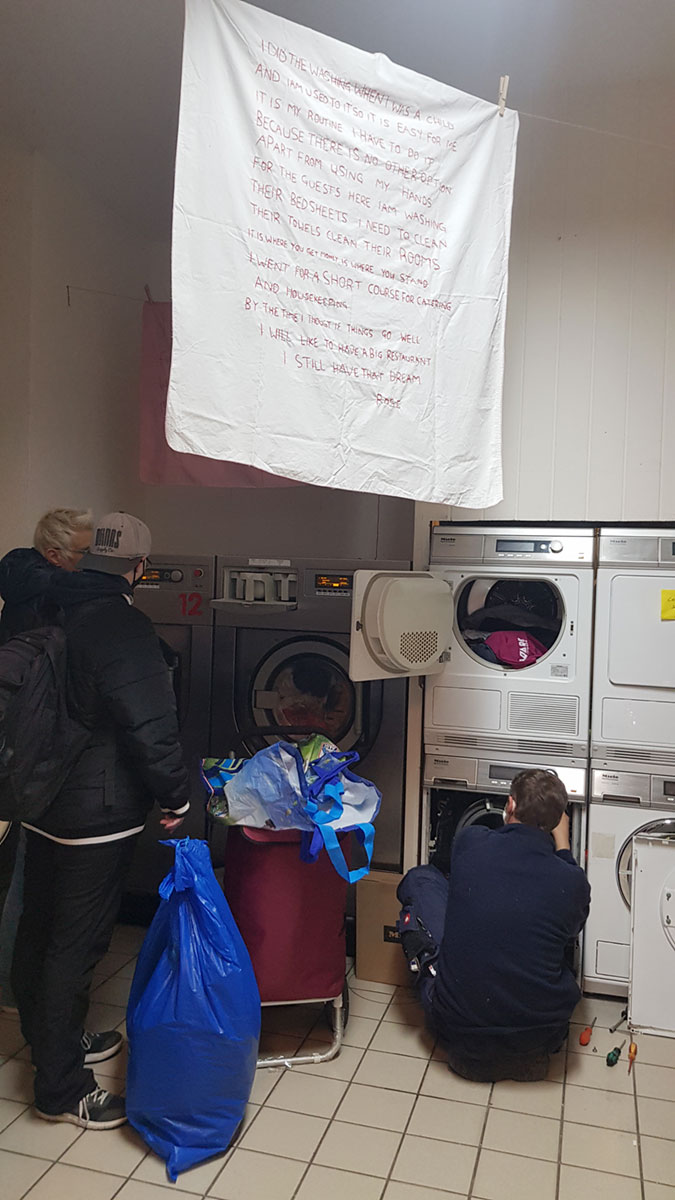
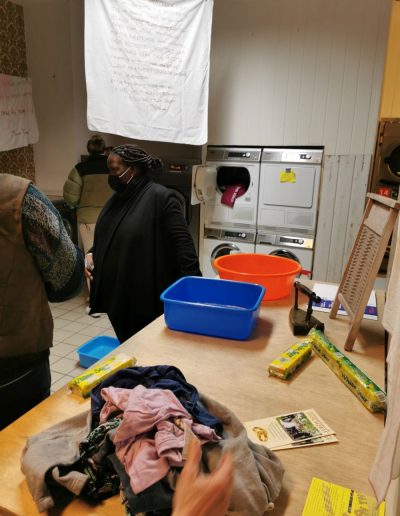
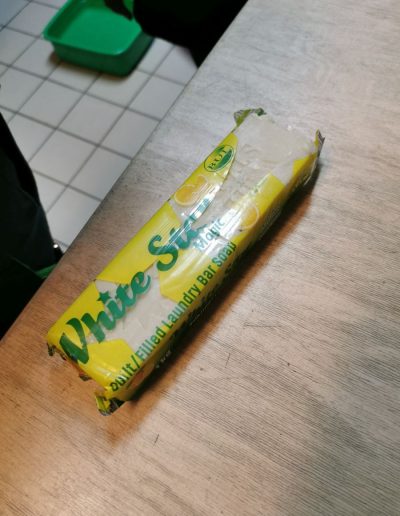
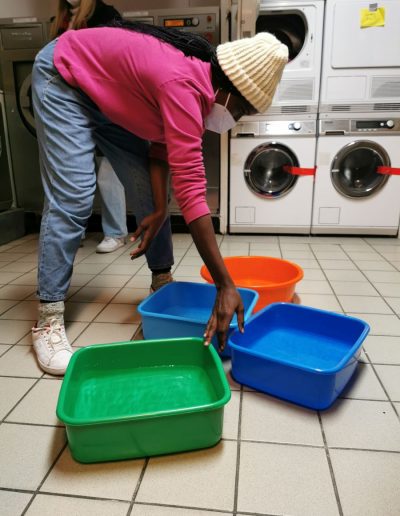
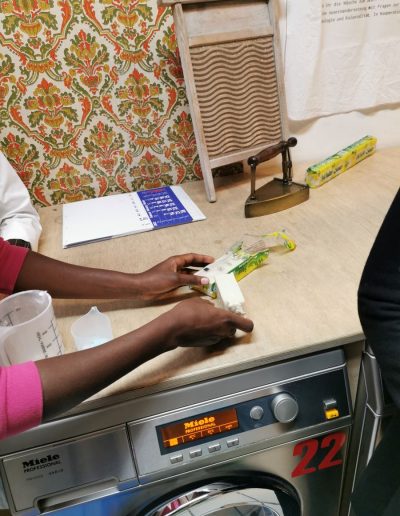
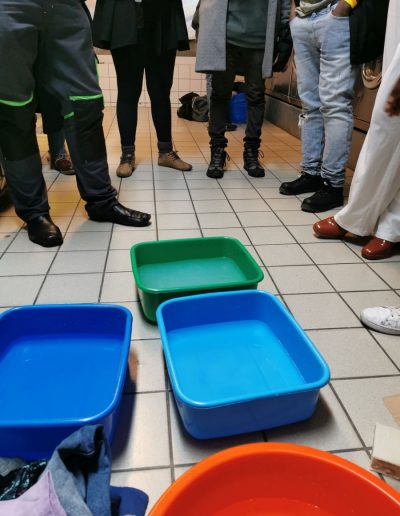
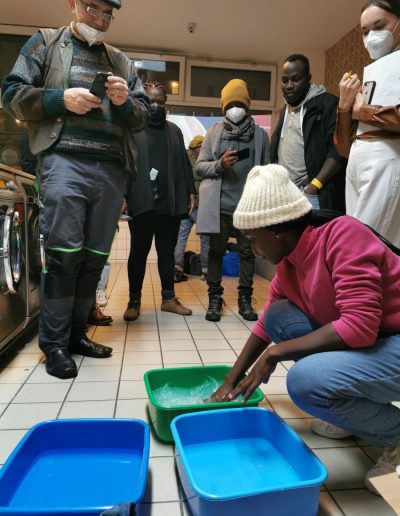
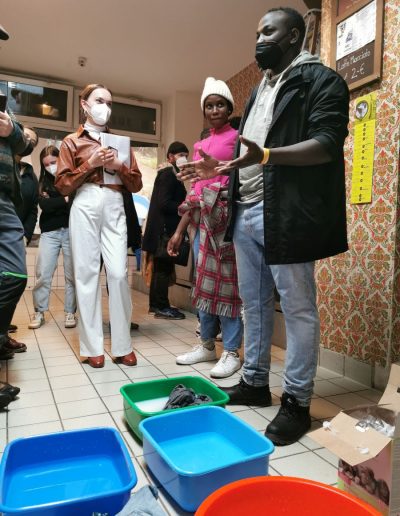
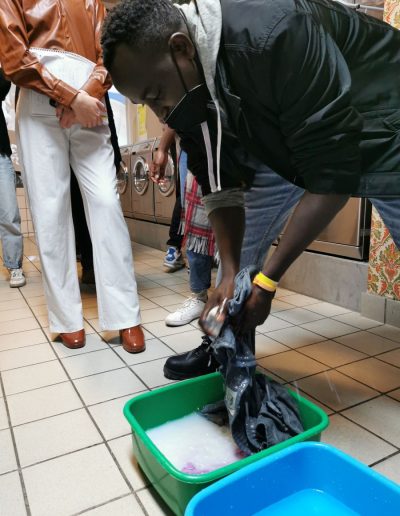
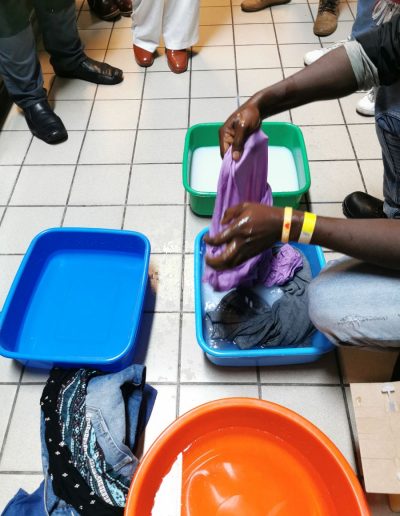
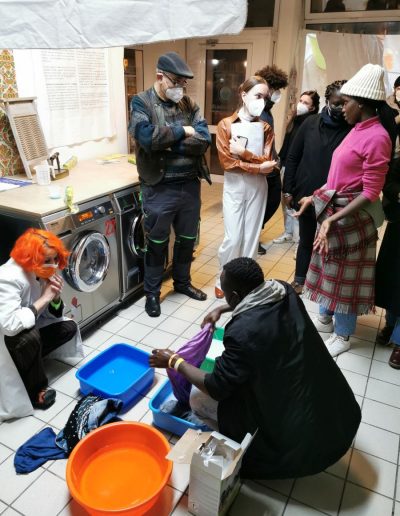
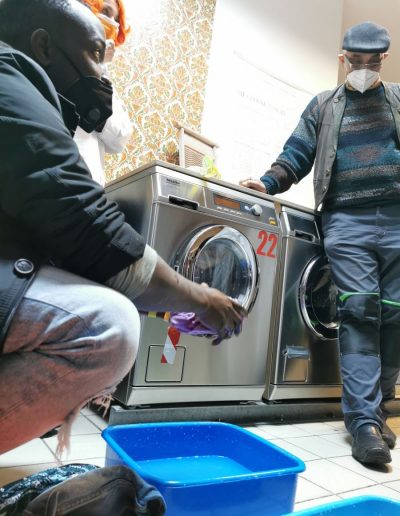
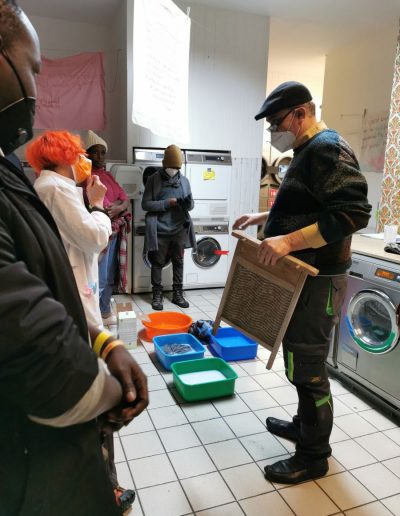
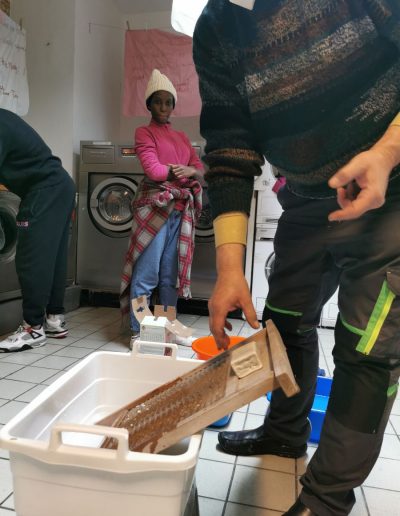
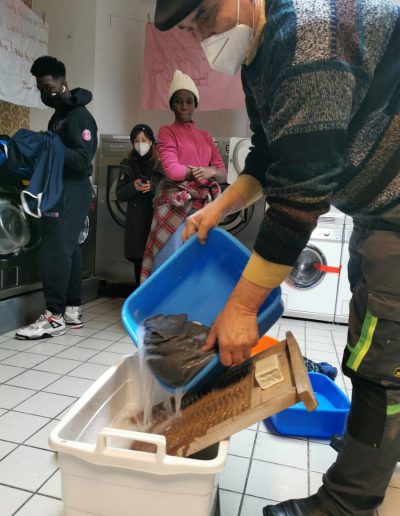
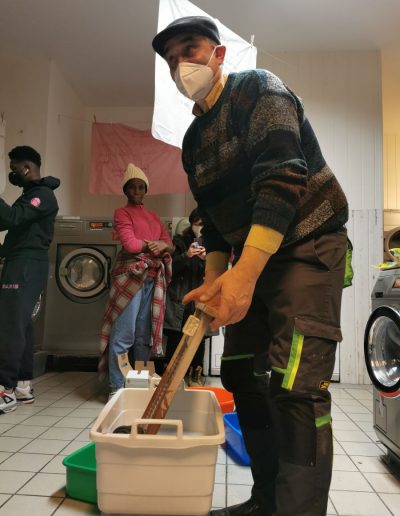
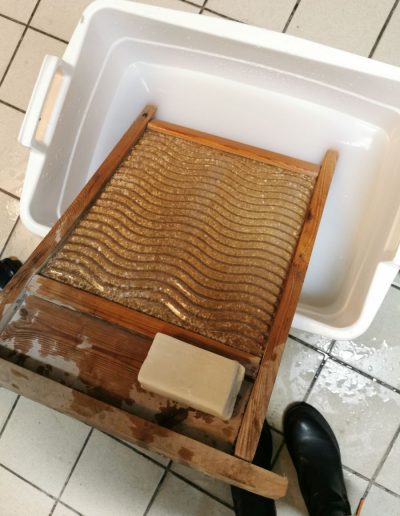
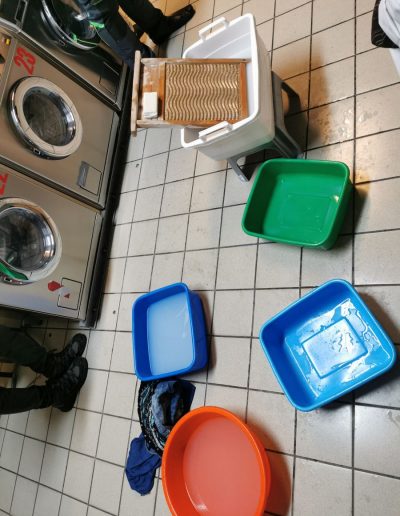
Recent Comments